THE RUSH TO ADMIT ISRAEL INTO THE U.S. VISA WAIVER PROGRAM
DISPLAY UNTIL 9/30/2023



DISPLAY UNTIL 9/30/2023


8 Israeli Forces Use Advanced Military Weaponry on Densely Populated Jenin—Three Views —Linah Alsaafin, Dr. Ramzy Baroud, Gideon Levy
14 For Gaza’s Children, Sleep Brings Only Nightmares —Hamza Salha
16 A Museum Obliterated: One of the Casualties of Israel’s May Assault on Gaza—Ahmed Dremly
18 Why are Golan Heights Druze Protesting Israel’s Wind Turbines Project?—Rina Bassist
22 Can the U.N. Resist the Pressure to Adopt the IHRA Definition of Anti-Semitism Ian Williams
24 Despite Growing Objections, Washington Sticks With Israel Julia Pitner
28 The Weird U.S.-Israeli Relationship Just Got Weirder Marwan Bishara
36 Israel’s Strange Rehabilitation of Meir Kahane: Once a “Racist,” Now a Hero to Many Allan C. Brownfeld
40 I Saw Israel’s “Final Solution to the Palestinian Problem” in Lebanon 41 Years Ago Rev. Dr. Don Wagner
SPECIAL REPORTS
20 The Irony of World Refugee Day: First Celebrating and Then Blaming the Victims Dr. Ramzy Baroud
26 The Rush to Admit Israel Into the U.S. Visa Waiver Program is Baffling and Insulting Dr. James J. Zogby
30 The U.S. Silence on Israeli Nuclear Weapons Victor Gilinsky
32 Protesters Call for Canadian Government to Revoke Jewish National Fund’s Charitable Status Candice Bodnaruk
43 Dr. Dana Aboul Hosn’s Quest to Rescue Abandoned Lebanese Dogs Jasmine Jaber
44 The Italy-Libya Treaty at 15: A Precedent for Colonized Nations Mustafa Fetouri
46 Erdogan Wins Third Term Jonathan Gorvett
71 Daniel Gordis Glorifies Israel Using the Familiar Tropes Walter L. Hixson
ON THE COVER: Israeli soldiers fire tear gas canisters from an armored vehicle during their attack, codenamed House and Garden, on Jenin refugee camp, on July 4, 2023. Israel’s biggest military operation in years in the occupied West Bank forced thousands to flee their homes and coincided with mass demonstrations over Prime Minister Binyamin Netanyahu’s planned judicial overhaul that has divided the nation. See articles pp. 8-13. (PHOTO BY RONALDO SCHEMIDT/AFP)
Only Two Options Remain for Israel: Another Nakba or One State for Two Peoples, Gideon Levy, Haaretz
The Nightmares of a ’48 Palestinian, Lana Tatour, www.aljazeera.com
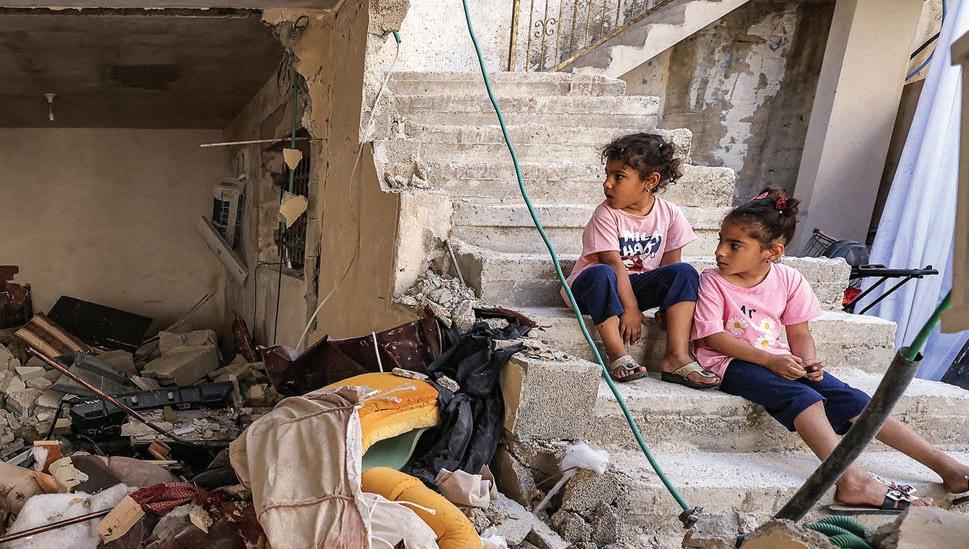
“We Will Not Surrender”: The Extraordinary Palestinians of Jenin, Ramzy Baroud, www.ramzybaroud.net
Waiving U.S. Visas for Israelis Would Be a Mistake, Daoud Kuttab, www.aljazeera.com
Cafe Yafa: A Palestinian Bookshop Reviving Literary Culture, Eliyahu Freedman, www.aljazeera.com
Netanyahu Takes Aim at U.S. Diplomacy Again, Melvin Goodman, www.counterpunch.org
Human Rights Group Wants Israel Bonds Investigated for Failing to Register as a Foreign Agent, Michael Arria, http://mondoweiss.net
OV-5
OV-6
OV-8
Compiled by Janet McMahonU.N. Report Calls on U.S. Government to Close Guantanamo Bay, Blaise Malley, www.responsiblestatecraft.org OV-10
Germany’s Anti-Palestinianism Is Escalating, Majed Abusalama,www.aljazeera.com
We Need to Stop Confronting Israeli Propaganda on Israel’s Terms, Tom Suárez, http://mondoweiss.net
Türkiye—Strongman of West Asia, Eric S. Margolis, www.ericmargolis.com
Israel Complicity in Sri Lanka War Crimes Must Be Investigated, Eitay Mack, www.aljazeera.com
OV-9
Fascist Italy’s Forgotten Concentration Camps in Libya, Dr. Mustafa Fetouri, www.middleeastmonitor.com
Israeli violence against the native Palestinian people seems to be a constant, with the only unknown being where and when the apartheid government will attack on any given day. As we went to press with our prior issue, Gaza was once again under Israeli air attack. This issue includes two perspectives on the assault, including a devastating account describing its impact on the territory’s youngest residents (pp. 14-17). As we finish this issue, it is now Jenin that is bearing the brunt of Israel’s occupation forces. A twoday land and air assault on the city’s refugee camp left more than a dozen dead and thousands displaced. We have full coverage of the Jenin invasion in the opening pages of this issue (pp. 8-13). We shudder to think what atrocities will unfold between now and our next issue, as the world’s powers continue to do very little to protect the Palestinian people or hold the Israeli government accountable for its myriad human rights violations.
Palestinian children wave their flags on July 4, 2023, near the border fence with Israel, east of Khan Yunis in the southern Gaza Strip, during a protest against an Israeli military raid on the West Bank city of Jenin. Palestinians and their many supporters around the world are appalled by Israel’s escalating violence. When will our leaders support human rights and put a stop to it?

Israel despite its intransigence when such support boosts its militaristic and colonial tendencies and feeds its bellicosity?”
Bishara rightly asks. It’s a question the Washington Report has been asking for decades.
Beyond the West Bank and Gaza Strip, Palestinian refugees long displaced by Israel continue to endure humanitarian tragedies. Rev. Don Wagner (pp. 40-42) provides some perspective by taking a look back at the 1982 Sabra and Shatila massacre in Beirut’s Palestinian refugee camps. He notes that what he witnessed decades ago is continuing to play out today across Israeli-controlled territory. And, of course, those who still live in Lebanon’s refugee camps continue to struggle mightily amid the country’s ever-worsening economic and political collapse.
Ramzy Baroud (pp. 20-21) notes that Palestinians were among those killed in a horrific refugee boat sinking in the Mediterranean Sea this summer. “Thousands of [Palestinians] have perished while escaping for their lives from Israel’s horrific wars and sieges,” he notes. Despite this fact,
most leaders continue to ignore the root causes of the Palestinian migrant crisis. Meanwhile, much to the West’s chagrin, refugee flows across the Mediterranean are picking up, with Tunisia increasingly serving as a launching point for those desperately seeking Europe’s shores. At a recent event on the topic (p. 51), one speaker noted, “The international community has returned to viewing migration once again as a security threat for Europe and not also as a humanitarian issue for migrants.” Only the wealthy lost at sea are apparently worthy of our constant concern and sympathy.
Amid the worsening violence being committed by Israeli settlers and their government alike, it comes as no surprise that the U.S. is doing nothing to challenge or punish the country. Instead, Washington is still eager to let Israel join the U.S. Visa Waiver Program (pp. 26-27), even though it’s clear Israel has little intention of treating Arab- and Muslim-Americans with respect at its ports of entry. Meanwhile, Marwan Bishara (pp. 28-29) notes that as Israeli violence ramps up, the U.S. ambassador to Israel is out cavorting with Israeli troops and President Joe Biden has shown no interest in holding Israel accountable for its misdeeds. “Why would the U.S. reward
This summer we’ve appreciated the talents and tireless energy of our intern Jenny Jacoby. Our Helen Thomas internship offers interns the opportunity to attend important events, meet movers and shakers in our community, work in the bookstore and publish articles for an international audience. Jacoby has helped our staff in many vital ways and we can’t wait to see where her career takes her. We are already accepting applications for the fall because we honestly don’t know how we’ll manage without her when she returns to school in Florida.
By the time this magazine reaches your mailbox, we’ll have filed for city permits to expand Middle East Books and More’s community space. Our goal is to have the bookstore ready to host larger events and fabulous sales in time for the holiday season. We’re determined that this unique bookstore will not be swallowed up by Amazon, like the stores we see closing across the nation. Nor will the Washington Report succumb to the wave of newspaper closures and book bans sweeping this land. We depend on you, our loyal community of readers and supporters around the world. You’ll receive our mid-year donation appeal soon and we can’t wait to add your name to our “Angels List.” While some days we feel powerless to stop the violence engulfing our planet, we believe if we work together we can ...
Make a Difference Today!
Executive Editor: DELINDA C. HANLEY
Managing Editor: DALE SPRUSANSKY
Contributing Editors: WALTER L. HIXSON
JULIA PITNER IDA AUDEH
Other Voices Editor: JANET McMAHON
Middle East Books and More Director: NATHANIEL BAILEY
Finance & Admin. Dir.: CHARLES R. CARTER
Assistant Bookstore Dir.: HAJIRA ASGHAR
Art Director: RALPH UWE SCHERER
Founding Publisher: ANDREW I. KILLGORE (1919-2016)
Founding Exec. Editor: RICHARD H. CURTISS (1927-2013)
Board of Directors: HENRIETTA FANNER JANET McMAHON JANE KILLGORE
Washington Report on Middle East Affairs (ISSN 87554917) is published 7 times a year, monthly except Jan./Feb., March/April, June/July, Aug./Sept. and Nov./Dec. combined, at 1902 18th St., NW, Washington, DC 20009-1707. Tel. (202) 939-6050. Subscription prices (United States and possessions): one year, $29; two years, $55; three years, $75. For Canadian and Mexican subscriptions, $35 per year; for other foreign subscriptions, $70 per year. Periodicals, postage paid at Washington, DC and additional mailing offices. POSTMASTER: Send address changes to Washington Report on Middle East Affairs, P.O. Box 292380, Kettering, OH 45429. Published by the American Educational Trust (AET), a nonprofit foundation incorporated in Washington, DC by retired U.S. foreign service officers to provide the American public with balanced and accurate information concerning U.S. relations with Middle Eastern states. AET’s Foreign Policy Committee has included former U.S. ambassadors, government officials, and members of Congress, including the late Democratic Sen. J. William Fulbright and Republican Sen. Charles Percy, both former chairmen of the Senate Foreign Relations Committee. Members of AET’s Board of Directors and advisory committees receive no fees for their services. The new Board of Advisers includes: Anisa Mehdi, John Gareeb, Dr. Najat Khelil Arafat, William Lightfoot, George W. Aldridge and Susan Abulhawa.
The Washington Report on Middle East Affairs does not take partisan domestic political positions. As a solution to the Palestinian-Israeli dispute, it endorses U.N. Security Council Resolution 242’s land-for-peace formula, supported by nine successive U.S. presidents. In general, it supports Middle East solutions which it judges to be consistent with the charter of the United Nations and traditional American support for human rights, self-determination, and fair play. Material from the Washington Report may be reprinted without charge with attribution to Washington Report on Middle East Affairs. Bylined material must also be attributed to the author. This release does not apply to photographs, cartoons or reprints from other publications.
Indexed by ProQuest, Gale, Ebsco Information Services, InfoTrac, LexisNexis, Public Affairs Information Service, Index to Jewish Periodicals, Ethnic News Watch, Periodica Islamica.
CONTACT INFORMATION:
Washington Report on Middle East Affairs
Editorial Office and Bookstore: 1902 18th St. NW, Washington, DC 20009-9062
Phone: (202) 939-6050 (800) 368-5788
Fax: (202) 265-4574
E-mail:
wrmea@wrmea.org • bookstore@wrmea.org circulation@wrmea.org
advertising@wrmea.org • donations@wrmea.org
Web sites: http://www.wrmea.org
http://www.middleeastbooks.com
Subscriptions, sample copies and donations: P.O. Box 292380, Kettering, OH 45429
Phone: (800) 607-4410 • Fax: (937)-890-0221
Printed in the USA
Thank you to the Washington Report and Ida Audeh for reviewing Fida Jiryis’ book Stranger in My Own Land. I would like to add a few comments.
For those readers just beginning their journey in learning about what the establishment of Israel meant for Palestinians and what its impact was—and is— on the indigenous population, this book is a must. For those who are already knowledgeable, little-known facts and tidbits abound.
The author weaves very personal and often tragic experiences by reliving conversations and events of long ago. It’s as if you are reading a novel. She touches on all the inequalities of what it means to be Palestinian either in Israel, the occupied territories, Lebanon or in the diaspora.
As a Jewish reader, it is difficult to understand how our history has allowed us to repeat racism, violence, torture, imprisonment, killings of civilians (including children), destruction of homes and injustice against another people. If we were supposed to learn one lesson from our past, it was “never again” and to “speak out” against atrocities. Unfortunately, this has not been the case.
My grandparents left Eastern Europe to escape anti-Semitism and poverty in the steerage area of a ship. A little more than a half century and two generations later, I visited Israel and the occupied territories. I quickly became acutely aware of the inequities and injustices. Jiryis points these out in painful detail.
This incredibly well-educated woman has lived through many lifetimes fighting for respect and trying to cope with Israel’s goal of erasing and destroying her history. She belongs to the longest unsolved refugee crisis in history. Yet she remains a proud, kind and dignified Palestinian woman whose homeland has been destroyed.
At the end of this book, you will feel as if you have made a good friend, have contributed to a better understanding of
the issue and have hope that future generations of Palestinians can live in peace on their own land.
Ellen Siegel, Washington, DCIda Audeh (“Israel at 75: Colonial Project Unmasked,” June/July Washington Report) rightly criticizes Jewish nationalism (“the Jewish supremacist state”). However, in the next paragraph Audeh uses the term “Arab country,” and “Arab world” appears later in the article. I emphatically support the Palestinian cause, but isn’t this tolerance for ethnic nationalism of the latter stripe and condemnation of the former variety? It seems to me that most Arabs share this blind spot.
Ida Audeh’s response: Gregory DeSylva seems to equate Jewish nationalism/Zionism with references to the Arab world (and use of the term “Arab country”). There is no basis for comparing the two. The former is a discredited supremacist 19th century ideology forged in another continent that can only be maintained through repeated acts of genocide and erasure, as Israel’s 75year history demonstrates; the latter acknowledges an obvious reality, that Palestinians are part of a region. Because we are indigenous to the region, we have connections to other people in the region; we share history, culture and Arabic as a first language. Historic Palestine is located in the Arab world, a geography that Israelis often refer to as “a dangerous neighborhood,” in the way that colonizers tend to belittle the geographies they descend on. With predatory aspirations, their disdain for their surroundings is a clear indicator that they are alien to it.
For Palestinians, however, the Arab world is a rich mosaic of peoples, religions, cultures, traditions, political currents and trajectories that resonate for us; we see our fates as linked in various ways. Why this connection should strike
anyone as objectionable is a mystery to me. The shared “blind spot” that DeSylva refers to, a shortcoming common to “most Arabs,” is no blind spot at all: we know who we are and where we come from.
Re: “President Jimmy Carter’s Legacy— Five Views” in the May Washington Report. As I read through the articles cited above, I was a bit surprised at what was left out about President Carter’s foreign policy legacy. I imagined that I would not be the only one of your readers to notice this and expected that at least one of them would write in to tell you about it. But the June/July issue does not include any such thing. Perhaps this was just an accidental oversight.
It’s important to remember the horrors of the Carter administration’s foreign policy activities, particularly vis-à-vis Afghanistan.
I confess: every time I hear some pundit on the mainstream media complaining about how women and girls in Taliban-controlled Afghanistan are being shut out of schooling, I cannot help but remember that when there was a secular government in Afghanistan that promoted education for women, Carter initiated a policy to replace it with anti-Communist fundamentalists who despised that idea and who eventually prevailed.
I am ashamed of what our government has done to contribute to the ongoing suffering of the people of that poor country for over 40 years.
I think that in the interest of presenting a full and accurate picture of this man’s presidential legacy, perhaps something about Carter’s Afghanistan legacy should be offered to readers. Political hagiography only discredits what we all believe in: liberty and justice for everyone, everywhere, always.
John M. Stassi, Machesney Park, IL
I just finished reading the May issue of the Washington Report.
I was quite touched by Delinda C. Hanley’s tribute to Sen. James Abourezk, whom I met just once when he visited
Send your letters to the editor to the Washington Report, P.O. Box 53062, Washington, DC 20009 or e-mail <letters@wrmea.org>.
North Texas in the mid-1980s to enlist new American-Arab Anti-Discrimination Committee (ADC) members. While in the Dallas-Fort Worth Metroplex, Abourezk participated in several outreach events, including a radio talk show that I arranged. He was quite the charmer!
In addition to that tribute, I was also delighted to see the section devoted to President Jimmy Carter. Perhaps one day our country and fellow Americans will come to appreciate the good things his administration accomplished. I have to admit, it took me a good while to realize the positive impact he had.
Dr. Ramzy Baroud’s “‘Truth, No Matter What’: Why Watering Down Palestinian Reality Is a Crime” was compelling, even provocative reading. Hopefully in a future contribution, he can offer concrete suggestions on how best to present that reality in the face of constant pressure to tiptoe around it so as not to offend Israel’s proponents or be smeared as an antiSemite or self-hating Jew. The recent big angst over discussions about the Nakba’s 75th anniversary revealed once more that there is a concerted effort to keep people ignorant.
In summer 1990, shortly before I entered the U.S. Foreign Service, I gave a speech outlining the Palestinian side of things at Southern Methodist University, with some 40 young adults in attendance. As folks filtered out, two professional women in their late 20s came up to me saying, “George, you seem like a really personable and swell guy, but your speech, much
of what you said, really bothers us.” I listened sympathetically, then said in effect, “you’re troubled because you’ve only heard one side of the story, the Israeli explanation of things that has you believing that ‘Palestine was a land without people.’”
So, while I fully agree with Baroud that we need to be more forceful and not be intimidated by crude denunciations of anti-Semitism, we can still enlighten people—as the Washington Report on Middle East Affairs has done for decades—about the wrongs wrought by the Zionist movement.
George Aldridge, Bissen, Luxembourg ■OTHER VOICES is an optional 16-page supplement available only to subscribers of the Washington Report on Middle East Affairs. For an additional $15 per year (see postcard insert for Wash ington Re port subscription rates), subscribers will receive Other Voices inside each issue of their Washington Report on Middle East Affairs.
Back issues of both publications are avail able. To subscribe, telephone (800) 607-4410, e-mail <circulation@wrmea. org>, or write to P.O. Box 292380, Kettering, OH 45429.

ISRAEL SAYS it has ended what has been its biggest siege on the Jenin refugee camp in two decades, after two days of attacks not witnessed in the occupied West Bank since the spring of 2002.
From July 3 until Israel’s announcement on the morning of July 5, Israeli forces launched a ground and aerial offensive on the camp, which is home to some 14,000 Palestinian refugees and has in recent years become a stronghold for cross-factional Palestinian fighters.

At least 12 people were killed, including three teenagers, and more than 50 others were injured. The Palestinian health ministry has said that some of the wounded are in critical condition and that Israeli forces had prevented ambulance crews from reaching some of the injured.
The Israeli army said that about 100 Palestinians had been interrogated, and it described the operation—codenamed House and Garden—as an “extensive counterterrorism effort.”
It also said that it had carried out 15 air raids using helicopter gunships and reconnaissance drones, in conjunction with a ground in-
vasion that involved 150 armored military vehicles (including tanks and bulldozers) and 1,000 elite special forces.
Snipers were placed on the rooftops of Palestinian homes on the periphery of the camp, which lies in the middle of the northern city of Jenin.
Mohammed Kamanji, a lawyer for the Independent Commission for Human Rights and a resident of the camp, told Al Jazeera that the use of helicopter gunships indicates an “increase in the level of assault and crimes against civilians.”
“This is an important stage which has evolved from waging a war against a small number of fighters with simple weaponry, to targeting and destroying infrastructure and homes with complete disregard for human life,” he said.
The last major assault on the refugee camp was in April 2002, when 52 Palestinians were killed over 10 days. But over the past six months of this year alone, the Israeli army has carried out five major raids on the camp, and in June, Palestinian fighters used locally made improvised explosive devices for the first time.
In late June, another three Palestinians were killed after Israeli forces fired a missile at the camp using a helicopter gunship—the first time such a tactic was used since 2006, prompting United Nations High Commissioner for Human Rights Volker Türk to condemn Israel’s use of “advanced military weaponry.”
But in the latest operation, the barrage of aerial attacks from drones and helicopter gunships indicated a change in Israeli tactics in dealing with the emergence of cross-factional Palestinian resistance fighters over the past two years, experts said.
“Previously, reconnaissance and satellite drones were used to gather intelligence and Israeli raids on the ground would be conducted based on that,” Kamanji said.
“But now, they’ve added shelling in order to change the nature of confrontations with the resistance fighters in Jenin and to clinch the battle in a faster way.
“It’s not just about property damage or killing fighters,” he continued. “There’s also the aspect of psychological war on the camp’s residents, especially on the children.”
Farid Bawaqna, a resident of the camp, said that the early morning air raids had targeted a site where armed fighters were gathered near his home.
“They fired a first missile, followed immediately by a second missile,” he said. “The shelling set fire to the nearby houses, including our own.”
Bawaqna said the residents have been reliving traumas they endured in April 2002, as Israeli bulldozers destroyed roads and the main square of the camp that used to be the site of gatherings such as funerals and weddings.
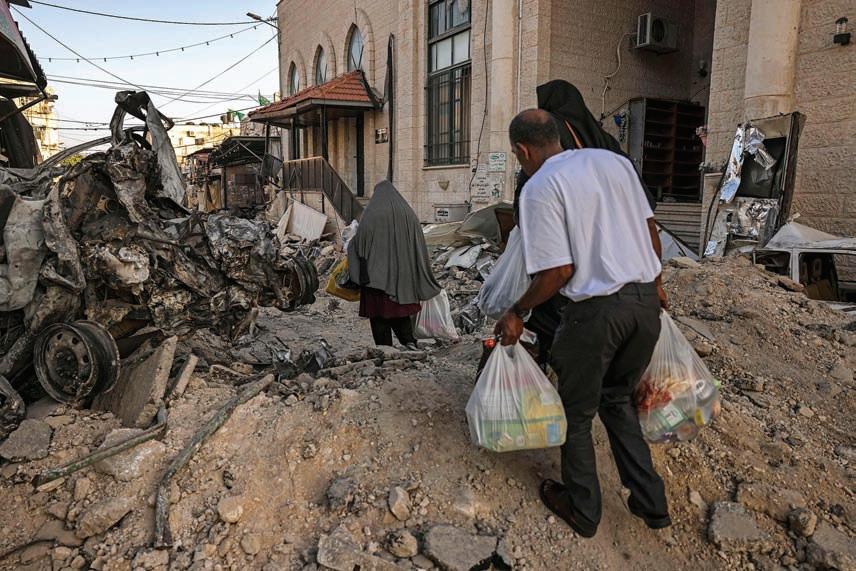
The camp’s infrastructure, including water and electricity provision, was destroyed in the operation. Hundreds of families left the camp
on Monday night, with the Palestine Red Crescent Society saying it had evacuated about 3,000 people.
“It is the same scene, the same destruction and the same criminal method,” Bawaqna said. “All the people of the camp live in terror. We are still in the process of restoring the destruction from 2002. They [the Israeli army] set us back 20 years.”
Colin Wallace, a psychological warfare specialist, said that in any conflict that is not a full-scale war, targeting a densely populated urban area is “a huge problem” and should be where the line must be drawn.
“Whether you are dealing with any kind of insurgency, the key thing is that you have to be able to deal with those people who are armed and are an immediate threat, and you have to be very careful not to directly or indirectly target the civilian population,” he said.
“Weapons that are designed for a full-scale war where you are targeting an area from a blanket point of view—in other words, everybody within the area could be classified as an armed combatant—that is one thing,” he said.
“But if you are out dealing with a specific number of armed people and an even greater number of people who are not armed—civilians not involved in the violence—then the issue is that the security forces or military should be adjusting tactics accordingly.”
Using aircraft with aerial weapons on a densely populated area is difficult to justify, Wallace went on to say, because of the threat to innocent bystanders and civilians.
“For most armies, the key thing is to target people who are actually involved in the violence and to avoid at all costs casualties among people who are totally uninvolved,” he said. “It’s the basic rules of warfare.”
On July 3, Israeli army spokesman Richard Hecht told reporters: “People were aware that we were probably going in, but the method
of striking from the air” with a target in the core of the camp “basically caught them by surprise.”
Hamdullah Afaneh, a specialist on Israeli affairs, said there is also a domestic element to the Israeli operation, which he described as “exporting an internal crisis.”
“The timing of this operation is to draw the attention away from the internal crisis that has beset this Israeli government, which is made up of far-right parties headed by extremist figures such as [Security Minister] Itamar Ben-Gvir and [Finance Minister] Bezalel Smotrich,” he said.
Afaneh was referring to the mass protests by Israelis demonstrating against the overhaul of the judiciary, which would give Israeli Prime Minister Binyamin Netanyahu and his far-right allies the right to appoint judges and overturn the Supreme Court’s decisions.
There is also the feeling among Israelis that the government has failed to control security, Afaneh said. Over the past year or so, the Palestinian resistance in Jenin had exposed the weakness and decline in the Israeli army’s deterrence in stopping the fighters.
“This operation comes in response to the demands and pressures from the settler movement within the occupied West Bank, without which Netanyahu would not be in power,” he said.

Afaneh believes that it is in Netanyahu’s interest to avoid an escalation that might spread across the rest of the occupied West Bank.
“Already we have heard that members of the Lions’ Den armed group in Nablus have made their way to Jenin, and the armed wings of various factions, whether in Gaza Strip or the West Bank, have threatened to retaliate if the operation in Jenin extends,” he said.
As Kamanji sees it, many of the camp’s residents fear that things will only get much worse.
“There is no safe space for us,” he said. “We saw medics and journalists being targeted by Israeli forces today, and with the city not just the camp being under attack, what do you think will happen to us?”
NUMBERS CAN BE dehumanizing. When placed in their proper context, however, they help to illuminate wider issues and answer urgent questions, such as why occupied Palestine is at the threshold of a major revolt—and why Israel cannot crush Palestinian resistance no matter how hard, or violently, it tries.
That’s when numbers become relevant. Since the start of this year, nearly 200 Palestinians have been killed in the occupied West Bank and Gaza. Among them are 27 children.
If one is to imagine a heat map correlating the towns, villages and refugee camps of the Palestinian victims to the ongoing armed rebellion, one will immediately spot direct connections. Gaza, Jenin, and Nablus, for example, paid the heaviest price for Israeli violence, making them the regions that resist the most.
Unsurprisingly, Palestinian refugees have historically been at the forefront of the Palestinian liberation movement, turning refugee camps such as Jenin, Balata, Aqabat Jabr, Jabaliya, Nuseirat and others into hot spots of popular and armed resistance. The harder Israel attempts to crush Palestinian resistance, the greater the Palestinian reaction is.
Take Jenin as an example. The rebellious refugee camp has never ceased its resistance to the Israeli occupation since the famous battle and subsequent Israeli massacre of April 2002. The resistance continued there in all of its forms, even though many of
Dr. Ramzy Baroud is a journalist, author and editor of Palestine Chronicle. He is the author of six books, including My Father was a Freedom Fighter and The Last Earth . His latest book, co ‐ edited with Ilan Pappé, Our Vision for Liberation: Engaged Palestinian Leaders and Intellectuals Speak Out, is available from Middle East Books & More. Dr. Baroud is a non‐resident senior research fellow at the Center for Islam and Global Affairs (CIGA). His website is <www.ramzybaroud.net>.
the fighters who defended the camp against the Israeli invasion of the Second Palestinian Uprising, or Intifada, were killed or imprisoned.
Now that a new generation has taken over, Israel is at it again. Military incursions of Jenin by Israel have become routine, resulting in a mounting number of casualties, though at a price for Israel itself.
The most notable and violent of these incursions was on January 26, when the Israeli army invaded the camp, killed 10 Palestinians and wounded more than 20 others.
More Palestinians continue to be killed as Israeli raids become more frequent. And the more recurrent the raids, the tougher the resistance, which has swelled beyond the confines of Jenin itself to nearby illegal Jewish settlements, military checkpoints and elsewhere. It is common knowledge that many of the Palestinians accused by Israel of carrying out operations against its soldiers and settlers come from Jenin.
Israelis may want to think their violence in Palestine is self-defense. But that is simply inaccurate. A military occupier, whether in Palestine—or anywhere else, for that matter—cannot, by strict legal definition, be in a state of self-defense. The latter concept only applies to sovereign nations that attempt to defend against threats at or within their internationally recognized borders.
Not only is Israel defined by the international community and law as an “Occupying Power,” but it is also legally obligated to “ensure that the civilian population is protected against all acts of violence,” as the Secretary-General of the United Nations stated on June 20.
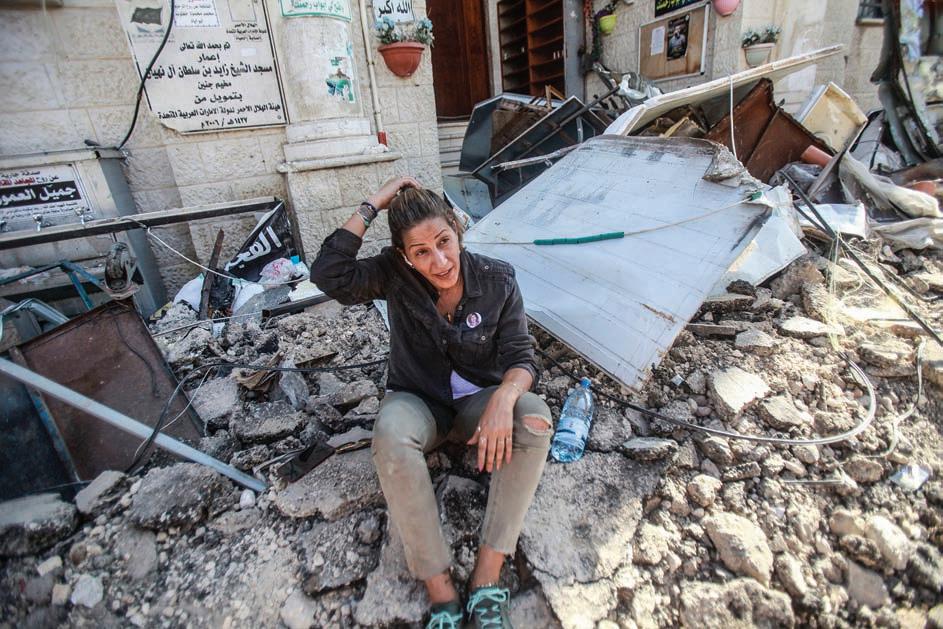
The statement was a reference to the killing of eight Palestinians in Jenin, a day earlier. The victims included two children, Sadil Ghassan Turkman, 14, and Ahmed Saqr, 15. Needless to say, Israel is not invested in the “protection” of these and other Palestinian children. It is the entity that is doing the harm.
But since the U.N. and others within the international community are content with the issuing of statements—“reminding Israel” of its responsibility, expressing “deep concerns” about the situation or, in the case of Washington, even blaming Palestinians—what other options do Palestinians have, but to resist?
The rise of the Lions’ Den, the Jenin Brigades, the Nablus Brigades, and many other such groups and brigades, made mostly of poor and poorly armed Palestinian refugees, is hardly a mystery. One fights when one is oppressed, humiliated and routinely vio-
lated. This role has governed human relations and conflicts since the very beginning.
But the rise of the Palestinians must be distressing for those who want to maintain the status quo, such as the Palestinian Authority.
The PA stands to lose much if the Palestinian revolt spreads beyond the boundaries of the northern West Bank. PA President Mahmoud Abbas, who enjoys little legitimacy, will have no political role to play. Without such a role, however artificial, foreign funds will quickly dry, and the party will be over.
For Israel, the stakes are also high.
The Israeli military under the leadership of Netanyahu’s enemy, Defense Minister Yoav Gallant, wants to escalate the fight against Palestinians without repeating the full-scale cities invasion of 2002. But the internal intelligence agency, the Shin Bet, is becoming keener on a full-scale crackdown.
Far-right Minister of Finance Bezalel Smotrich wants to exploit the violence as a pretense to expand illegal settlements. Another far-right politician, National Security Minister Itamar Ben-Gvir, is searching for a civil war, led by the most violent of Jewish settlers, the very core of his political constituency.
Israeli Prime Minister Binyamin Netanyahu, who is struggling with his own political and legal woes, is trying to give everyone a little of what they want, but all at once. The paradoxes are a recipe for chaos.
This has resulted in Gallant’s reactivation of aerial assassinations of Palestinian activists, for the first time since the Second Intifada.
The first such strikes took place in the Jalameh region near Jenin on June 21.
Meanwhile, the Shin Bet is expanding its list of targets. More assassinations are surely to follow.
Concurrently, Smotrich is already planning a massive expansion of illegal settlements. And Ben-Gvir is dispatching hordes of settlers to carry out pogroms in peaceful Palestinian villages. The inferno of Huwara on February 26 was repeated in Turmus Ayya on June 21.
Though the U.S. and its Western partners may continue to refrain from intervening in supposed “internal Israeli affairs,” they should carefully consider what is taking place in Palestine. This is not business as usual.
The next Intifada in Palestine will be armed, non-factional and popular, with consequences that are too difficult to gauge.
Though for Palestinians an uprising is a cry against injustice in all its forms, for the likes of Smotrich and Ben-Gvir, violence is a strategy toward settlement expansion, ethnic cleansing and civil war. Considering the pogroms of Huwara and Turmus Ayya, the civil war has already begun.
A BOY OF ABOUT THREE left his house Wednesday morning, for the first time in two days, with his mother and grandmother— his mother’s hand in one hand, a toy gun in the other. The street was still mostly empty, only a few residents had dared to go out, and those who had seemed to be in shock. A terrible silence hung over the half-destroyed street, the silence that is always heard after the noise. The toddler cast a blank look at the pile of rubble at the side of what had been a paved road and was now a dirt track. He was silent, and so was his mother. This vignette aired Wednesday on Al Jazeera, which broadcast nonstop from the Jenin refugee camp.
One-time Israeli soldier Dubi Kurdi didn’t turn the camp into Jerusalem’s Teddy Stadium with his bulldozer this time, as he bragged about the previous round in 2002. More than 500 homes were not destroyed, as they had been then, in Operation Defensive Shield, and the body count was also relatively low. But the child went out, into the street, holding his mother’s hand, and his
face said it all. Perhaps he was the boy in the video filmed the previous day in one of the camp’s homes: In a horrific scene that could have come from a dark time in history, armed and armored soldiers invade a small house. Everyone is ordered to put their hands in the air. A soldier points his rifle at the women and children, and a scream of terror pierces the air. Cut. The video ends, but the children will not forget. They will never forget what they endured this week.
These children are already Arna’s grandchildren and great-grandchildren. When Juliano Mer-Khamis’s wonderful film “Arna’s Children,” about the children in the camp whom his mother raised in her theater project, was released, its maker was still alive. Juliano was murdered, but his movie remains. It must be shown before and after every Israeli military “operation” in the Jenin camp, before and after the unbearable deluge of praise that a legion of generals and analysts shower on the action—which is always different from, more surgical and successful than, all its predecessors.
Three boys starred in the documentary: Ala, Yousef and Ashraf. For about a decade, Mer followed the children his mother worked with. He filmed little Ala sitting, stunned, on the ruins of his home, his gaze moving here and there, as if seeking comfort and shelter.
Ala al-Sabbagh later became the commander of the Al-Aqsa Martyrs’ Brigades in the camp. In November 2002, two weeks after his first son was born, Israeli soldiers killed him, and a photograph of his charred body is seen in the film.
Little Ashraf dreamed of playing Romeo. In the film, he is seen rummaging through the rubble of Ala’s home, in an effort to retrieve belongings that are still intact. In the movie, Ala relates the story of the killing of his friend Ashraf, a few weeks before he himself died in the battle for Jenin. The third boy, Yousef, was in class when an Israeli shell landed in the room. He carried out the body of one of
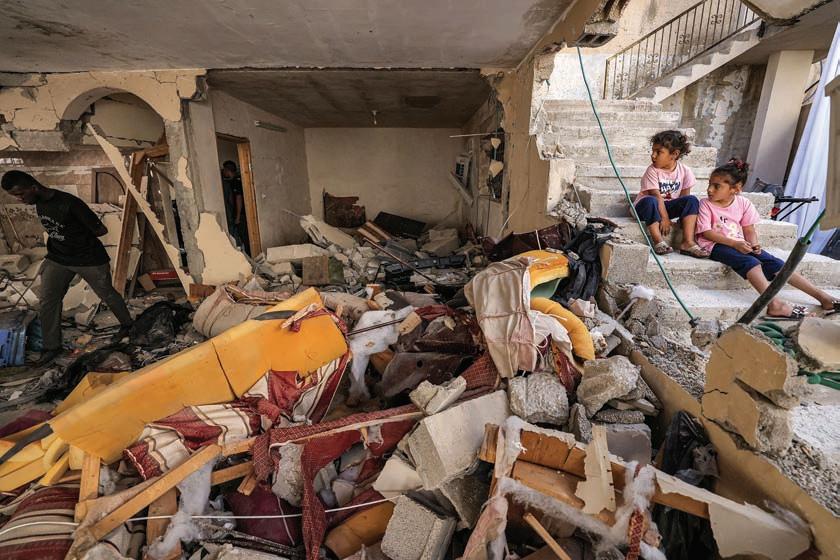
the girls who died; as an adult, he carried out a terrorist shooting in the Israeli city of Hadera and was killed. Of Arna’s children, Zakaria Zubeidi is the only boy to survive. He has been incarcerated in Israel for many years.
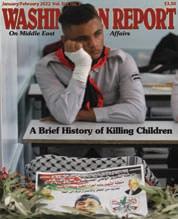
On July 5, Arna’s grandchildren and great-grandchildren went out, into the ruined street. The Jenin camp is a refugee camp, and residents were forced to flee their homes this week without knowing when or if they would return, momentary refugees for the third or fourth time.
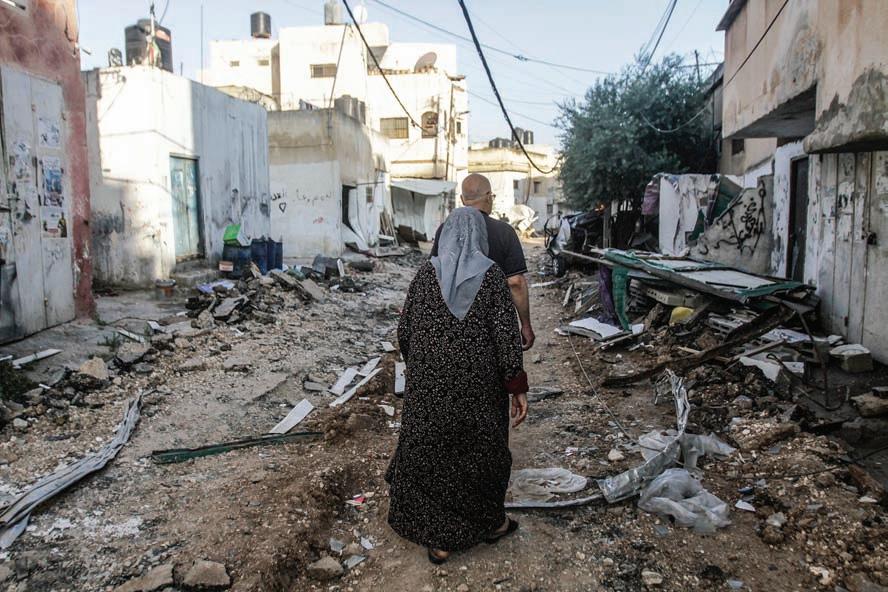
The group of military correspondents recognized by the IDF that the army brought to view its work saw no Palestinians in the alleys. In Israel they didn’t mention the camp’s 20,000 residents who endured unprecedented hardship caused by Israel, like their parents and grandparents before them. In Israel they did not say that the Jenin camp is home to tens of thousands of people whose just struggle cries out to the heavens, exactly as their suffering does. And once again, the IDF treated this home like a battlefield.

Here Arna’s children grew up and became freedom fighters (“terrorists” in the parlance of Israeli propaganda), and here Arna’s grandchildren and great-grandchildren will now grow up into the same future, the same fate. ■
(Advertisement)


Please enter or renew my subscription to the Washington Report.

■ Add $15.00 per year for my subscription to “Other Voices,” a 16-page must-read insert in every issue

■ Check/Money order payable to Washington Report enclosed (U.S. Funds only)
■ Send me an invoice with my first issue to my address below.
■ Use this form and the lines above to start a gift subscription. Enter your name and subscriber number (located on your magazine label, beginning with WR).
■ You can also scan the QR code at right to subscribe online.

“Our house, with its asbestos roof, trembles with every bombardment, like an earthquake,” her mother said. “To avoid the roof caving in on us, I run for shelter in our neighbor’s concrete house.”
During the 2021 war, incessant Israeli airstrikes lit up the night sky, terrorizing Gazans. One night the roof of the Brekat family home collapsed under continual airstrikes. Since then, the entire family has a paralyzing fear of roofs collapsing. Her mother said, “I screamed for help, but no one answered.”
Ayat’s young life has been marked by overwhelming anxiety, her body trembling and her heart racing with any sound of bombings or the presence of aircraft overhead.
“I am afraid of everything,” Ayat said, biting her fingernails and hiding her face. “I do not have a room. I do not even have toys.”
During each attack, Ayat clings to her mother’s side, begging her: “Don't fall asleep, mama.”
“My daughter imagines the word ‘war’ as a monster that comes to overwhelm us, and she utters strange words sometimes,” Brekat said.
Ayat Brekat, 12, has lived through four wars so far.
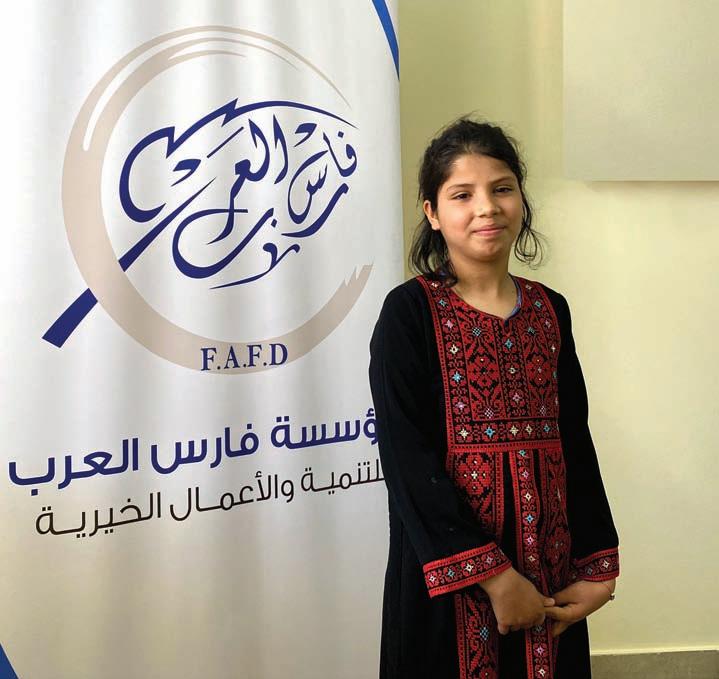
“Ayat is a cheerful and smiling child, embracing life with enthusiasm, but when I go beyond surface exchanges with her, her feeling of inadequacy becomes apparent,” Alaa Yaghi, 33, her teacher, said.
On May 13, 2023, just moments before dawn, Maha Brekat, 35, and her five children were trying to get some sleep in their two-room home in Al-Jalaa Street. Without warning, a massive bombardment reduced their neighbor Muhanna’s house to rubble.
“As the fragments flew, a part of the missile fell right next to my leg,” Ayat said, her voice trembling.
She shrieked hysterically. Her mother hugged her tightly, took her to a neighbor’s house, and stayed close beside her.
Ayat learned that a ceasefire had been announced when she woke up the next morning. Still, whenever she hears a loud noise nearby, she rushes to her mother, terrified that the war resumed.
The bombing has stopped, but Ayat continues to experience restless sleep. Her nightmares frequently awaken her.
Ayat describes the nightmares to her teacher, explaining that she sees her classmates as monsters and her house as deep holes. She keeps repeating sentences like, “My uncle’s house is made of concrete,” suggesting a preoccupation with sturdy structures that offer hope of protection.
She can’t control her bladder. Her mother is feeling helpless about what to do. “I wake my daughter up nearly eight times a night to forestall her involuntary urination, but it does not always work.”
According to Dr. Yasser Abu-Jamei, general director of the Gaza Mental Health Program, “These [Israeli] aggressions leave psychological effects that can be either short-term or long-term. Some may speak of psychological disorders among children such as post-trau-
Ayat Brekat receives psychological support at the Fares Al‐Arab Foundation. PHOTO BY HAMZA SALHAmatic stress disorder. However, in Gaza, what we often observe among psychologically affected children is involuntary urination, sleep disturbances and restlessness.”
Ayat also suffers from sleepwalking, which occurs almost every night. Brekat told us, “Every night, I diligently inspect the door and ensure that I always keep the key with me.”
She realizes that her daughter needs treatment. The child gets psychological support in therapy sessions at the Fares AlArab Foundation. She also attends other mental health programs.
In the week after the ceasefire was announced, Yaghi began each class with a short activity, such as drawing, so that she could tell what her students were thinking about. “When I give her colored markers and paper to draw, she depicts what she envisions in her dreams. She gravitates toward vibrant colors and often draws concrete houses,” Yaghi said.
Yaghi noted that Ayat is not motivated to do well in school; she neglected to study for her final exams.
Yet somehow Ayat doesn’t lose hope. “I dream of being a journalist. I want to cover the stories of miserable people.” She sighs deeply.
Most children with cell phones play games and watch entertainment videos. But not Leen, 11.
Basma Shaet, Leen’s mother, told the Washington Report, “Holding onto her phone, she neither played games nor watched YouTube videos as usual, but was anxiously following the news of the attacks.”
The most recent Israeli assault in May transformed the usually chatty and smiling Leen into a completely different child. Her mother reports that when assaults begin, Leen worries constantly and keeps asking when there will be a ceasefire and when it will stop.
The war haunts Leen even in her dreams. “I started to have nightmares about war. I would wake up terrified, full of tears, and run to my mother,” Leen said.
Her family, including her 19-old-year
sister, Fatima, gathers by her side to reassure her.
The most recent war coincided with the pre-final exams period, and Leen couldn’t pick up a book or even hold a pen.
“In the long run,” Dr. Abu-Jamei said, “children’s inability to concentrate or adhere to social expectations due to heightened anxiety and stress can lead to academic difficulties. It can also cause problems in their social relationships with peers and classmates.”
Even in the absence of bombing, the sound of an F-16 jet flying overhead fills Leen with terror.
“I can’t sleep and keep crying all the time,” she told the Washington Report. “Even the word ‘war’ scares me.”
Tamim
On the night of May 10, a massive strike on the Al-Rimal neighborhood of western Gaza landed on the apartment building where the Khaswan family were sleeping; everyone inside was either killed or severely injured. In the building next door, Tamim Daoud, age 5, immediately woke up shrieking hysterically.
A little later, Tamim complained of difficulty breathing and a stomachache. His father, Mohammad Daoud, 36, attempted to soothe him and settled him down on his lap, where he fell asleep. Then Daoud felt his child’s heart stop beating and his breathing cease. Daoud did everything he could to save his son. Amidst the ongoing missile at-
tacks, he bravely carried Tamim to the hospital, desperately hoping to revive his weak heart.
Tamim had previously undergone heart surgery for a congenital deformity, and his doctor had advised Daoud to keep his child as calm as possible and to prevent him from exerting himself in activities.
“My child’s dream was to be an engineer,” Tamim’s father said sorrowfully. “But his little heart succumbed to fear. He had witnessed three wars in his five-year life. What child can bear such a thing?” ■

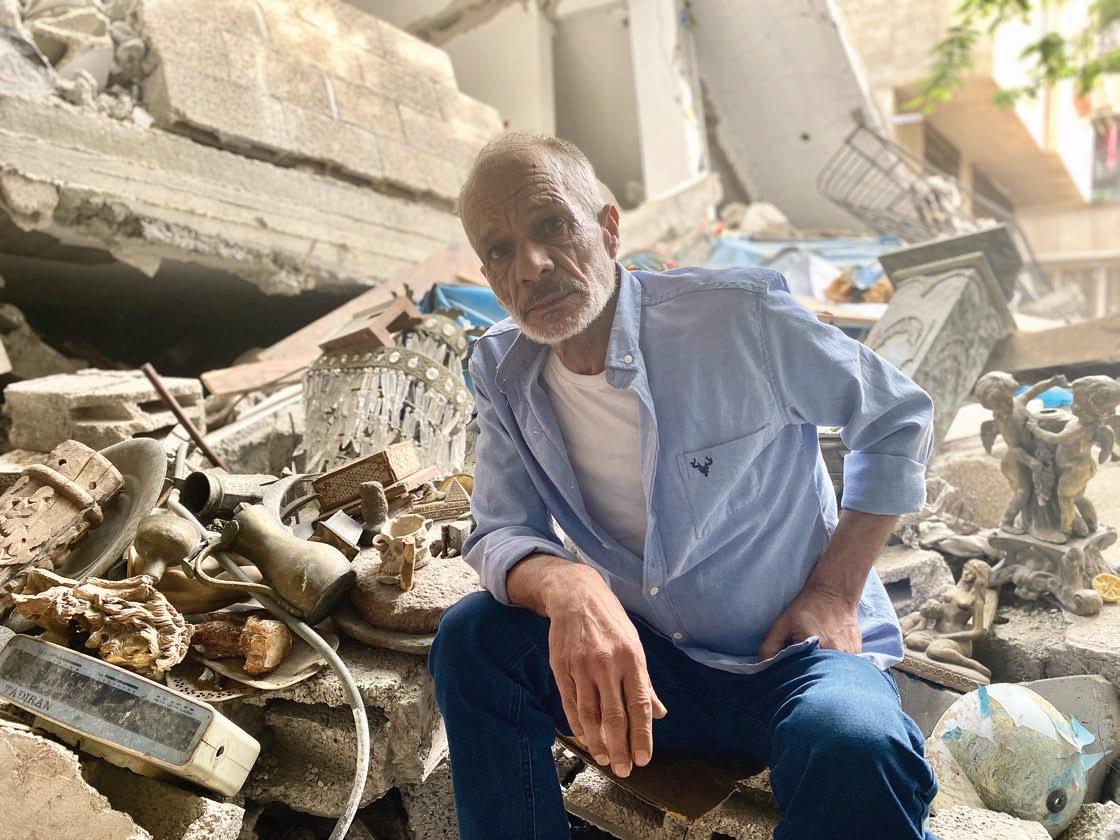 By Ahmed Dremly
By Ahmed Dremly
IN A SMALL ROOM in his house, Hazem Muhanna, 62, created an antique museum. He has accumulated more than 2,000 artifacts that commemorate Palestinian and Arab culture.
Hazem discovered his passion for artifacts at age 13, when he visited his uncle’s house and saw antiques there. Then he recognized the pleasure he felt when he was around old objects that evoked memories.
Since then, Hazem started going to the market every week to look for objects—embroidery, ceramics, woven baskets, furniture, metalware and glassblown vases to buy from his small
weekly allowance.
By age 20, he decided to devote a room in his house to his collection. He began to educate himself about art and antiques through watching videos and going to local art galleries. To broaden his search for unusual antiques, he traveled many times to Egypt to visit historical monuments and old markets like Khan al-Khalili and Souq al-Ataba. He became known in Gaza for accumulating the finest pieces.
His collection included ancient Palestinian certificate documents such as his grandfather’s Mandate-era identification card and old Arabic banknotes, beautifully crafted pottery, antique clocks and watches, old coins, vinyl records, embroidered clothes, precious stones, paintings and handmade walking sticks of various types.
After retiring from his job as an employee at UNRWA in Gaza, Hazem bought two cars with his end-of-service gratuity planning to develop a source of income by renting them. “I sold the cars to buy new artifacts,” he admitted. “I decided to make a living by selling some of my pieces and buying new ones,” the passionate 62-year-old man said.
“My museum cost me more than $50,000, but money is nothing compared to the freedom of having a cup of good coffee surrounded by my collection in my house.”
On Monday, May 9, Israel launched a series of attacks on Gaza that lasted for five days. These attacks killed 33 Palestinians, including six children and three women, and injured 147 according to the Palestinian Ministry of Health.

On the last day of the assault, an Israeli soldier called Hazem’s brother and told him that his building would be bombed within five minutes and to leave while he could. Three brothers, including Hazem, lived there with their families.
Hazem, like many Gazans, invited his married daughters and their families to stay with him during the assault because if they are bombed, “at least we would die together so no one grieves the others,” he explained. He was sitting in a hall in the middle of his apartment with his family when his brother came to tell them to flee the house. He rushed with all 53 members of his extended family out of the building into the street.
An hour later, the first Israeli missile hit the building. “I started screaming. My beloved museum. My whole life. I fainted,” Hazem said, his hands shaking. Two more airstrikes and the building was reduced to rubble.
“I became speechless just thinking about my collection and the first piece I bought and now all of my priceless pieces were destroyed in front of my eyes in seconds.”
Moments after the bombing, Hazem rummaged through the rubble hoping to find some surviving pieces of his antiques, but he found only a few coins and some broken vases.
Hazem, now homeless with his large family and grieving the devastating loss of the museum, recalls other losses. “They destroyed my father’s house in Al-Masmiyya al-Kabira [a Palestinian village in the Gaza District] in 1948, and now, 75 years later, they have destroyed my home.” But Israel’s destructiveness goes beyond Palestinian homes: “The Israeli occupation relentlessly seeks to erase our historical existence, demolishing the tangible remnants that connect us to our past whether our land, our homes, our people, or even a simple piece of handmade embroidery.” He is determined to start collecting antiques and heritage pieces again. ■
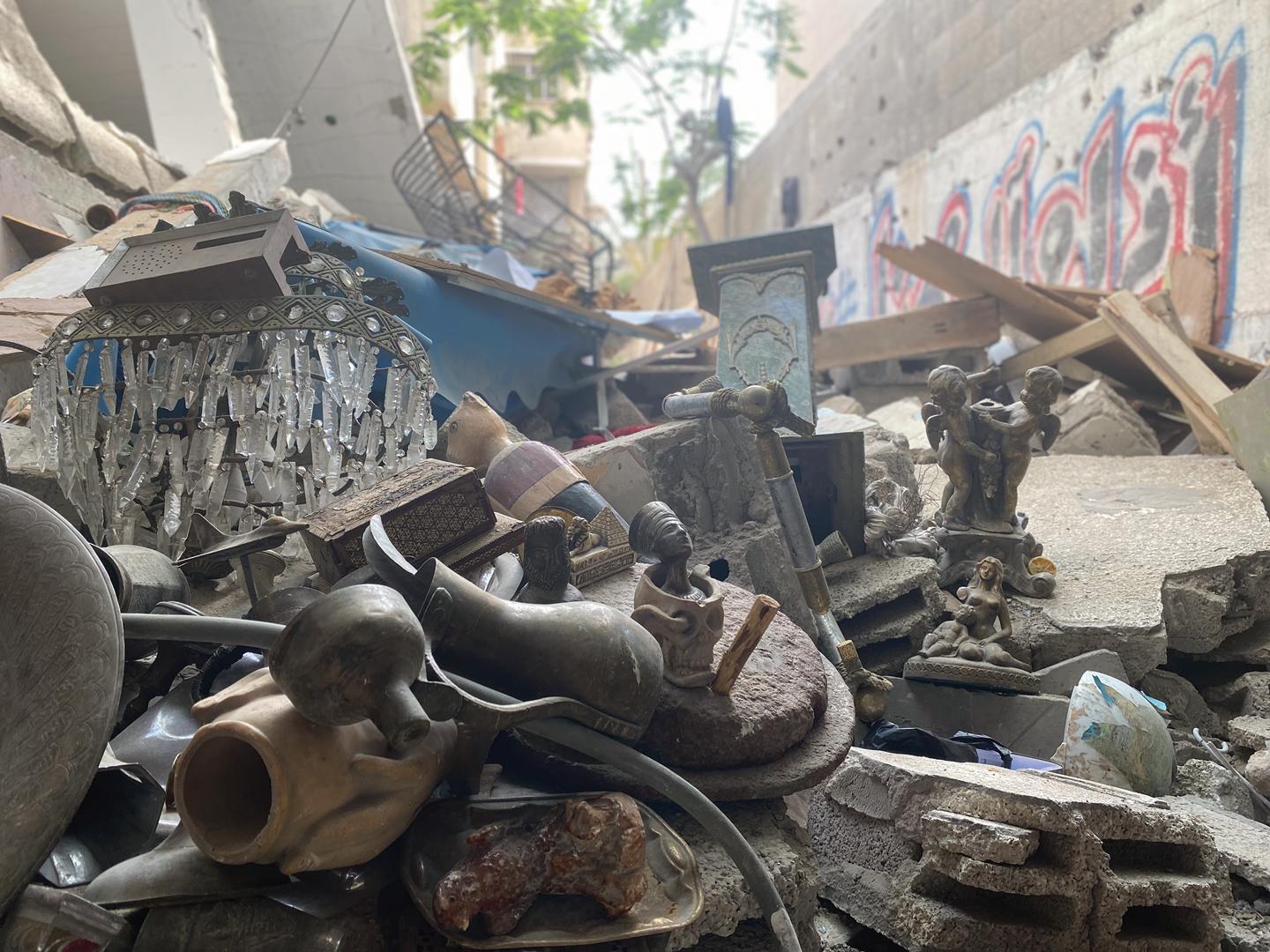
FRUSTRATION LEVELS among the Syrian Druze in the Golan Heights increased over a project for installing dozens of wind turbines on their land, perceived by the community as yet another afront by the Israeli occupation authorities. The community—many of its members are Syrian citizens—feels that the project threatens their rural way of life, their heritage and their health.
Thousands of Druze demonstrated on June 20-23 against the state-backed project by renewable energy company Energix to construct a wind turbine field in the north of the Golan Heights for renewable energy production. Violent clashes erupted between the protesters and the police; demonstrators threw stones and Molotov cocktails at security forces and burned tires. Twenty-
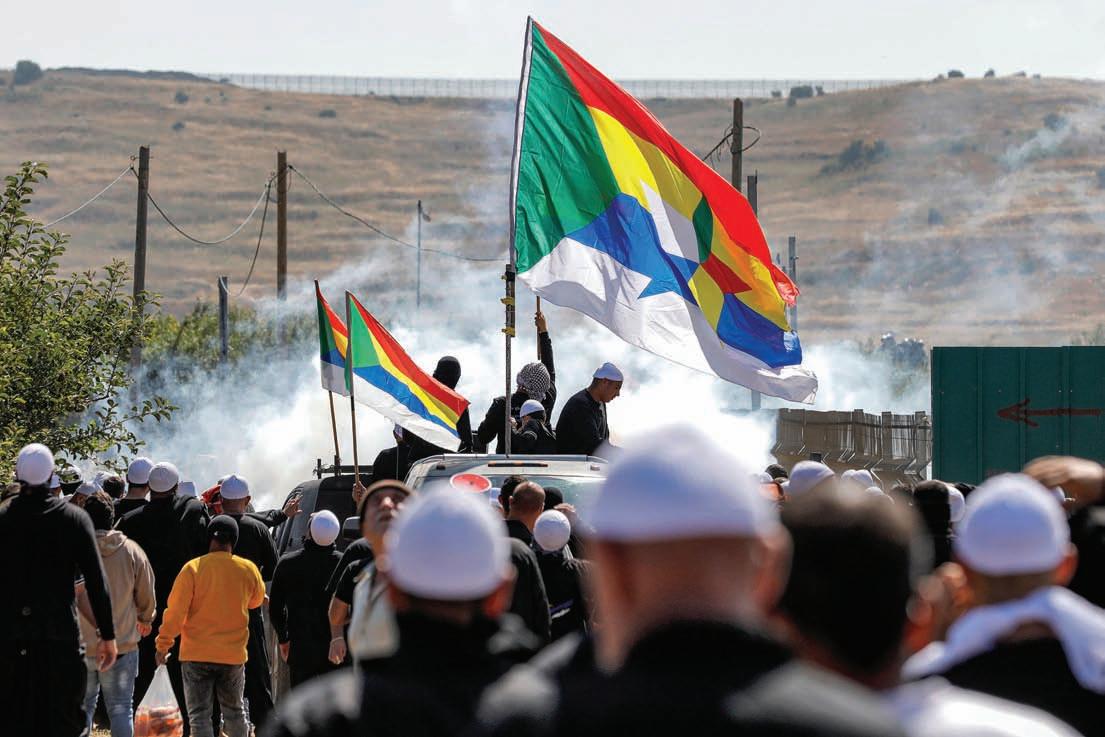
Rina Bassist, an Israeli journalist, heads Al‐Monitor’s Israel Pulse, where this was published on June 22. She has served as an interna‐tional correspondent for the Israel Broadcasting Authority. She also contributes to the Jewish Telegraphic Agency, Jerusalem Post and Ynet. Prior to her journalistic career, she served as deputy ambas‐sador in Bogotá.
seven people, including 17 police officers, were injured during the June 21st clashes, and six demonstrators were detained. The community has said they will continue to protest if the project isn’t suspended, according to Ynet.
According to data published by Israel’s Central Bureau of Statistics, some 150,000 Druze live in Israel, 125,000 of whom hold Israeli citizenship. Many of the Israeli Druze men serve in the Israel Defense Forces (IDF). Most of the roughly 25,000 Druze who reside on the Israeli side of the Golan Heights refuse to take Israeli nationality and still hold Syrian citizenship.
Israel occupied the Golan Heights in the aftermath of the 1967 war and annexed the then-Syrian territory in 1981. In 2019, the United States under President Donald Trump recognized the area as Israeli territory.
But on the ground, only 10 percent of Golan Heights Druze have requested Israeli citizenship. Over the years, many Druze in the
Tear gas fumes fill the air, on June 21, 2023, as members of the Druze community gather with their flags to protest an Energix wind turbine project planned 0n agricultural lands in their village of Majdal Shams in the Israel‐annexed Golan Heights. PHOTO BY JALAA MAREY/AFP VIA GETTY IMAGESGolan Heights have protested Israel’s 1981 annexation of the region and claim to be persecuted or neglected by the Israeli authorities.
Most of the Golan Heights Druze live off agriculture and tourism. They now claim that the wind turbine project will harm their way of life on several levels, according to Haaretz. The pastoral scenery of the Golan Heights, attracting many Israeli and foreign tourists, will be dotted by dozens of wind turbines. The construction of the turbines will require heavy machinery, which in turn will require large roads that need to be built. The Druze residents and some environmental groups also warn against health hazards such as the constant humming of the wind turbines and flashes of reflecting light, Ynet reported.
Energix rejects claims that the wind turbines are dangerous, saying that the project will offer the residents clean energy, instead of the current electricity grid failures, and will create hundreds of jobs for locals.
That being said, frustration levels have increased for several months now. Over the past few years, in preparation for the project, Energix had leased lands owned by Druze families in 25-year lease contracts. The contracts include compensation to the company, should the land owner retract. After signing contracts with Energix, and in view of the objection to the project by the community’s leadership, some of the land owners want to cancel the contracts but can’t afford the compensation, Haaretz reported.
Salim Brake of the Open University of Israel is considered one of the leading experts in the country on the situation of the Druze community. “These latest protests showcase two issues that are strongly intertwined. We have the issue of the turbines, and fears of the local residents for their health and for their rural way of life, but there is also the issue of land ownership and lack of trust in the Israeli authorities,” Brake told Al-Monitor.
“There is anxiety about possible future land expropriation. There are also other real or imagined dangers in the eyes of the residents, arising from suspicion and lack of trust in a system that has been discriminating against the Druze all these years,” he added.
Brake said that the fears over the wind turbine project add another layer of frustration that has been accumulating for years among the Druze community—not just in the Golan Heights, but also in the northern Galilee and Carmel regions.
Brake said that the Druze in the Galilee and Carmel have been suffering for years from a serious construction crisis.
“The government constantly piles up obstacles, preventing any upgrading or updating of urban master plans for the Druze villages. Young Druze men who come back to their villages after loyally serving in the IDF cannot build homes. For them, the Kaminitz Law [against construction without permits] is discriminatory and racist. There is no way out,” he added.
According to Brake, the construction crisis plight comes on top of the Nationality
The Virginia Coalition for Human Rights (VCHR) is a coalition of 19 organizations—with over 10,000 Virginians from diverse backgrounds—who advocate for Palestinian human rights. The VCHR supports and defends universal human rights, free speech and academic freedom. VCHR opposes Energix because it is an LLC incorporated under Energix Group, Ltd., an Israeli-based company that has been cited by the United Nations for its violations of human rights in the West Bank and the Golan Heights.
Cited as #32 on a U.N. list for constructing renewable energy projects on occupied land in Palestine and in Syria, Energix has brought its worst practices to Virginia that has resulted in almost $200,000 of fines imposed by the state Department of Environmental Quality.
Law—anchoring the Jewish character of the state of Israel, perceived by the community as a direct insult.
“They feel like second-class citizens, even though they—contrary to Israeli Arabs—serve in the army and have made many sacrifices for the country’s security. Their feelings of alienation are exacerbated by the current settler/ultra-Orthodox government that openly declares its intentions to increase Jewish presence in the Galilee,” the expert said.
“When Israel was established [in 1948], the Druze population counted 14,500 people. It is now 10 times bigger, yet not a single new Druze village has been established,” explained Brake.
After the clashes, Prime Minister Binyamin Netanyahu met with the spiritual leader of the Druze community, Sheikh Mowafaq Tarif, in an attempt to reduce tensions. Following the meeting, Netanyahu asked to suspend the project until after the Muslim holiday of Eid al-Adha. For the Druze community, this is not a solution; they demand that the government back away completely from the project.
Complicating things further, on June 22, National Security Minister Itamar Ben-Gvir ordered the police to enable the continuation of the wind farm project immediately. Ignoring the recommendation by the police to suspend the project until after the Eid, Ben-Gvir said he has clarified his position to the government and now awaits Netanyahu’s final decision on the issue. ■
In addition, Energix exclusively utilizes solar panels that consist of the toxic metal alloy Cadmium Telluride (CdTe), which has the potential to leach into soil and water.
By June 2023, Virginia communities in six counties have successfully prevailed over seven Energix utility-scale solar projects: Lily Pond Solar in Dinwiddie; Piney River Solar in Amherst; Mountain Brook Solar in Franklin; New Kent Solar in New Kent; Helios solar in Pulaski; Racehorse Solar in Caroline; and Westlake Solar in Franklin. Because of this pushback, Energix has been denied or has been forced to withdraw applications, which has resulted in the stalling or cancellation of approximately $2.2 billion in Energix projected revenue over a 45-year period. —VCHR
FADI, A SYRIAN TEENAGER with curly hair and an acne-covered face, has miraculously survived one of the greatest migrant boat disasters in the modern history of the Mediterranean.
Only 104 people have been rescued from a boat that carried an estimated 750 refugees and capsized on June 14 in the open sea near the coastal town of Pylos, Greece.
Scores of lifeless bodies have been pulled out from the water, and many more have washed ashore. Hundreds are still missing and feared dead; many of them are the women and children who huddled on the lower deck of the 30-meter boat.
Dr. Ramzy Baroud is a journalist, author and editor of Palestine Chronicle. His latest book, co‐edited with Ilan Pappé, Our Vision for Liberation: Engaged Palestinian Leaders and Intellectuals Speak Out, is available from Middle East Books & More. Dr. Baroud is a non‐resident senior research fellow at the Center for Islam and Global Affairs (CIGA). His website is <www.ramzybaroud.net>.
Fadi survived. A heart-rending photo shows the young Syrian sobbing as he met his older brother, Mohammed, who rushed to the port of Kalamata, Greece, to see him. The two brothers could not embrace, as Fadi was still trapped behind metal gates in a confinement made for the survivors.
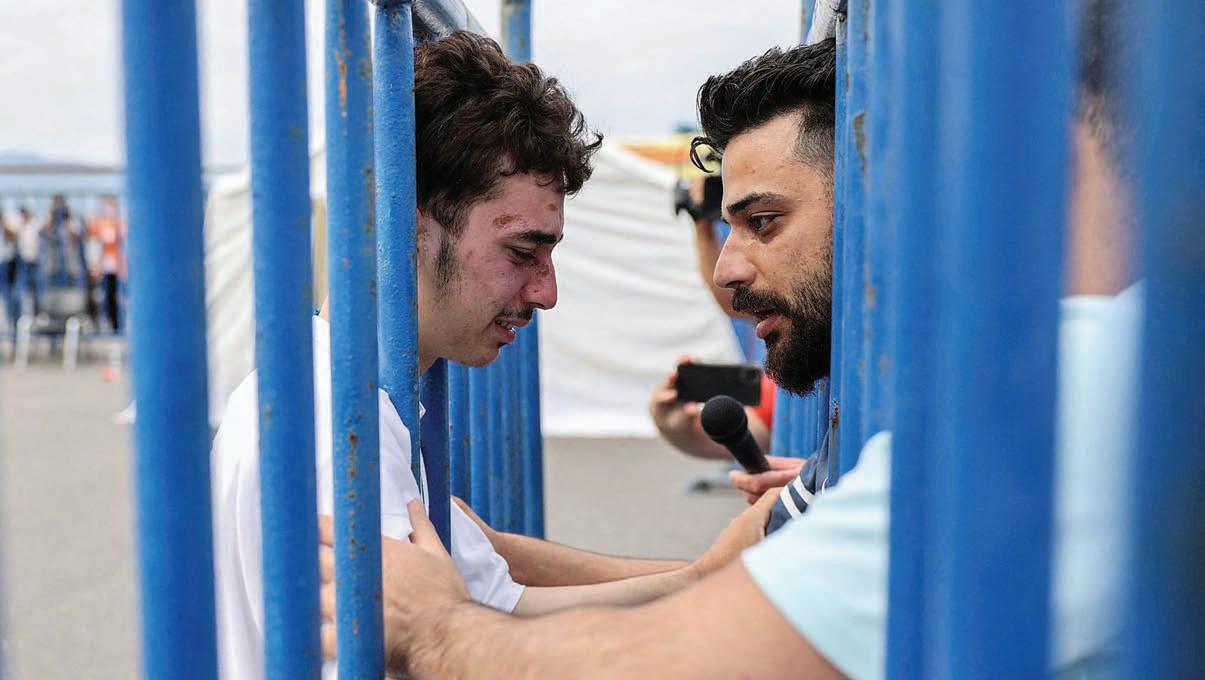
The latest boat disaster tells a much bigger story than the sympathetic news headlines attempted to convey. It is a story of war, poverty, inequality and despair.
The identity of those who died at sea gives us clues to the origins of the story. They were Syrians, Palestinians, Afghans and other nationals. These refugees were seeking safety, coveting mere survival.
The sad irony is that the latest episode of this seemingly endless horror took place exactly one week before the United Nations was set to “celebrate” World Refugee Day, held on June 20 each year.
Most references to this day by the U.N., U.N.-related organizations and international charities around the world seem to emphasize empowerment and positivity. A statement by the U.N. Refugee Agency (UNHCR) spoke of “honoring the refugees around the globe” and referenced Refugee Day as one that “celebrates the strength and courage” of refugees.
The contradictions of the discourses pertaining to the refugees should be too obvious to miss. But we often do. Too many lavish dinners will be catered in the name of the refugees in many Western capitals and embassies around the world. Diplomats will demand action, and well-paid intellectuals will enunciate the moral and ethical responsibilities of governments and civil societies. Many will clap and numerous business cards will be exchanged. But little will change.
Over 23,000 refugees have drowned or gone missing while trying to reach European shores between 2014 and 2022. The real number is expected to be much higher as there are no official records of how many people embark on these deadly journeys in the first place. “We have hundreds of records of bodies that are washed up to Mediterranean shores when we don’t know of any known shipwreck,” Julia Black of the International Organization for Migration told the BBC’s “Today Program.”
The identity of the victims—Syrians, Palestinians, Afghans, Sudanese, others— should have been a major clue as to why people take such terrible risks, only to reach European countries, where they endure great hardships, including racial discrimination, just to survive.
Yet we hardly confront the real culprits behind all of this: weapon manufacturers and military interventionists, and political actors who provoke and/or exacerbate conflicts. These individuals and governments see the Middle East, Africa and the rest of the Global South as mere space for geopolitical rivalries, cheap raw materials and human and economic exploitation.
But when the outcome of such dreadful policies results in the smallest irritant to the socioeconomic fabrics of Western so-
cieties, desperate refugees become villains, to be shunned, ignored, imprisoned and deported.
In reality, world refugees, estimated at over 100 million, are mostly vilified, not “celebrated.” They are seen as a burden, not an opportunity to confront and fix the underlying problems, old and new, that led to their original displacement.
The president of the European Commission, Ursula von der Leyen, visited Tunisia on June 11 along with far-right Italian Prime Minister Giorgia Meloni and Dutch Prime Minister Mark Rutte, and they were adamant about rebranding the tragedy of refugees as something else entirely.
In their joint statement, the high-ranking European politicians vowed to break “the cynical business model of smuggler(s)” because “it is horrible to see how they (the smugglers) deliberately risk human lives for profit.” Considering that the arms industry is one of Europe’s most thriving business enterprises, one cannot help but pause at the irony of such remarks.
No other collective experiences illustrate Western complicity in the creation of refugee populations as that of the Palestinian people. Thousands of them have perished while escaping for their lives from Israel’s horrific wars and sieges. They have been dying in large numbers ever since Zionist militants began the systematic ethnic cleansing of Palestine in 1947-48.
Yet, after 75 years of such suffering and pain, Western countries continue to do everything in their power to support
Indeed, those who are truly interested in commemorating World Refugee Day ought to fully fathom the protracted Palestinian refugee experience to truly understand where the problem actually lies.
On a recent trip to Turkey, I met with many Palestinian refugees, mostly from Gaza, whose families were made refugees by Israel in 1948 and again in 1967. These mostly young people are anxiously awaiting the opportunity to cross the sea into Greece, then to other European countries in search of work.
Mohammed B. told me that he had attempted nine times to reach Greece. “The last time I was caught. I was severely beaten and left for dead in a dark forest,” he said, “but I will try again.”
Mohammed’s uncle was killed by Israel during the First Intifada; several members of his family died due to the lack of medicine in the besieged Strip, and nearly 35 members of the family, mostly children, live in a three-bedroom house that was bombed by Israel on two separate occasions.

Mohammed, and millions like him, are not the villains. They are the victims.
For World Refugee Day to matter, it must address the root causes of such complex and ongoing problems. Only an honest and deep understanding can serve as a starting point for a meaningful conversation and, hopefully, meaningful actions to remove the causes that prompt people to risk their lives in a dangerous trip across the sea. ■
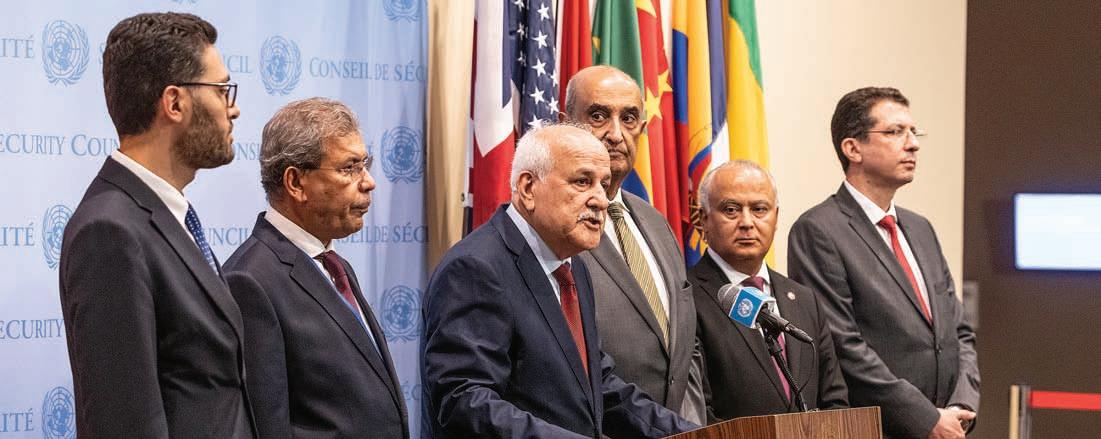
TAKEN AS A WHOLE, the U.N. system is a mélange of principles and sordid pragmatism which can be inspiring, nauseating or infuriating, and often all three simultaneously. There are indeed some U.N. staff, agencies and offices that can insulate themselves from the ever-present pressures of member states and lobbies, not least on Middle Eastern issues. On the bright side, at the end of June the High Commission for Human Rights issued its updated directory of international companies profiteering from the occupation or working from settlements <https://tinyurl.com/2ryhe43u>. The list does not propose action against the companies; it merely lets the world know which companies are working in illegally occupied territory, which makes the howls of outrage before and after its publication more than slightly puzzling unless you are tuned to the hypersensitivity of pro-Israeli advocates.
The original list of offending companies had been frequently postponed under intense U.S. pressure. Many Human Rights High Commissioners have been on the firing line for calling out Israeli human rights failures. These corrosive streams of complaints against any incumbent official who does not cover for Israel are very effective in ensuring nonrenewal of their appointment and sometimes effective in preemptively tempering criticism.
In these circumstances it is almost surprising that the U.N. is still holding the line against the “pitchfork and flaming torch” mobs who
bay “anti-Semitism” at critics of Israel. In particular cynical observers are impressed that Secretary General António Guterres has not yet succumbed to the relentless pressure to endorse the tendentious definition of anti-Semitism promulgated by the self-appointed International Holocaust Remembrance Alliance (IHRA).
Friends of Israel have been relentless pushing the IHRA “definition,” which soon lived down to suspicions by showing that its purpose was not to combat the isolated examples of anti-Jewish prejudice but to stigmatize protests against Israeli government behavior. Since the original IHRA draft had not had quite enough wiggle room to include criticism of Israeli human rights abuses, they helpfully interposed a series of “examples” tipping the scales to make almost any objection to Israel an example of anti-Semitism.
In a sort of legislative legerdemain, the “examples” were like quantum particles popping in and out of existence. If anyone objected, they were only “examples,” so it was anti-Semitic to quibble about such minor details and thus impede the cause, but otherwise it was “gotcha!” as suggested by the insistence on their inclusion.
However, many in the field, including drafters of the original IHRA, saw which way the pitchforks were pointing and crafted the Jerusalem Declaration to refine it. There was so much concern that the IHRA definitions and examples pilloried opponents of Israeli practices that lawyers, including some of its original drafters, drew up the Jerusalem Declaration, which was more tightly drafted to protect legitimate criticism from witch hunts. Critics who have tried to exclude the examples in the IHRA or suggested adopting the Declaration are
now at risk of charges of anti-Semitism themselves.
Ambassador Gilad Erdan, the Israeli representative to the U.N., plays a key role in pushing IHRA adoption in the U.N., which further confirms the political nature of the move. Showing immense tolerance for actual anti-Semitism by feudal signatories to the Abrahamic Accords and by the political heirs of the wartime Hungarian Arrow Cross, he pushed the IHRA fervently on the U.N. It was probably the pro-Israel lobby’s failure to get the High Commission to adopt the IHRA and its “clarificatory examples” that led to the backdoor attempt by the U.N. Special Rapporteur on Freedom of Religion or Belief, Ahmed Shaheed, the former Maldivian foreign minister, to go another route: after sedulous courting by and discussions with pro-Israeli lobbyists and the U.S. State Department, he sidled it into U.N. discourse and gave it his wholehearted endorsement. These wordsmiths knew what to smuggle into the reference, not least because the blades they were forging would ensure an
even more prolific torrent of anti-Semitism charges. Now that the IHRA definition has a toe in the door with his report, we can already see where it will be cited in other U.N. and international declarations to lend it a borrowed authority.
Words may be less effective than sticks and stones in breaking your bones—but the IHRA small print has already been trialed very effectively in Germany and the UK— and indeed with Human Rights Watch to fracture the careers of academics and politicians like British Labour leader Jeremy Corbyn or HRW’s Ken Roth. While the IHRA has no statutory power in international law, legislators around the world have incorporated its definitions into local codes to stifle protest.
Special Rapporteur Ahmed Shaheed’s support for the IHRA is assured of multiple broadcast, but the words of Professor E. Tendayi Achiume, the fifth Special Rapporteur on contemporary forms of racism, racial discrimination, xenophobia and related intolerance, are unlikely to get the
(Advertisement)
Israel echo chamber treatment. “I highlight the controversial status, divisive effects and negative human rights impacts of the IHRA working definition on anti-Semitism,” she said about her final report to the committee.
As if to validate her, Erdan, Israel’s ambassador to the U.N., called the report and the remarks by Achiume “a disgrace.” “These ill-founded recommendations made by the rapporteur are not in line with and are not part of her mandate,” he inveighed, leading a pile on by all the usual suspects among completely unbiassed pro-Israeli organizations—like the U.S. State Department.
The message is clear: the IHRA will soon be deployed against U.N. agencies and officers as well. Obviously Palestinian rights defenders must be aware that their opposition to the IHRA definition will be presented as anti-Semitic, so it is time to ask:
“What is wrong with the Jerusalem Declaration? Why are the IHRA examples so important to you?” And keep asking, since silence has consequences. ■

ON MARCH 19, 2023, the Biden administration harshly criticized an Israeli law passed in the Knesset that repeals the 2005 Israeli disengagement from the northern occupied West Bank, calling it a “provocation” and a violation of commitments Israel made to the U.S. The law allows Israeli citizens to enter and reside in the area between the cities of Jenin and Nablus, which Israeli settlers evacuated in 2005. The law could dramatically increase the potential for friction between settlers and Palestinians in the most sensitive and volatile area of the oc-

cupied West Bank. The events that followed and continue to transpire, covered in this issue, have proven the case.
On April 13, a letter led by Rep. Jamaal Bowman (D-NY) and Sen. Bernie Sanders (I-VT) and co-signed by Reps. Cori Bush (DMO), André Carson (D-IN), Summer Lee (D-PA), Betty McCollum (D-MN), Alexandria Ocasio-Cortez (D-NY), Ilhan Omar (D-MN), Ayanna Pressley (D-MA), Rashida Tlaib (DMI), Raúl Grijalva (D-AZ), Bonnie Watson Coleman (D-NJ), Jesús Garcia (D-IL), and Delia Ramirez (D-IL) was sent to President Joe Biden and Secretary of State Antony Blinken. The letter outlined their “deep concern regarding the rapidly escalating violence in the occupied Palestinian West Bank
and the alarming actions of the new extreme right-wing Israeli government.” They urged immediate action to deescalate and requested that the administration “undertake a shift in U.S. policy in recognition of the worsening violence, further annexation of land and denial of Palestinian rights.”
At the end of March, in response to escalating global conflict, Rep. Gregory Meeks (D-NY) introduced, H.R. 1801, with 23 cosponsors (all Democrats) “to enhance the consideration of human rights in arms exports,” aka the “Safeguarding Human Rights in Arms Exports Act of 2023.” A few days later, on March 29, Sen. Robert Menendez (D-NJ), with 7 cosponsors (all Democrats), introduced its sister bill S. 1025, in the
U.S. Speaker of the House Kevin McCarthy (c) delivers a speech during a special sitting at the Knesset, the Israeli Parliament, in Jerusalem on May 1, 2023, during his visit to the country with a congressional delegation. MENAHEM KAHANA/AFP VIA GETTY IMAGESSenate. In the House, the bill was referred to the Committee on Foreign Affairs and the Rules Committee, and in the Senate to the Committee on Foreign Relations. As summarized in the press release issued by Menendez, this legislation would “bolster Congress’ role in the review of proposed arms sales and exports to prevent the United States from contributing to or facilitating future human rights abuses” by reforming the Arms Export Control Act of 1976 “to guarantee that protection and promotion of human rights is an integral consideration of the export of arms and defense services to foreign countries.”
On May 10, Rep. Rashida Tlaib (D-MI) hosted a roundtable event to commemorate the 75th anniversary of the Nakba in the Capitol rotunda. Speaker of the House Kevin McCarthy tried to cancel the event, but only managed to cancel the dinner that was to follow. A few days later, on May 15, the United Nations hosted Palestinian Authority President Mahmoud Abbas for an event commemorating the 75th anniversary of the Nakba for the first time in its history. The event featured speakers and cultural activities, with 45 countries refusing to attend, including Israel, the United States, the UK and Ukraine.
A frustrated McCarthy let it be known that he would do everything in his power to celebrate the state of Israel, thus setting the agenda for what has followed in draft legislation and in the annual budget (NDAA) negotiations.
The fight against BDS reappeared as Sen. Marco Rubio (R-FL) reintroduced the Combatting BDS ACT, S. 1637 with six all-Republican cosponsors. It is “a bill to provide for nonpreemption of measures by state and local governments to divest from entities that engage in certain boycott, divestment, or sanctions activities targeting Israel or persons doing business in Israel or Israeli-controlled territories, and for other purposes.” It was referred to the Committee on Banking, Housing and Urban Affairs. The Senate bill follows a new House version, H.R. 3016, the Israel Anti-Boycott Act, introduced by Rep. Michael Lawler (R-NY) with five cosponsors.
Making good on the promise of more joint U.S.-Israel activities, on May 17 Rep. Carlos Giménez (R-FL) and 14 all Republican cosponsors, introduced H.R. 3393, U.S.Israel Cooperation Expansion Act, “to support security and law enforcement training and cooperation between the United States and Israel.” It was referred to the House Committee on Foreign Affairs.
On the same day, Rep. Gimenez together with 17 all Republican cosponsors, introduced H. Res. 409 “Condemning the acts of terrorism committed by Iranian military proxies, including Hamas, Hezbollah and the Palestinian Islamic Jihad, against the people of the state of Israel.” It’s been referred to the House Committee on Foreign Affairs. The resolution’s resolved clauses are a listing of congressional “we love Israel” mantras, resolving that Congress “condemns the acts of terrorism committed by Iranian military proxies, including Hamas, Hezbollah and the Palestinian Islamic Jihad, against the people of the state of Israel” and “recognizes Jerusalem as the legitimate capital city of the state of Israel” and “supports Israel’s efforts of self-determination and collective security against external forces” while also “reaffirms support for policies and initiatives combatting anti-Semitic behavior around the world.”
On May 25, Rep. Warren Davidson (ROH) and cosponsored by Reps. Dan Bishop (R-NC) and Josh Brecheen (R-OK) introduced H.R. 3685, the United Nations Voting Accountability Act of 2023, “to prohibit United States assistance to foreign countries that oppose the position of the United States in the United Nations.” It’s been referred to the House Committee on Foreign Affairs.
On April 28, Rep. Michelle Steel (R-CA) together with 30 bipartisan cosponsors introduced H.R. 3033—and in the Senate as S. 1390 on May 2 by Sen. Tim Scott (R-SC) with five bipartisan cosponsors—“to repeal the sunset provision of the Iran Sanctions Act of 1996, and for other purposes,” aka, the “Solidify Iran Sanctions Act.” It’s been referred to the Committees on Foreign Affairs, Financial Services, Judiciary, Ways and Means and Oversight and Accountabil-
ity. Another “snap-back” bill is being prepared ahead of the JCPOA September expiration deadline.
On May 11, Rep. Joe Wilson (R-SC) together with 45 bipartisan cosponsors, introduced H.R. 3202, “to prohibit any official action to recognize or normalize relations with any government of Syria that is led by Bashar al-Assad,” and for other purposes. It was sent to the House Foreign Relations and Judiciary Committees. It passed out of the House Foreign Relations Committee by voice vote.
Sens. James Risch (R-ID) and Menendez introduced S. 2006, “a bill to foster Tunisia’s democratic institutions, to limit funds until Tunisia restores checks and balances and to authorize the creation of a fund to support democratic reforms.” It’s been referred to the Committee on Foreign Relations. While on June 21, Sen. Dick Durbin (D-IL), together with three all Democrat cosponsors, introduced S.Res. 260 which is, “A resolution recognizing Tunisia’s leadership in the Arab Spring and expressing support for upholding its democratic principles and norms.” It was referred to the Committee on Foreign Relations.
On June 23, Rep. Elissa Slotkin (D-MI) together with 8 bipartisan cosponsors introduced H.Res. 554, “Affirming the nature and importance of the support of the United States for the religious and ethnic minority survivors of genocide in Iraq.” It’s referred to the House Committee on Foreign Affairs.
On June 21, Rep. Jan Schakowsky (D-IL) circulated for co-signers a letter addressed to U.N. Ambassador Linda Thomas-Greenfield and cc’d to the State Department’s Special Envoy for Monitoring and Combating Anti-Semitism Ambassador Deborah Lipstadt. The letter commends the Biden administration for its new national strategy to counter anti-Semitism and applauds the administration for its “decision not to codify the International Holocaust Remembrance Alliance (IHRA) definition of anti-Semitism in this strategy and to instead look to several definitions of anti-Semitism.” It also encourages the ambassador to pursue the administration’s more nuanced strategy with the U.N. and its members.■
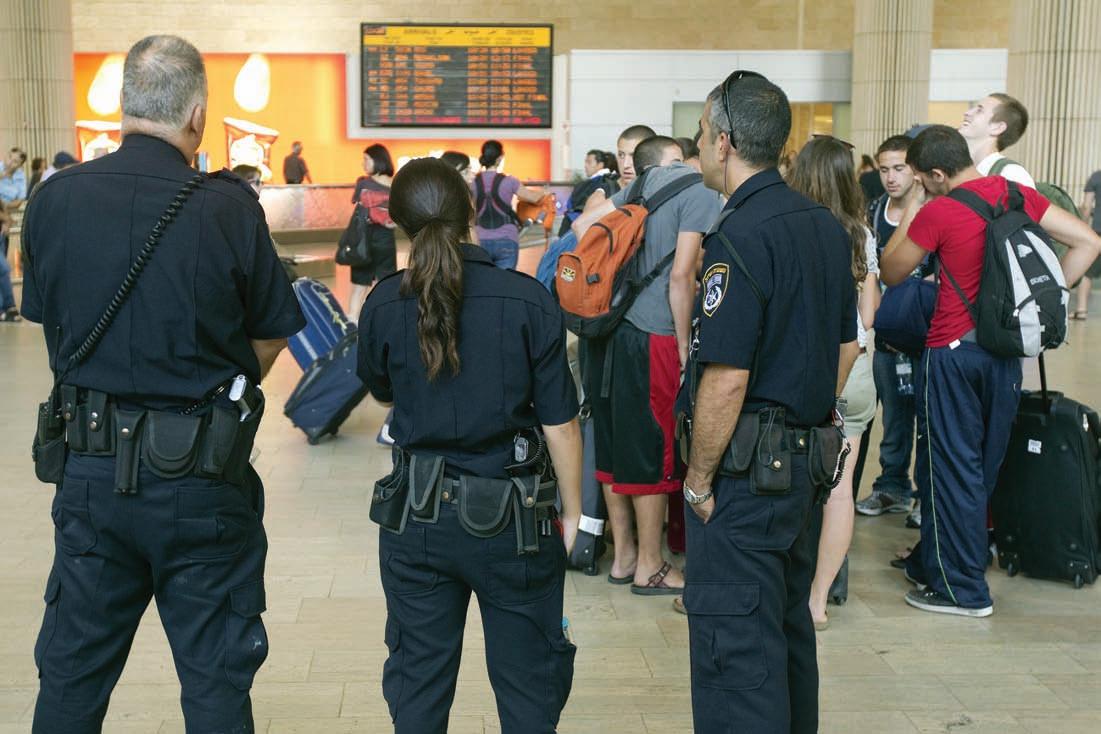 By Dr. James J. Zogby
By Dr. James J. Zogby
THAT SOME BIDEN administration officials appear to be in a rush to admit Israel into the U.S. Visa Waiver Program (VWP), which allows for mutual, short-term entry between participating countries and the U.S., is both baffling and insulting.
It’s baffling because both the Departments of State (DOS) and Homeland Security (DHS) know that Israel doesn’t meet one of the essential conditions for entry into the program. Any country seeking admission into the VWP must guarantee full reciprocity, that is “equal treatment and freedom of travel for all U.S. citizens regardless of national origin, religion or ethnicity.” Israel has continually failed to meet that standard by blatantly discriminating against Arab Americans at its border.
Civil rights groups have collected hundreds of stories from Arab Americans, especially Palestinian Americans, who have been ha-
rassed for hours by Israeli border control or outright denied entry and forced to return home to the U.S. The DOS has even issued a travel advisory noting that “U.S. citizens of Arab or Muslim heritage (including Palestinian Americans) have experienced significant difficulties and unequal and occasionally hostile treatment at Israel’s borders and checkpoints.” In 2014, the last time that there was a push to admit Israel into the VWP, DOS rejected their application precisely because of their discriminatory treatment of Arab Americans.
Not only has the situation remained unchanged, but with Israel’s issuance of new rules specifically targeting Palestinian Americans, entry has become even more restrictive. So why is the Biden administration now attempting to rush through Israel’s admission into the VWP?
An Israeli newspaper recently described the steps some U.S. officials are taking to help Israel overcome the reciprocity issue. They will begin—most likely in July—a 30-day trial period in which
Israeli police officers stand guard at Ben Gurion Airport on July 7, 2011 as part of preparations for the arrival of a “Pro‐Palestinian Fly‐In,” organized by European and North American activists to travel en masse to the West Bank. PHOTO CREDIT JACK GUEZ/AFP VIA GETTY IMAGESIsrael will implement a new process for entry screening. As described in the article, during this month, “Palestinian Americans will be able to apply for a 90-day travel authorization…[during which] the U.S. wants Israel to demonstrate that a critical mass of Palestinian Americans are able to apply online…[receive a visa] and successfully use it to enter” Ben Gurion Airport.

While the ability to apply online and enter through the Tel Aviv Airport (instead of being forced to use the Allenby Bridge from Jordan) is an improvement for some Palestinians, the design of the trial is, at best, inadequate. At its worst, it’s deeply insulting.
In the first place, as described by some U.S. and Israeli officials, the trial only applies to the roughly 70,000 Palestinian Americans who currently possess Palestinian IDs. This excludes the hundreds of thousands of Palestinian Americans who either do not have Palestinian documents or do not want them, only wishing to travel on their U.S. passport. And of those with Palestinian IDs, the trial only appears to require Israel to admit an undefined “critical mass” of those who apply.
Additionally, the trial excludes other large groups who have reported serious discrimination at entry or exit. This includes other Arab Americans or American Muslims, especially those who have traveled to Arab or Muslim countries. The trial also says or does nothing to address the problem of harassment experienced at
checkpoints or on departure. And finally, the design of the trial doesn’t speak to the actual operation of the VWP, which is supposed to allow entry without application or pre-authorization. For example, Israelis have been told that if their country is admitted into the program, they will be able to enter the U.S. without a visa. Reciprocity is supposed to mean that all Americans, including Arab Americans, should be able to enter Israel in the same way— without a visa.
Instead of demonstrating Israel’s ability to meet the terms of the VWP, this trial, as designed, simply provides Israel with a “work-around” to allow access to a limited number of Palestinians. This is not the meaning of reciprocity. “Dumbing down” the terms to which Israel must comply to gain entry into the VWP because they cannot otherwise meet them both violates the statutory requirement of full reciprocity and is an insult to the citizenship rights of those Arab Americans who may still be subjected to discriminatory treatment at entry and exit.
While Israel argues that its border policies are dictated by security concerns, there are too many recorded instances of discriminatory treatment or denial of entry that put lie to this claim. The refusal to accept the U.S. passports of Palestinian Americans (even those born in the U.S.) and its treatment of Arab Americans who have traveled to Lebanon or Egypt speak more to harassment than security. In any case, if Israel insists on continuing its be-
havior, the U.S. simply should not and cannot honor Israel with the privilege of the VWP.
Because this issue has been so deeply troubling to so many Arab Americans, I have been collecting affidavits from those who have encountered harassment or denial of entry at Ben Gurion Airport. I have been able to share their experiences with the Secretaries of State with whom I dealt over the past 30 years, all of whom made it clear that Israel’s conduct was unacceptable. On hearing some of these stories, Secretary Condoleezza Rice expressed her outrage and issued a statement noting that “An American is an American” and there should be no discrimination based on ethnicity or national origin.
This affirmation of our citizenship rights is what we should expect from our government. Allowing Israel to designate certain Americans as second-class citizens is insupportable. We cannot allow Arab Americans to be “thrown under the bus” so that the administration can do an election-year favor for Israel.
Arab Americans aren’t alone in our insistence that our rights be protected. Letters by several members of Congress and six prominent liberal American Jewish organizations have supported us by calling on the Biden administration to put the brakes on Israel’s admission into the VWP until Israel can demonstrate the capacity and willingness to honor the reciprocity requirement. ■
On July 3, three days after the “Shabbat Shalom” clip appeared on Twitter, the Israeli army sent 1,000 troops from its elite forces along with armored vehicles, helicopters and drones into the Jenin refugee camp in the occupied West Bank, killing at least eight Palestinians, including children, within the first few hours. Nides, a banker-turned-diplomat, engaged in his publicity stunt at a time when Israel is snubbing the U.S., its closest and most generous ally, with increasing frequency and intensity.
WASHINGTON IS GOING out of its way to accommodate Israel and is being publicly chided in return. Why is that?
Long called the most special bilateral relationship, U.S.-Israeli ties are in fact the world’s strangest. The weirdness, as we have witnessed in the past few weeks, comes in different forms—ranging from the cynical to the surrealistic.
Take for example the June 30 tweet by the U.S. ambassador to Israel, Tom Nides, containing a video of himself and Israeli soldiers at the Israel-Lebanon border, wishing everyone “Shabbat Shalom.” This bizarre display of support for the Israeli military, which is de facto still at war with Lebanon, came amid heightened tensions between the two countries.
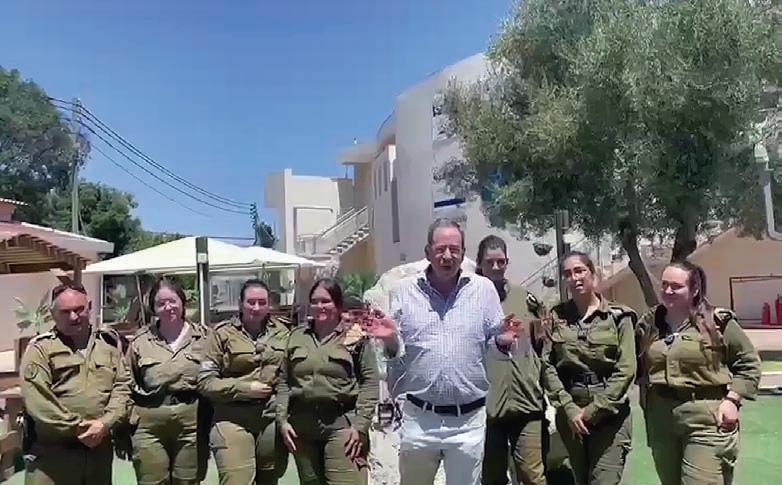
Earlier in June, Israeli Defense Minister Yoav Gallant threatened to bomb Lebanon back into the “Stone Age” if the Lebanese group Hezbollah starts a war. Likewise, Amir Baram, the head of Israel’s northern command, declared that in the event of a war, the Israeli army would “destroy all the infrastructure… to the last stone” in southern Lebanon—which would amount to a war crime.
Marwan Bishara writes extensively on global politics and is widely regarded as an authority on U.S. foreign policy, the Middle East and international strategic affairs. He is a senior political analyst at Al Jazeera, which posted this article on July 3, 2023. Copyright Al Jazeera. Reprinted with permission.
Apart from Israel’s deadly assaults on the Palestinians, Israeli officials have also repeatedly challenged the official U.S. position in support of Palestinian statehood. In mid-June Prime Minister Binyamin Netanyahu told the Knesset’s foreign policy committee that Israel must “crush” the idea of a Palestinian state.
The Israeli leader has also openly disregarded warnings from the U.S. against fostering closer ties with China. Most recently, he announced he will be travelling to Beijing, giving the cold shoulder to U.S. President Joe Biden’s administration, which has not yet invited him to visit Washington.
Netanyahu and his ministers have not minced their words when expressing dissatisfaction with Biden’s policies. In March, the prime minister accused the U.S. leader of meddling in Israeli affairs over his comments about the controversial judicial reform his government has been trying to pass and which has sparked monthslong protests across Israel.
In February, Israeli Diaspora Affairs Minister Amichai Chikli reprimanded Nides for “interfering” in Israel’s internal affairs, telling him to “mind [his] own business.”
The U.S. ambassador is not the only U.S. official to engage in bizarre diplomatic stunts amid growing disparagement from the Israeli government.
In early June, U.S. Secretary of State Antony Blinken went out of his way to lobby Saudi Arabia to normalize relations with Israel despite its ever-expanding illegal settlements and mounting violence against Palestinians, which have already embarrassed its new friends in the Gulf along with the Biden administration.
On June 30, 2023, U.S. ambassador to Israel, Tom Nides, tweeted a video of himself and Israeli soldiers at the Israel‐Lebanon border. TWITTER/SCREENSHOTThen the U.S. Congress announced that Israeli President Isaac Herzog will address both of its houses to commemorate the 75th anniversary of Israeli statehood, an honor extended previously to Netanyahu three times.
The last time Netanyahu spoke to a joint session of Congress was in 2015 when he tried to mobilize, if not outright incite, U.S. lawmakers against then-President Barack Obama’s administration over its decision to negotiate a nuclear deal with Iran. This came after he publicly humiliated Obama at the White House in 2011, lecturing him about Palestine and the Middle East.
This did not deter the Obama administration from committing to send Israel $38 billion in military aid over 10 years, subsidizing its purchase of F-35 jet fighters. And if that wasn’t enough, this “single largest pledge of military assistance in U.S. history,” a pricey gift from the American taxpayer, was met “not with big love, but with mostly meh,” according to The Washington Post.
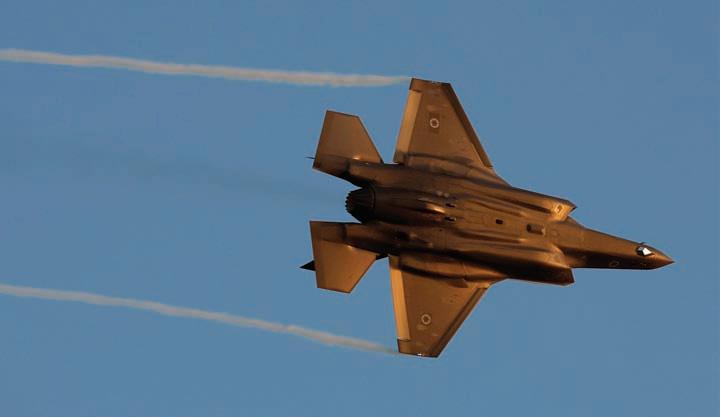
Last year, the Biden administration reaffirmed and even expanded these military commitments in a new strategic memorandum, the Jerusalem U.S.-Israel Joint Partnership Declaration, in return for, well, nothing. Nada.
It couldn’t even get the previous, presumably more moderate Israeli government to embrace the standard rhetoric on achieving peace in Palestine. Meanwhile, Biden has decided not to reverse any of his predecessor’s major concessions to Israel concerning its illegal annexation of Jerusalem and the Syrian Golan Heights.
That’s not just strange, it is obscene. Even mad. And it begs the question: is there a method to this madness? Otherwise, why would the U.S. reward Israel despite its intransigence when such support boosts its militaristic and colonial tendencies and feeds its bellicosity? Several explanations come to mind.
First is the state of U.S. domestic politics. Biden is desperate not to alienate a single pro-Israel Democrat in the Democrats’ razor-thin majority in the Senate, especially when the Republicans, who control the House of Representatives, are blindly fol-
lowing Netanyahu, come what may.
This is perhaps why Biden, the leader of the world’s foremost superpower, asked for Israeli approval to rejoin UNESCO six years after his predecessor abandoned it to appease Israel. This was to make sure that the vote in Congress on the issue would pass.
Second is Washington’s political tactics. Biden wants to offset the temporary coolness toward the Israeli government by warming to its military, executive branch and secular business elites to illustrate his bona fide “love for Israel.” Such misplaced sentiment toward a colonial, apartheid regime has become more of an obsession in Washington, totally disconnected from the rest of the country, indeed the world.
In fact, when it comes to Israel-Palestine, Biden and many Democratic senators are not exactly aligned with the Democratic Party’s base, which has become ever more critical of the Zionist state. Dissatisfaction is growing even among the party’s Jewish members.
According to a 2023 Gallup poll, 49 percent of Democrats sympathize more with the Palestinians, 38 percent sympathize more with the Israelis and 13 percent sympathize with neither.
Third is traditional U.S. foreign policy. Conventional wisdom in Washington has long revolved around satisfying Israel’s needs and desires to encourage it to moderate its positions on peace with the Palestinians and make the necessary “compromises,” even “sacrifices,” for
peace. But in reality, unconditional U.S. support has thus far hardened Israel’s stance, radicalized its society and driven its polity toward fascism.
Finally, there is also Washington’s strategic thinking. Historically, the U.S. has maintained strong and consistent strategic cooperation with Israel, seeing it as its most reliable ally in the Middle East despite political and diplomatic ups and downs. Just last year, Biden repeated this mantra, saying that if there was no Israel “we’d have to invent one.” But treating it as a strategic asset has long proved of illusionary utility as the Zionist state has shown itself to be an utter liability, at least since the end of the Cold War.
In fact, Israel’s primary objective is to keep the U.S. stuck in the Middle East to clean up its messes. Recently, Netanyahu was quite honest about it, telling Knesset members that China’s growing involvement in the region may not be so bad because it compels the U.S. to stay engaged—on Israel’s side, of course.
But much of the Middle East’s hostility toward the U.S. is driven by its decadeslong support for what countries in the region see as a colonial warmongering state. That’s why only by freeing itself from Israel’s paranoid influence could Washington begin to act as a responsible and respectable actor in the region.
Wishful thinking? Perhaps. But the shift in the Democratic Party in favor of justice in Palestine does provide some hope when it is needed most. ■
THE ISRAELI PROTESTS against its new right-wing government have now touched on Israel’s nuclear weapons. To underline what is at stake, former Israeli Prime Minister Ehud Barak cast aside Israeli ambiguity over whether it possesses nuclear weapons to warn his compatriots that Western diplomats are worried that a Jewish messianic dictatorship could gain control over Israel’s nuclear weapons.
One thing we can be sure of is that the United States was not officially represented among those Western diplomats. American diplomats—in fact all U.S. government employees—are forced to pretend they know nothing about Israeli nuclear weapons. The
pretense hobbles America’s policy on restraining the spread of nuclear weapons in the Middle East. Barak’s acknowledgment of Israel’s weapons, backhanded as it was, should free the United States from this outdated omerta
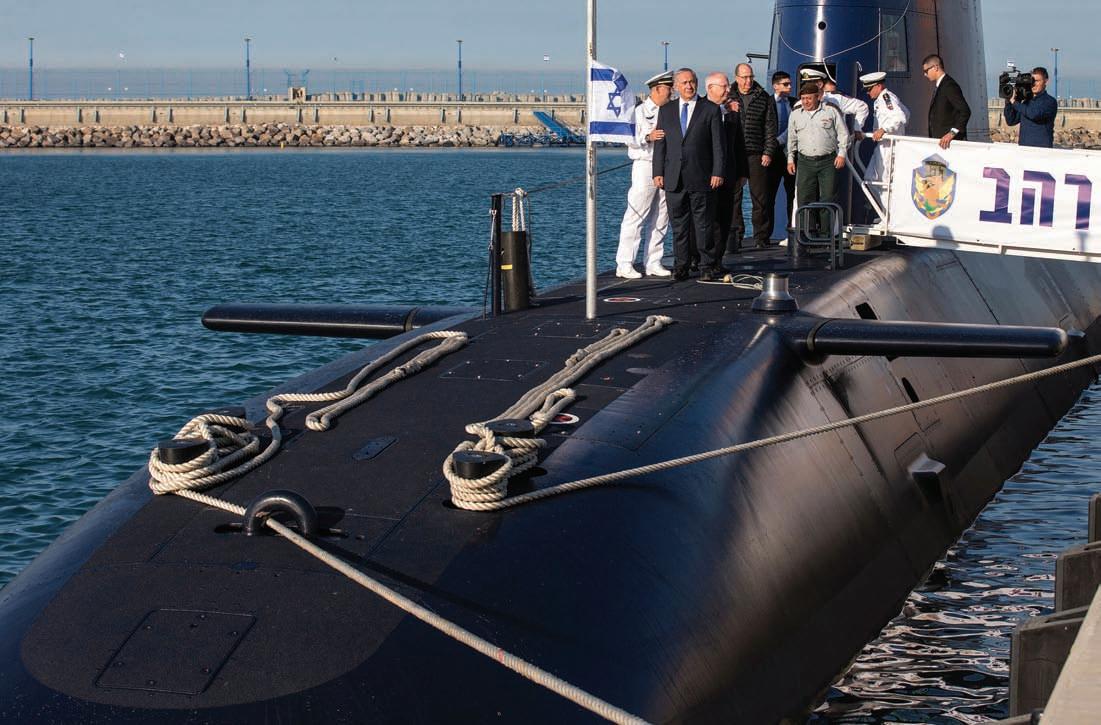
The popular explanation of the U.S. gag on Israeli nuclear weapons is that it is required by a September 1969 deal between Richard Nixon and Israel’s then-Prime Minister Golda Meir in which America would accept a nuclear-armed Israel and both would keep Israel’s nuclear weapons secret. U.S. policy toward Israeli nuclear weapons was indeed eased after their meeting, but judging by Nixon’s memoirs, it was because he didn’t care much whether Israeli had them. His main interest was to gain Israeli support in the Cold War.
They spoke alone, kept no notes, and told no one what they talked about. A memorandum days later to the president from Henry Kissinger, then his national
security adviser, shows even Israeli Prime Minister Binyamin Netanyahu (second, left), attends a ceremony on Jan. 12, 2016, for the arrival of the German ‐made INS Rahav, the fifth Israeli Navy submarine that can be outfitted with long‐range nuclear‐tipped missiles, at the Israeli military port of Haifa. The submarine deal has been called the largest suspected graft scandal in Israel’s history. PHOTO BY JACK GUEZ/AFP VIA GETTY IMAGEShe knew little about the conversation. As to maintaining secrecy, they didn’t need a formal agreement. Nixon and Meir both understood a declared Israeli nuclear arsenal would have led to pressure on Moscow to provide their Arab allies with nuclear weapons.
The U.S. bureaucracy and academics later created a myth about a nuclear deal, turning a convenient accommodation into a perpetual obligation, and subsequent presidents fell in line. But an international deal of which there is no record is no deal at all.
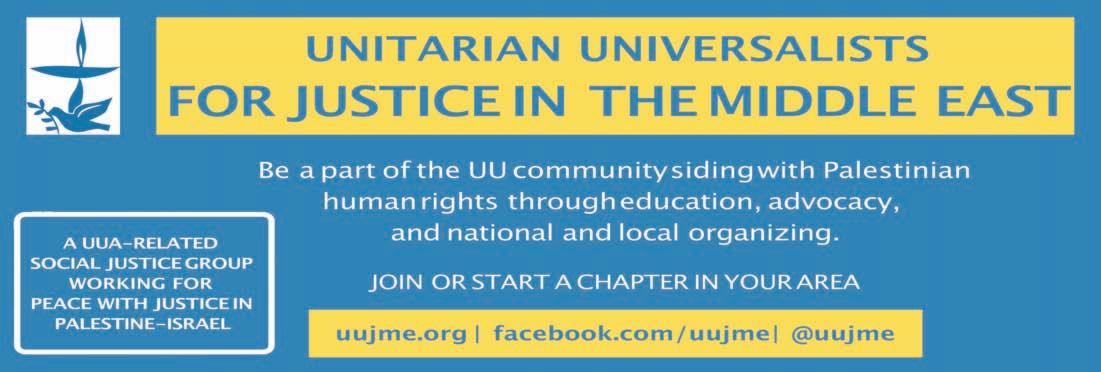
Nevertheless, U.S. presidents since Bill Clinton are said to have signed a secret letter that they will not interfere with Israel’s nuclear weapons, and Israel acted as if it was entitled to such a commitment from every incoming U.S. president. It got the commitment.
When President Obama took office in 2009, the first question at his first televised press conference, from veteran reporter Helen Thomas, was: “Do you know of any country in the Middle East that has nuclear weapons?” The president’s slippery reply was: “I don’t want to speculate.” Helen Thomas got fired soon after, and while this was for her anti-Israeli remarks on a different occasion, no reporter has asked the question since. In February 2017 Israeli ambassador Ron Dermer managed to infuriate even the newly arrived Trump White House staff, sympathetic to Israel, with his heavy-handed demands the new president sign “the letter.” Still, it worked.
A change won’t come easily. A realistic
U.S. government assessment of Israel’s nuclear weapons will have to overcome not only Israeli intervention for its own reasons, but also State Department and White House resistance, in part because of the embarrassment of such an admission after years of denial, but also because such an admission could lead to complications under U.S. law.
There is persuasive evidence that Israel detonated at least one test nuclear explosion on Sept. 22, 1979, about a thousand miles south of South Africa. The signal, detected by a U.S. Vela satellite, with corroborating evidence, was widely interpreted by the U.S. intelligence community and most analysts as coming from an Israeli nuclear test explosion.
While the Carter White House publicly argued otherwise, months after the event Jimmy Carter wrote in his diary: “We have a growing belief among our scientists that the Israelis did indeed conduct a nuclear test explosion in the ocean near the southern end of Africa.” Such an explosion was a violation of the 1963 Limited Test Ban Treaty, to which Israel was a party.
Confirmation of such a test would also trigger the 1977 Glenn Amendment to the Arms Export Control Act, which imposes tough economic and military sanctions on any state, other than the five nuclear powers authorized under the Non-Proliferation Treaty, that detonates a bomb after 1977. The president can waive the penalty, but not without political embarrassment.
(Advertisement)
While the U.S. government tiptoes around the issue, Israel brags about its nuclear force. At the 2016 ceremony for the arrival of the fifth German-built submarine which Israel outfits with long range nucleartipped missiles, Netanyahu said: “Our submarine fleet is used first and foremost to deter our enemies who strive to extinguish us. They must know that Israel is capable of hitting back hard against anyone who seeks to hurt us….” No mention of “nuclear,” but the message was unmistakable.
Who would have imagined that, just as we have been worrying about Pakistani weapons falling into the hands of Islamic fanatics, we would come to the point where we have to fear Israel’s nuclear weapons falling into the hands of Israeli fanatics, who, as Ehud Barak explained, are “determined to attack Islam.” Our government cannot deal with these issues if it ignores the existence of Israeli nuclear weapons.
In his book on Israeli spy Jonathan Pollard, Wolf Blitzer wrote there is “a widely held attitude among Israeli officials that Israel can get away with the most outrageous things. There is a notion among many Israelis that their American counterparts are not too bright, that they can be ‘handled.’” We should not any longer put up with that. The Cold War reasons for America to stay mum about Israeli nuclear weapons evaporated decades ago. What the Israeli government says about its nuclear weapons is its business—but what our government says about it is American business. ■
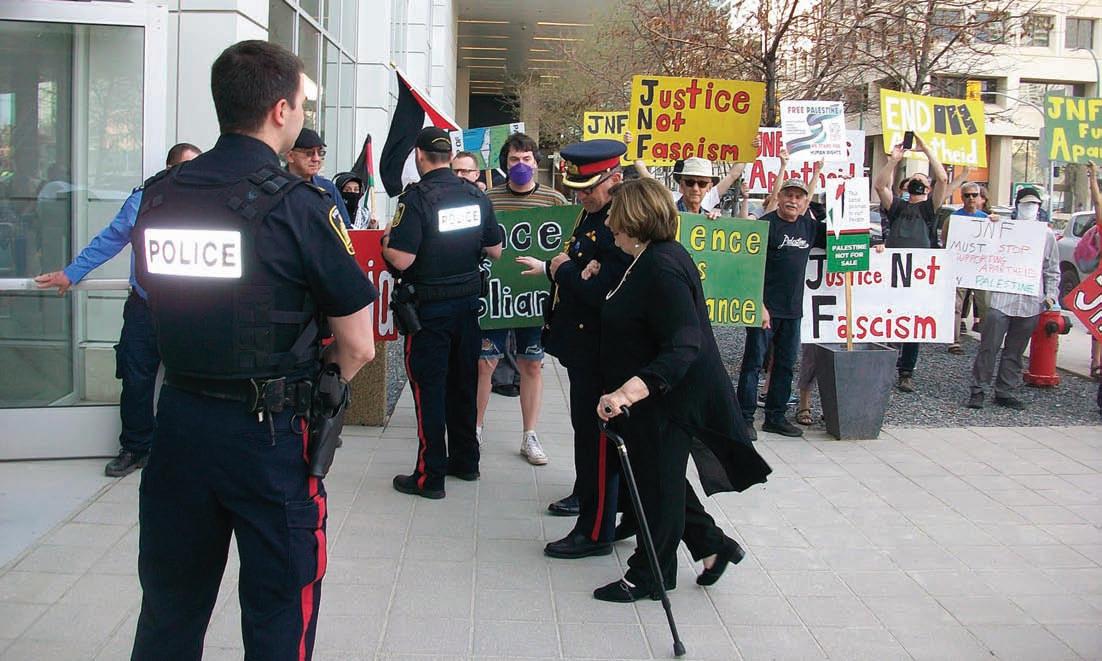 By Candice Bodnaruk
By Candice Bodnaruk
MORE THAN 50 people danced the dabke and flashed peace signs at a peaceful demonstration against the Jewish National Fund (JNF) at the organization’s annual Manitoba fundraising dinner in mid-May.
The JNF Canada website states: “JNF Canada envisions a world where Israel’s communities are supported and healthy, and where generous Canadians can help us build strong foundations for Israel to thrive.” JNF acquires and develops land in Israel and the occupied territories used for settlements, illegal under international law. In 1972 JNF Canada raised $15 million to create Canada Park. The park is made up of more than 5 million trees planted atop the ruins of three Arab villages destroyed in the Six-Day War. Today the apartheid wall prevents Palestinians living in the West Bank from visiting Canada Park.
Candice Bodnaruk has been involved in Palestinian issues for the past 14 years through organizations such as the Canadian BDS Coalition and Peace Alliance Winnipeg. Her political action started with feminism and continued with the peace movement, first with the No War on Iraq Coalition in 2003 in Winnipeg.
The Winnipeg protest, organized by Independent Jewish Voices (IJV), included participants from the Mennonite Church PalestineIsrael Network (MCPIN), Peace Alliance Winnipeg, United Jewish People’s Order (UJPO), Winnipeg Coalition Against Israeli Apartheid (WCAIA) and members of the local Palestinian community. Demonstrators had one central message to the federal government: revoke the JNF’s charitable status.
Those in attendance at the spring fundraiser could not ignore the protest right before their eyes. The event’s venue—on the main floor of a building with a large street-facing window—meant many protesters took the opportunity to get up close and personal with the gala’s guests enjoying a cocktail hour.
Protesters missed the opportunity to confront the event’s guest of honor, Israel booster and former Canadian Prime Minister Stephen Harper. In 2014 Harper visited the West Bank to lay the cornerstone for the Stephen J. Harper Hula Valley Bird Sanctuary Visitor and Education Center. During that visit he was also awarded an honorary doctorate from Tel Aviv University.
Demonstrators did have a chance to greet Manitoba’s Lieutenant Governor Anita Neville. When she arrived at the event, Neville was surrounded by protesters and greeted with messages like “Apartheid,” “Silence is Compliance” and “JNF: Stop Colonizing Palestine.”
Participants also engaged passersby and those entering the soiree about Canada’s ongoing support for Israel through the Canada-Israel Free Trade Agreement (CIFTA) and Canadian weapons sales to Israel.
Winnipeg’s Palestinian community and their supporters gathered near Manitoba’s Legislature to mark Nakba 75 on May 13, waving Palestinian flags and holding large banners. People chanted “Free, Free Palestine” and lined up along Broadway Avenue holding large keys and placards with messages like “Apartheid” and “Silence is Compliance.”
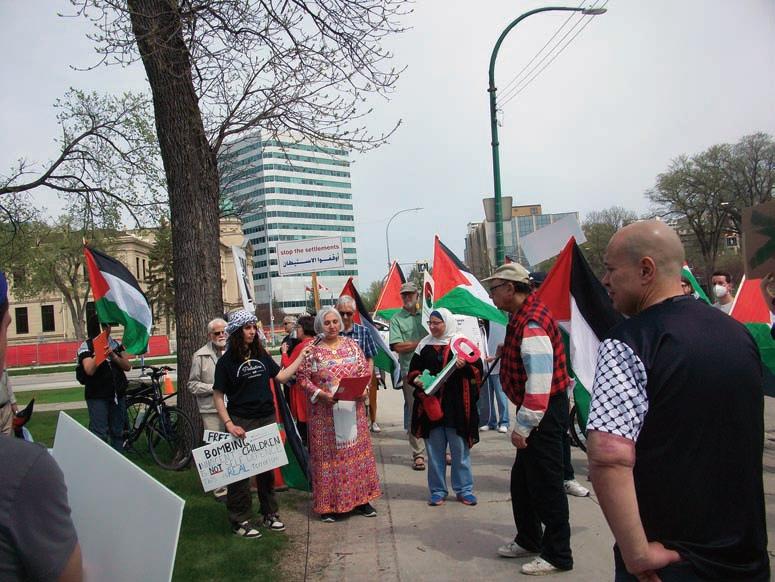
Meanwhile a much smaller group from the Israeli Canadian Council stood nearby and waved Israeli flags.
“Canada Recognize Nakba” was the theme of this year’s Nakba remembrance. Many speakers focused on the intergenerational trauma common among Nakba survivors and their descendants.
Nakba survivors (including a Nakba baby, born May 15, 1948) and their families shared stories and explained how the Nakba affects Palestinians living in Canada. One survivor who was born in the 1950s described how his family became refugees in 1948 when they fled to Gaza before he was born; he became a refugee himself in 1967 when Israel invaded Gaza.
“Even though the country has been disfigured and removed from the map of the world, the people of Palestine live on because of their resilience,” he said.
Survivors also explained how the Nakba has followed Palestinians, referencing the 1982 massacre at Sabra and Shatila refugee camps in Lebanon, attacks on Jenin in 2002, and more recent assaults on Sheikh Jarrah and Huwara.
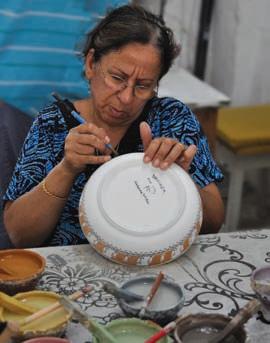
A Christian Palestinian woman also shared her father’s 1948 story of expulsion and his experience of not being able to return to the family home because it was part of the new state of Israel. She brought her father’s Palestine passport to the event to share. She also described her recent visit to Aida refugee camp near Bethlehem, which is known as the most “tear-gassed place on earth.”
Harold Shuster of Independent Jewish Voices-Winnipeg Chapter pointed out that
May 15, 2023 was the first time Nakba Day would be officially observed at the United Nations. “The Zionist dream of a land without a people for a people without a land was a lie,” he said. He added it is incumbent upon every single person to do what they can bring an end to Israeli war crimes.
On May 9, New Democratic Party Member of Parliament Alexandre Boulerice introduced a motion in Canada’s parliament to officially recognize Nakba Day. “The Liberal government needs to do a lot more, in-
(Advertisement)


cluding enforcing the United Nations resolutions, voting in accordance with our own official position at the U.N. and condemning the oppression, violence and discrimination that Palestinians experience every day,” Boulerice said in the House of Commons.

Although many Canadian cities and provinces have adopted the controversial International Holocaust Remembrance Alliance (IHRA) definition of anti-Semitism over the past year or so, Winnipeg has yet to do so.
At a Human Rights Committee of Winnipeg City Council meeting in late March, grassroots activists showed up en masse to oppose adoption of the definition. The council chose only to receive the motion to adopt the IHRA as information and to review it at a later date.
For opponents of the controversial motion, postponement is a victory. Yet activists say it is important not to be naive and
to recognize the fight against the divisive definition is far from over.
In the four-hour meeting, more than 20 presenters spoke, the majority of them opposed to adopting the motion.
Organizer Harold Shuster, with Independent Jewish Voices-Winnipeg Chapter, said it was exactly that grassroots activism against the definition that ultimately led to the committee’s decision. “This was clearly a big win,” Shuster said.
Shuster elaborated: “I think it shows the weakness and arrogance of the supporters of the IHRA who have been able to get away with their behind-the-scenes efforts to convince politicians that all they need to do to fight the epidemic of anti-Semitism is to pass the IHRA definition.”
Shuster added that there are other definitions of anti-Semitism, including the Jerusalem Declaration, that governments could choose to adopt instead of the IHRA.
According to their website, jerusalemdeclaration.org, The Jerusalem Declaration on Anti-Semitism is an attempt to improve the IHRA and act as a non-legally binding
(Advertisement)
alternative to the IHRA. The writers of the Jerusalem Declaration aim to strengthen the fight against anti-Semitism while at the same time protect a space for debate about the future of Israel/Palestine.
As the writers point out, the IHRA limits “legitimate political speech” around Zionism, Israel and Palestine. The definition has 350 signatories of support so far.
Shuster said his organization will continue to educate politicians and the public about the dangers of the definition, specifically using the definition to “throw a large chill” over Palestinian advocacy. He argues this is especially dangerous in academic circles.
Shuster said that local members of the federal New Democratic Party (NDP) have spoken out nationally and have reacted positively to his work on the IHRA. Yet he is extremely disappointed in the provincial NDP, whose leader, Wab Kinew, stood up in the legislature and offered the party’s support for the definition last year.
Shuster is aware that the issue is not over; he pointed out attempts are being
made locally and nationally in Canada to insert the IHRA definition into anti-racism strategies and protocols related to areas like “equity, diversity and inclusion” at universities as well as at government agencies and other public institutions.
He said supporters of adopting the IHRA had powerful institutional speakers at the Winnipeg Human Rights Council meeting like Irwin Cotler, Canada’s Envoy on Preserving Holocaust Remembrance and Combating anti-Semitism, as well as representatives from the Center for Israel and Jewish Affairs, while the group speaking against the IHRA were local citizens.
According to Shuster, definitions like the IHRA are never going to get to the root causes of anti-Semitism or any other form of discrimination. In his view, the focus should be on collaborative efforts among all people experiencing discrimination.
Shuster said he would like to believe that groups opposed to the definition are “winning the truth wars.” For all the talk about how this definition is going to bring down rates of anti-Semitism, each year B’nai B’rith reports anti-Semitic incidents have increased. In fact, the definition has the reverse effect. He argued that by confusing anti-Semitism and anti-Zionism, criticisms of the latter get turned into incidents of the former. Passage of the definition would make Israel the only country in the world it would be illegal to criticize.
After living a legal nightmare for 15 years, Dr. Hassan Diab is yet again facing an uncertain future after the French Court of Assize (France’s “anti-terrorist court”) found him guilty this past April of bombing a Paris synagogue in 1980. Yet Diab, a Canadian citizen, was not even in France at the time of the bombing but in fact writing university exams in Beirut.
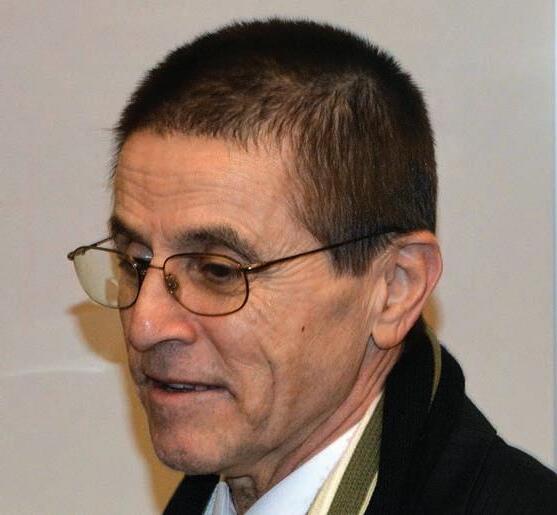
The Justice for Hassan Diab web page called it a “sham trial” that was politically motivated and unfairly conducted. The case has also exposed major flaws in Canada’s Extradition Act and led activists
to call for immediate reform.
The April trial was held in absentia, and since the ruling, advocates for Diab have sprung into action. Supporters of the Carleton University professor are demanding that the Canadian government refuse the extradition request from France.
Diab was arrested in 2008 by the Ottawa police and then extradited to France in 2014. The evidence against him was sparse, consisting only of analysis of what was believed to be Diab’s signature on a hotel registration card. Yet that was enough to convince a Canadian judge to extradite him to France.
He was held for over three years, much of it in solitary confinement, even though he was never put on trial. Finally, in 2018 the French court announced there was no case against Diab on which to base a trial and ordered his immediate and unconditional release.
At that time Diab returned to Canada and resumed a normal life with his family. And then French prosecutors gave in to political and social pressures and ordered a trial.
In a statement to the Washington Report, Roger Clark, a long-time advocate for Diab and former Amnesty International Canada director, noted that there was no jury and no appeal at Diab’s April 2023 trial; secret intelligence was again admitted at trial and hearsay testimony was allowed.
Moreover, supporters note that there was no accurate record of exactly what happened inside the court room during the trial—no transcript or audio or video recording. Two French investigative judges who studied the case for three years also went to the court and urged them not to convict, saying there was no basis for such a ruling and that Diab is innocent.
Late last year, the House of Commons voted in favor of reviewing Canada’s ex-
tradition laws and in early June 2023 the Standing Committee on Justice and Human Rights published its final report, “Reforming Canada’s Extradition System.”
“The report was unanimous, representing all-party support,” Clark, who is also a member of the Hassan Diab Support Committee, said. Specifically, the final recommendation in the report asks the Government of Canada to reform the Extradition Act as soon as possible and consider making changes to the extradition process that do not require legislation in the interim, to avoid further injustices in extradition proceedings.
“Prime Minster Trudeau promised publicly to ensure that what happened to Hassan Diab ‘never happens again.’ It is essential that Canada put an end to the injustices inflicted on Hassan Diab,” Clark concluded.
Meanwhile, over 130 members of the Canadian legal community have called on Trudeau and Justice Minister David Lametti to deny France’s request.
Dr. Diab’s supporters are encouraged to write or phone Prime Minister Trudeau’s office and reference Trudeau’s statement. Other actions that can be taken on Diab’s behalf are listed on the Justice for Hassan Diab website at <www.justiceforhassandiab.org>. ■

Discussing the recent biography by Shaul Magid, Meir Kahane: The Public Life and Political Thought of an American Jewish Radical, his colleague at the Department of Jewish Studies at Dartmouth, Susannah Heschel, notes that “One of the great scholars of Judaism in our day presents one of the most despicable characters to emerge in postwar Jewish life.”
Kahane, born in 1932, grew up as a member of a youth group affiliated with the Revisionist Zionists, founded by Zeev Jabotinsky in 1925. The Revisionists were the more militant wing of the Zionist movement; they insisted that its rivals in the Labor movement were too passive in their efforts to establish a Jewish state in all of the land of biblical Israel.
MEIR KAHANE’S MILITANT voice can be distinctly heard in Israel these days, notwithstanding his assassination more than three decades ago after being expelled from the Knesset as a racist. What was unacceptable in Israel in the 1980s, it seems, has now become part of the political mainstream, finding representation in the cabinet of Israel’s current far-right government.
Kahane, a native of Brooklyn, well known as the founder of the Jewish Defense League (JDL), immigrated to Israel in 1971, where he founded KACH, an ultranationalist and racist political party. It was eventually expelled from the Knesset, its racism found to be unacceptable in an earlier Israel.
Although Israel has always made clear distinctions between Jews and non-Jews, an example of how much Israel has moved to the far right can be seen in the fact that a disciple of Meir Kahane, Itamar Ben-Gvir, is now Israel’s National Security Minister. Until recently, Ben-Gvir had a portrait of Meir Kahane hanging on his living room wall.
In 1971, Kahane stood trial in New York after the JDL firebombed a Soviet attaché’s car. He was accused of violating the Federal Firearms Act of 1968, entered a guilty plea and was placed on five years federal probation. Two months later, he and his family moved to Israel.
Once in Israel, Kahane founded a political party, KACH (“Thus”). In 1984, KACH received nearly 26,000 votes, or 1.2 percent— enough for a seat in the Knesset. Then, in June 1984, Israel’s Central Elections Commission voted to ban KACH from participating in the election. It noted KACH’s call for the deportation of Arab and Druze citizens and Kahane’s characterization of Israel’s Declaration of Independence as a “schizophrenic document.” It is the first time in Israel’s history that a Jewish political faction was banned from an election.
KACH then appealed to the Supreme Court, which ruled that a political faction can be barred only if it poses a danger to the existence of Israel. The Court ruled that KACH could participate in the election. Its platform was essentially that Israeli citizenship was for Jews only and Arabs should be expelled from the country and the occupied territories. KACH and Kahane also demanded sovereignty over the Temple Mount. And they proposed an Israeli version of the Nazi Nuremburg laws, banning marriage and
American‐born rabbi Meir Kahane, founder of the Jewish Defense League, speaks in Rishon LeZion, near Tel Aviv, Israel on May 28, 1990, days before his assassination in New York City. He was known for his extreme views, such as expulsion of all Palestinians on the West Bank. PHOTO BY ESAIAS BAITEL/GAMMA-RAPHO VIA GETTY IMAGESsexual relations between Jews and nonJews.
In July 1988 Kahane was suspended from the Knesset for threatening an Arab member with a noose. A few months later, KACH was banned from competing in the elections that year. In 1985, the Knesset passed an amendment to the Basic Law, Israel’s not-quite constitution, barring “parties engaged in incitement to racism.” In October 1988, Kahane appealed to the Supreme Court. His appeal was rejected. The ban stands.
Followers of Kahane have had a major impact upon Israel. In 1994, Baruch Goldstein, a U.S.-born JDL and KACH member, gunned down 29 worshippers at the Ibrahimi Mosque in Hebron in the occupied West Bank. He became a hero to Israel’s right-wing, and prominent rabbis presided at his funeral.
Kahane’s racism, critics pointed out, was eerily similar to that promoted by Nazism, particularly when it came to sex and marriage between Jews and non-Jews. In May 1981, Kahane took a full page ad in the Israeli daily Maariv, entitled “She is a daughter of Israel, perhaps Your Sister, Your Daughter or Granddaughter.” He called for a law forbidding “the abomination of assimilation and communion with goyim” (in this case, Arabs). The ad called for a mandatory prison sentence for any Arab who had sexual relations with a Jewish girl or woman. It also called for a law restricting United Nations forces from engaging in any type of relations with the Jewish population. Kahane later declared that, if elected, he would strip all Israeli Arabs of their citizenship and work toward expelling any who refused to relinquish it. Kahane actually submitted such a bill—called “the three tolls bill”—to the Knesset in late 1985.
Faced with legislation similar to Nazi Germany, Israeli legislators took the drastic step of amending the country’s Basic Law to bar “racist parties and candidates,” known as Article 7a of the Basic Law. The amendment rendered KACH illegal and Kahane and his party were removed from the Knesset in late 1985.
In 1986, Kahane wrote an essay with the title “I Hate Racism.” According to Magid,
“Kahane claims his positions are wholly in line with Jewish law. A ‘religious Jew,’ he notes, believes that Jewish distinction is one thing only: divine election. There is nothing inherently distinct, certainly not unique, about the Jews other than the fact that God chose them. And divine election assumes, after him, a belief in a transcendent deity who communicated its will to the Jews at Sinai.”
He addresses Jews he describes as “non-religious,” naming a number of Reform rabbis and neoconservatives: “Let us pity them, those who call me racist, but who are the real Jewish racists, the ones who deep in their hearts—know that their ‘Jewishness,’ their ‘Zionism,’ their ‘cultural tradition,’ their insistence about being part of a separate group, is sterile and barren tribalism at best, noxious and obnoxious racism at worst.”
Kahane had contempt for the idea of democracy in Israel. Magid notes that “Kahane’s focus was on Zionism’s alleged veneration of democracy above the value of Jewish exclusivity, dominance and power. By promoting the equality of Jewish and non-Jewish citizens, he considered, Israeli democracy could undermine the survival of a true Jewish state. He believed in democracy everywhere but in Israel. Israel had a different calling…The core of Kahane’s Zionism was that Israel’s right to the land should be viewed as a divine mandate and conquering it a religious obligation.”
Following his assassination on Nov. 5, 1990 in New York City, Kahane received what seemed to be something of an official funeral in Israel. Despite his status as a “racist” expelled from the Knesset, his funeral was one of the largest in the country’s history, attended by almost 150,000 people. He was eulogized by many respected figures such as Rabbi Moshe Tendler of Yeshiva University, the Sephardic Chief Rabbi Mordechai Eliyahu and popular singer Shlomo Carlebach.
Israel has a history of glorifying right-wing terrorists like Kahane and Goldstein but until now, advocates of terrorism were not leading members of the government. The mindset of these right-wing extremists can be seen in the beliefs of Yigal Amir, the assassin of Prime Minister Yitzhak Rabin. In
their book Murder In The Name Of God: The Plot To Kill Yitzhak Rabin (1998), Michael Karpin and Ina Friedman describe the thinking of Amir: “There is only one guideline for fixing the borders of the land of Israel: the Divine Promise made to the Patriarch Abraham: ‘To your descendants, I give this land, from the River of Egypt, to the great river, the River Euphrates.” (Genesis 15:17) Today these borders embrace most of the Middle East, from Egypt to Iraq…Zealots read this passage as God’s will, and God’s will must be obeyed, whatever the cost. No mortal has the right to settle for borders any narrower than those. Thus negotiating a peace settlement with Israel’s neighbors is unthinkable.”
Few Americans understand the extreme views that characterize Israel’s now dominant right-wing. At the funeral of the Kahane-follower and Hebron killer Baruch Goldstein, Rabbi Yaacov Perrin stated that, “One million Arabs are not worth a Jewish fingernail.” Shmuel Hacohen, a teacher in a Jerusalem college, said: “Baruch Goldstein was the greatest Jew then alive, not in one way, but in every way. There are no innocent Arabs here.” Rabbi Yitzhak Ginsburgh, who wrote a chapter in a book in praise of Goldstein and what he did, declared: “every simple cell in a Jewish body entails divinity, is a part of God…Therefore, something is special about Jewish DNA— and if a Jew needs a liver can you take the liver of an innocent non-Jew passing by to save him? The Torah would probably permit that. Jewish life has an infinite value.” Rabbi Menachem Mendel Schneerson, the Lubavitcher Rebbe, who headed the Chabad movement, declared: “The body of a Jewish person is of a totally different quality from the body of (members) of all nations of the world…A non-Jew’s entire reality is only vanity…The entire creation of a nonJew exists only for the sake of the Jews.”
The pro-Israel Jewish community has yet to confront this level of intolerance. While it launches vigorous campaigns against the intolerance of others, it has largely ignored the bigotry which has come to the forefront in Israel.
State Department spokesman Ned Price in November 2022 used the word “abhorrent” to describe Israeli cabinet member Itamar Ben-Gvir’s praise for Meir
Kahane at a memorial event celebrating the legacy of a terrorist organization: “There is no other word for it—it is abhorrent. And we remain concerned about the legacy of Kahane Chai and the continued use of rhetoric among violent right-wing extremists.” Kahane Chai remains on the Treasury Department’s list of “specially designated global terrorists.” Israeli media outlets reported that Ben-Gvir lauded Kahane, saying on Nov. 10, 2022 that the late rabbi was about “love for Israel without compromise.”
On May 9, 2023, the European Union (EU) canceled an event in Israel at which Ben-Gvir planned to speak. Ben-Gvir had not been invited but volunteered to speak at the event celebrating Europe Day. Rather than permit him to speak, the EU canceled the event. EU officials asked him not to attend because, an embassy spokesman said, “Many of his previous statements and views contradict the values the EU stands for.” The embassy still held an event for the Israeli public. The Jewish Telegraphic Agency, on May 6, 2023, reported that “Nearly all ambassadors reput-
edly opted to cancel the event, save for those from Hungary and Poland with rightwing governments.”

Times have certainly changed. In the 1980s, Rabbi Kahane’s violent anti-Arab ideology was considered so repugnant that Israel banned him from parliament and the U.S. listed his party as a terrorist group. Today, his disciples march through the streets by the thousands, chanting “Death to Arabs” and assaulting any they come across.
To Arab citizens, who make up 20 percent of Israel’s population, the heirs of Kahane are a natural outgrowth of a discriminatory system that has now been normalized by mainstream leaders who largely embrace their views.
Bezalel Smotrich, the head of the Religious Zionism Party and now Israel’s finance minister, seemed undisturbed that a recording of him admitting to being a fascist became public: “I may be a far-right person, a homophobe, a racist, a fascist, but my word is my bond.”
Kahane, in his 1980 book They Must Go, said that Palestinians are “a cancer” in the

(Advertisement)
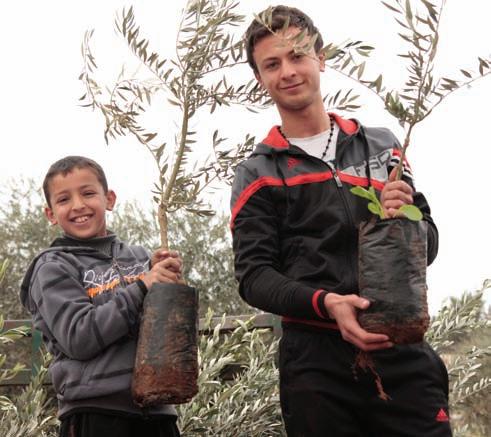
body of “the Jewish state” that must be removed by whatever means necessary. Kahane said that those who refuse to give Arabs equal rights “but tell him he is equal, think he is a fool. He is not.” His present day disciples like Ben-Gvir believe Israel is safer without Palestinian citizens but if Palestinians must stay, they can only be second or third class citizens.
Ironically, as the American Jewish community has launched a campaign against anti-Semitism, which many are attempting to redefine to include criticism of Israel and its treatment of Palestinians, and in which the Biden administration has joined, there is virtual silence about the emergence of Meir Kahane as a hero in contemporary Israel, particularly among the leading members of the right-wing government in power. The indefensible double standards of the organized Jewish community in the U.S. (with some honorable exceptions)— which demands the world combat antiSemitism as it defines the term even while it remains noticeably silent about the racists within Israeli Jewish society—could not be more obvious. ■






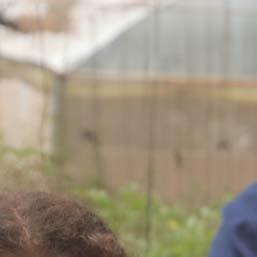

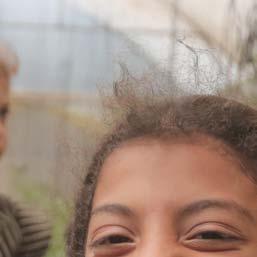

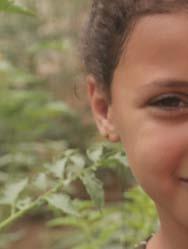
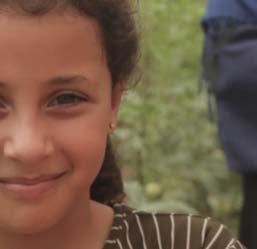

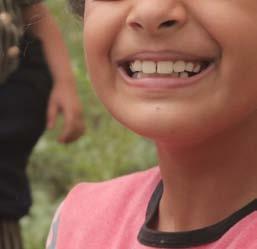







 By Rev. Dr. Don Wagner
By Rev. Dr. Don Wagner
FORTY-ONE
AGO, I was in Lebanon leading a group of 10 U.S. relief and development directors hoping to introduce them to the extensive needs of impoverished Lebanese and Palestinian refugees. On June 4, 1982, around 3:00 p.m., we were on our way to the crowded Fakhani district of Beirut when a fleet of Israeli warplanes (U.S.-made F-16s) roared in from the Mediterranean Sea, dropping bombs on the area we were about to visit. We took cover in a hotel basement. After the bombing subsided, I phoned our hosts, who proposed we meet them another day as they were busy searching for survivors from the bombing.
The next morning, we visited a Red Crescent hospital near the Sabra and Shatila Palestinian refugee camps. We were taken to a hospital wing that had been struck by the Israeli bombing the previous day. Suddenly air-raid sirens went off and we were rushed to the basement with the patients and hospital staff. Again, Israeli F-
Rev. Dr. Don Wagner is a retired Presbyterian clergyman, professor and human rights leader whose memoir, Glory to God in the Lowest: Journeys to an Unholy Land, shares experiences and insights from the past 40 years. The memoir is available at Middle East Books and More. This article was published by Mondoweiss on June 13, 2023.
16s were bombing the area. About 20 minutes later a series of ambulances arrived at the hospital’s emergency entrance and unloaded stretchers carrying teenage girls—some having lost limbs and others enduring severe burns. Hospital workers had just unloaded 19 body bags with girls who had died. As the families of the teenagers began to arrive, learning that their loved ones had been lost, the cries and wailing of the mothers and sisters pierced our hearts. Everyone in our group wept with them. Later, we learned that the U.N. staff had provided the Israeli military with the route of the Palestinian girls’ field trip, but the military commanders chose to ignore the information, and the three clearly marked U.N. school buses were targeted on the coastal road.
Sickened by this savagery, I felt we had to tell this story to a U.S. media outlet. We found the addresses and phone numbers of the CBS, ABC and CNN bureaus, but only NBC answered. Mike Mallory, the NBC bureau chief, agreed to interview us. He warned us that all of their recent dispatches were cut by Israeli censors in the New York studios. He conducted a 20-minute interview with our group, based on what we had witnessed. We learned later our interview was also rejected.
Our Lebanese and Palestinian hosts urged us to return quickly to the U.S. to tell what we had witnessed. We left Beirut on Tuesday, June 8, and when I landed in Paris, I called my staff, asking them to arrange media interviews the next day. One memorable interview was scheduled for Wednesday, June 9, with WMAQ, NBC-TV in Chicago. Tim Weigel, normally a sportscaster, was assigned to the interview, and he called to confirm the time of the interview. I was shocked when he said I would be interviewed in Grant Park while an Israeli general would be opposite me in the studio. When I questioned the arrangement which privileged the Israeli general, I was told that one of the NBC staff had confirmed this arrangement with the Israeli Consulate. It could not be changed.
Israeli General Shromi had been touring the U.S. to offer Israel’s perspective on the invasion of Lebanon or what the Israelis called “Peace for the Galilee.” He began the interview by stating that Israel was conducting a defensive war with “surgically precise bombings to root out PLO terrorist nests.” I challenged his narrative, claiming Israel started the unprovoked war on June 4. I noted that, according to the Red Cross, most of the casualties were civilians. I gave several examples of the casualties, including the hospital wing hit by Israel on June 4 and the tragic case of the school girls with 19 dead and several wounded on the morning of June 5. The general was clearly upset by my remarks and then he said something that astounded me: “This is our final solution to the Palestinian problem.” Having pursued extensive studies of the Nazi Holocaust, I communicated my shock: “I can’t believe what you just said, general. Isn’t this ‘final solution’ language what the Nazis used concerning your people, the Jews? You, sir, have just endorsed genocide, wiping out an entire people, innocent men, women and children. If this is Israel’s plan, it is a war crime.”
The general tried to soften his statement, but I suggested that a proper response would be for him to apologize to the viewing audience and to the Palestinian and
Lebanese people. When I returned to the office, Tim Weigel called and said the NBC switchboard lit up with more angry calls and threats than they had ever experienced. The news director said this was my last appearance on NBC-TV, which seemed a small price to pay for telling the truth.
In mid-September, I returned to Beirut with the director and the board president of Mercy Corps International. Over the summer we drafted three proposals for humanitarian relief and needed to confirm the projects with partner organizations, including the Middle East Council of Churches. Arriving in Cyprus on Saturday evening on Sept. 18, we caught a taxi to the port of Larnaca for the overnight ferry to Lebanon. Within 10 minutes, our driver turned his radio to the BBC news and we heard the first international broadcast of the massacre underway in Sabra and Shatila refugee camps. Our driver delivered the obvious news to us—we weren’t going anywhere that evening. He recommended a hotel and we spent the evening monitoring the tense situation in Beirut.
By the next evening, the ferries were running again, and we were able to arrive in Beirut on Monday morning, Sept. 20. After arriving at the office of the Middle East Council of Churches, our host, council director Gaby Habib urged us to drop our luggage and go directly to the refugee camps. We entered Shatila Camp, walking past a seven-story apartment building filled with Israeli military personnel who were monitoring the movements in the camps. The sun was bright, and temperatures were in the mid-90s with high humidity. It was a surreal experience as families were returning to their destroyed homes, and workers were pulling bodies and body parts from the rubble. A Red Crescent worker handed us handkerchiefs saturated in cheap cologne and told us to hold them over our noses as the stench of death would make us sick.
We decided to split up and meet again in an hour. I walked toward a small group watching Red Crescent and Red Cross workers pull dead bodies from the rubble.
Within a few minutes, I saw them remove what looked like the leg of a child and place it in a body bag. I assumed it was a mother who cried out to God when she learned it was her son. The elderly gentleman beside me translated her cries of grief and invited me to walk over to his destroyed building, which was his home and shop. Jamal began to share his story, noting he was out purchasing supplies for his shop on Thursday of the past week. When he returned, all the entrances to Sabra and Shatila camps had been sealed off by the Israeli army. He was able to stay with a relative two blocks away. Phone services in the camps were cut and all he could do was watch what transpired from his cousin’s balcony.
On Friday, Lebanese militias began to pour into the camps and Jamal and his relatives could hear the gunshots echoing in the camps. They assumed the worst. On Friday evening, the Israeli army put up flares enabling the militias to continue their savage operations into the evening. Tears streamed down his cheeks when Jamal said he had lost his wife and two daughters in the massacre as well as his home and small shop. Fortunately, his son had been visiting a cousin in another part of the city, and now the two of them would need to start over again, having lost everything. I thanked him and pressed $50 in his hand, wishing I could have given more.
Overcome by my emotional overload, I found a pile of dirt on which to sit and regain my composure. The woman beside me was sobbing and I asked her if she was OK. She was a journalist from Paris who had been covering the invasion all summer. The massacre had been too much for her to bear. She pointed to the mass grave we were sitting beside as workers carried body bags, dropping them at the bottom—the final resting place for the victims.
Then the journalist asked me the dreaded question. “Where are you from?”
I hesitated but finally admitted, “I’m from the U.S. and my government is among those responsible for this tragedy since we guaranteed the security of these people.”
She quickly added, “Yes, and France
also signed the security agreement.”
Just then a Muslim sheikh walked by and I excused myself, running to catch up with him. I asked if I could have a few words, and he agreed. He responded with perfect English, saying he was the sheikh at the mosque near Shatila Camp and had seen many of the massacre victims at Friday prayers. I asked for his estimate of how many died in this massacre. Shaking his head, he said, “We will never know. On Friday evening, I saw militias line up men and boys against a wall and shoot them to death. Their bodies were loaded onto trucks. We will never know where they were buried, but I would estimate between 23,000 were murdered here.”
Then he asked the dreaded question. “Where are you from, my friend?”
I was about to say Canada but admitted, “I’m from the United States, and the blood of these poor people is on our hands.”
His response surprised me. “Yes, the blood is on your hands, my friend. But I thank God that you are here. All we ask is that you go home and tell of what you have seen. Just tell the truth of what you have seen—that’s all we ask.”
I was touched by his gracious spirit and readily responded. “Yes, I will return to the United States and tell this story.” I’ve spent the better part of the last 40 years telling the story of the Palestinian people, but it will never be enough.
There is one dimension of what I experienced in Beirut in 1982 that I failed to tell truthfully until I sat down last year to write my memoir, Glory to God in the Lowest: Journeys to an Unholy Land. I failed to realize and articulate what now seems to be the obvious lesson from General Shromi and the brutal Sabra and Shatila massacre. That lesson is the central narrative of the Zionist movement from its inception: the replacement of the Palestinians with Jewish settlers. Achieving this goal necessitates genocide. Today this goal is within reach with the present Israeli government.
Today we see members of Binyamin Netanyahu’s cabinet calling for “wiping out” entire Palestinian communities (Huwara) and militant settlers chanting, “We will replace you.” Meanwhile, Western governments, led by the United States, refuse to hold Israel accountable for the murder of U.S. citizens (the 34 USS Liberty crewmen, the journalist Shireen Abu Akleh and the human rights activist Rachel Corrie are some of the many examples) let alone the daily murder of Palestinians by the army and militant settlers. Gaza is bombed routinely with no accountability for those perpetrating the crimes. The Nakba of 1948 continues daily in multiple forms, and the conditions are ripe for another massive Nakba, echoing General Shromi’s chilling words: “This is our final solution to the Palestinian problem.”
Today much has changed in relation to the Palestine question, while some challenges remain the same. More of us are ready to criticize Zionism and utilize the analysis of settler colonialism. More of us are convinced that Israel represents a vicious apartheid system “from the river to the sea.” Some of us recognize the genocidal dimensions of the Zionist project now in power in Israel and no longer feel obliged to normalize or soften
(Advertisement)
our critique. We still have barely a hearing in the U.S. Congress, the majority of the Democratic Party, the president, or the mainstream media, but there are modest signs that change is underway.

A younger generation of Jews, Christians and Muslims is rising up in Palestine and globally, applying the above analysis and organizing a global grassroots movement grounded in justice. They do not have the patience and timidity of my generation. They have learned from our failures and will not make the same mistakes in abandoning the liberation for the Palestinian people. They do not support an exclusivist Jewish state in any part of historic Palestine. Nor will they be intimidated by false accusations of antiSemitism, bullying, loss of employment and even death threats. Some are religious, and many are secular, but this matters little. They are committed to uniting across all lines of division and will not allow the divisive tactics of racism to thwart their quest for unity.
I know this generation understands both the urgency and utter crisis the sheikh in Sabra and Shatila expressed in the wake of the massacre: “Just tell the truth.” The mask is off. The impotence of the United Nations regarding Palestine has been exposed clearly by legal scholars and historians. The future will not be easy, nor will Palestine be liberated soon. The future is not with top-down political and military solutions. The future is with a massive grassroots global movement for justice in Palestine. A new day has already dawned, and the Zionist leadership knows they are losing credibility worldwide. Everyone is needed to join the global grassroots alternative to the Zionist settler colonial project that will continue the daily genocide of Palestinians.
Today the momentum for injustice seems to be with Israel’s extremists, now controlling the government, and it will continue as long as the U.S. finances the extreme Zionist project. The question for all of us is this: will the global movement for justice in Palestine have sufficient time to transform Palestine and Israel into a land of justice, respect for the rule of law, full equality and security for every citizen? ■

Like many Americans I jumped at the opportunity to get a dog as soon as I knew I could work from home. It was the greatest year for shelter pups, since across the nation shelters were receiving an overwhelming amount of applications. After weeks of applying, I finally was able to take home the most perfect abandoned hound puppy from West Virginia. My dog has brought so much happiness into my life and everyone’s lives who gets to meet him. I cannot imagine my life without him or the thought of that innocent lovable pup never being rescued and given a chance at life.
2020 was not the year of the Lebanese people.
On Aug. 4, 2020, a large amount of ammonium nitrate stored at the Port of Beirut exploded causing at least 218 deaths, 7,000 injuries, and $15 billion in property damage, and left an estimated 300,000 people homeless. Even before the explosion, an economic meltdown plunged most Lebanese into poverty, especially if they’re paid in pounds. Salaries are only worth a fraction of their value so many teachers, healthcare workers, police and military personnel are leaving the country in search of liveable salaries.
Growing up as a first generation Lebanese American, I spent most of my summers not going to summer camp like my friends,
By Jasmine Jaberbut instead going to Lebanon. There is nothing like a Lebanese summer. The beautiful Mediterranean Sea, the rolling mountains all around you, the most delicious food, the wonderful hospitality and sense of community surround you. It doesn't matter that the electricity cuts in and out, no one has AC, your American phone won’t work there, and the wifi is terrible in most places. Life in Lebanon has not been easy, but the Lebanese people always made do with what they had and lived their lives to the fullest.
I feel like I owe it to Lebanon to help in any way that I am able. After the port explosion I tried to raise money to help people who had lost their homes in the blast, and I went to revolution protests outside the Lebanese Embassy. It was at this time that I learned about Dana Aboul Hosn, who grew up in Tucson, AZ and in 2009 moved to Lebanon to work as a gynecologist at al-Hayat Hospital in Beirut.
Dr. Dana is passionate about helping dogs, so when she noticed stray and starving dogs in the streets she brought them home. When a dog was hit by a car she obtained medical attention for them. In 2012, she opened her first animal shelter, Angels With Paws, for 30 dogs near her home. People began hearing about her so she soon had 150 dogs. Someone threw poison through the fence at night and killed 50 of her dogs. She moved the Angels With Paws shelter to El Qalaa, between Beirut and Tripoli, and cur-
(Continued on page 73)
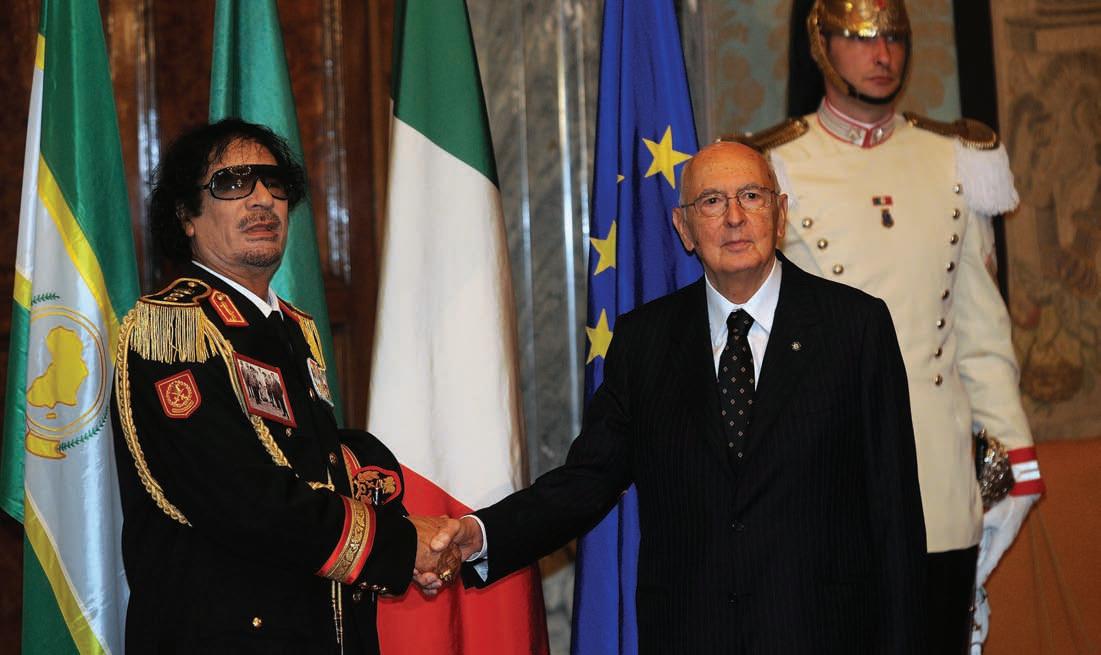 By Mustafa Fetouri
By Mustafa Fetouri
IN 2008
ITALY signed a treaty with Libya whereby it agreed to pay reparations to that country for its decades of ruthless colonial misdeeds during the first half of the 20th century. The treaty—the first of its kind between a colonial power and a former colony—offers a model for other countries to follow.
In 1980 the Libyan government spent more than $30 million on an epic film, “Lion of the Desert,” which depicted Libyan resistance to the Italian army that invaded Libya in 1911 and remained there until 1943. Directed by Moustapha Akkad, and starring top Holly-

Mustafa Fetouri is a Libyan academic and freelance journalist. He received the EU’s Freedom of the Press prize. He has written exten‐sively for various media outlets on Libyan and MENA issues. He has published three books in Arabic. His email is mustafafetouri@hot‐mail.com and Twitter: @MFetouri.
wood names including Anthony Quinn, Oliver Reed and Irene Papas, the film shed light on the crimes of the Italian occupation by telling the story of one of the Libyan resistance heroes, Omar Al-Mukhtar, a septuagenarian who suffered from arthritis but who led the resistance against Italy (which had one of the best armies in the world at the time) for more than 20 years.
Under the command of Rodolfo Graziani, the colonial governor of Libya who was deservedly nicknamed the Butcher of Fezzan, the Italian army used vicious tactics against the poor, mostly nomadic, Libyans. His army scored many firsts: the first to use aerial bombardment, the first to use poisonous gas, and the first to use collective punishment of noncombatants, sending more than 100,000 Libyans into concentration camps, years before such camps were used in Europe.
In September 1931, Al-Mukhtar was hanged in front of hundreds in Suluq concentration camp, southeast of Benghazi, as a lesson to
other would-be rebels. By 1943, the Italian army had slaughtered an estimated one million Libyans.
“Lion of the Desert” was released in 1981 in Europe, however the Italian prime minister at the time, Giulio Andreotti, banned it because he said, it “damaged the honor of the [Italian] army.” Italians only saw it when Sky TV, a private TV channel, aired it on the eve of the first visit by former Libyan leader Muammar Qaddafi to Italy. He arrived in Rome, accompanied by Al-Mukhtar’s son, on June 10, 2009, a few months after signing with Prime Minister Silvio Berlusconi the treaty that was intended to bring to a close that violent chapter in Italy-Libya relations. A strategic under-the-radar diplomacy and the film prepared public opinion for better relations.
Signed in Benghazi, in eastern Libya, on August 30, 2008, the treaty is considered the first ever in the world between a former colonial power and its former colony. Many believe it could be a model for former colonies to go after their former colonialists. All major former colonial powers, like United Kingdom today, reject any idea of apology let alone paying reparations to their former colonies in Africa and Asia and other parts of the world.
Arriving in Benghazi to sign the Treaty of Friendship, Partnership and Cooperation on Aug. 30, 2008, Prime Minister Berlusconi brought with him the headless statue of Venus of Cyrene, which Italy had stolen from Libya in 1913, and handed it over to Colonel Qaddafi. On stage he bowed to kiss the hand of Al-Mukhtar’s son. He then addressed the assembled crowd, “In the name of the Italian people, as head of the government, I feel it my duty to apologize and express my sorrow for what happened many years ago and left a scar on many of your families.”
The treaty starts with a long preamble followed by 23 articles setting out how the two sides agreed to lay to rest the colonial past. The first paragraph says both countries agree to cooperate to uncover the fate of the Libyan citizens who were forcibly exiled from
Libya during the colonial era. Both Rome and Tripoli are resolved to “close the file of the painful past that Italy had already” apologized for in the Joint Declaration of 1998.
The reference here is to the estimated 4,000 Libyan women, men, elderly and children exiled to Italian prisons in the islands of Sicily, Lampedusa and elsewhere between 1912 and 1930. Most of them perished in filthy prison cells. During Qaddafi’s rule Libya honored their memory annually on October 7.
The treaty’s clause 1 of article 8 says that Italy is to pay $5 billion to Libya over a 20year period, to be used to finance infrastructure, educational, agricultural, cultural and medical projects in Libya, including a 2,000 km (1,242 mile) road linking Libya from east to west, 200 housing units throughout the country and a railroad linking some cities to be agreed about later.
Article 10 of the deal commits Italy to return all artefacts and historical documents stolen from Libya during the occupation. Italy will also fund scholarships for Libyan postgraduate students wishing to study in Italian universities and establish the Libyan Academy in Rome dedicated to the study of the colonial era, an acknowledgment that many facts of that dark period remain hidden. Clause 4 obliges Italy to resume paying retirement pensions to Libyans forced to join the fascist Italian army during the occupation to fight against their own country.
Article 20, clause 3 says “Italy will support” Libya’s claims against other countries to comply them to “compensate” Libyans affected by land mines and to rehabilitate lands from landmines which were heavily used by the Allied forces in World War II when Libya was occupied by the allies after Italy’s defeat. Hundreds of Libyans have, over the years, been injured by mines while thousands of hectares of land remain unused.
In 2011 Italy reluctantly joined NATO’s military intervention in Libya that toppled the Qaddafi government and sent the country into chaos. The late Berlusconi was against the intervention but Italy’s parliament voted to join it. After the war in Libya
many Italian officials called for the suspension of the treaty but no official position on the matter has been taken so far. All work implementing the treaty has been halted because of the instability in the country.
The two countries remain close economic partners particularly in energy. In 2022 Italy imported nearly $7 billion worth of oil mostly through its energy giant ENI, which has been part of the Libyan oil industry since 1959 when oil was first discovered. In 2023 ENI and Libya’s National Oil Corporation have further expanded their partnership in gas production. Italy imports gas via the Green Stream pipeline, under the Mediterranean, linking the two countries. However implementing the terms of the treaty, related to infrastructure, can only resume once Libya becomes safe and stable again—an unlikely prospect in the near future given the continued unstable situation in Libya.
The question now is: as the Libyan-Italian treaty enters its 15th year, which other countries in Africa are likely to follow Libya’s model? Algeria, for example, has repeatedly raised the matter with its colonial master, France, but so far failed to get anything. In January this year French President, Emmanuel Macron, said he will not “ask forgiveness” from Algeria. The United Kingdom, another major colonial power has rejected even the idea of debating its colonial past. British Prime Minister Rishi Sunak whose country of origin, India, was occupied by the British for 100 years, rejected any idea of apology let alone paying reparations to slaves or victims of colonial era crimes.
In an historical irony and clear case of blackmail, tiny Haiti was forced to pay reparations to France, its former colonial power for 300 years. However, as the global anticolonialism movement gains more ground more colonial powers are likely to confront the chapters in their dark past. In addition there are loud calls for the U.S. to compensate its Black Americans for slavery and for Canada to compensate its Indigenous peoples. ■
DESPITE HIGH HOPES among Türkiye’s opposition supporters that May 2023 would finally mark a sea change in their country’s governance, one man was very much still standing when the dust settled: President Recep Tayyip Erdogan.
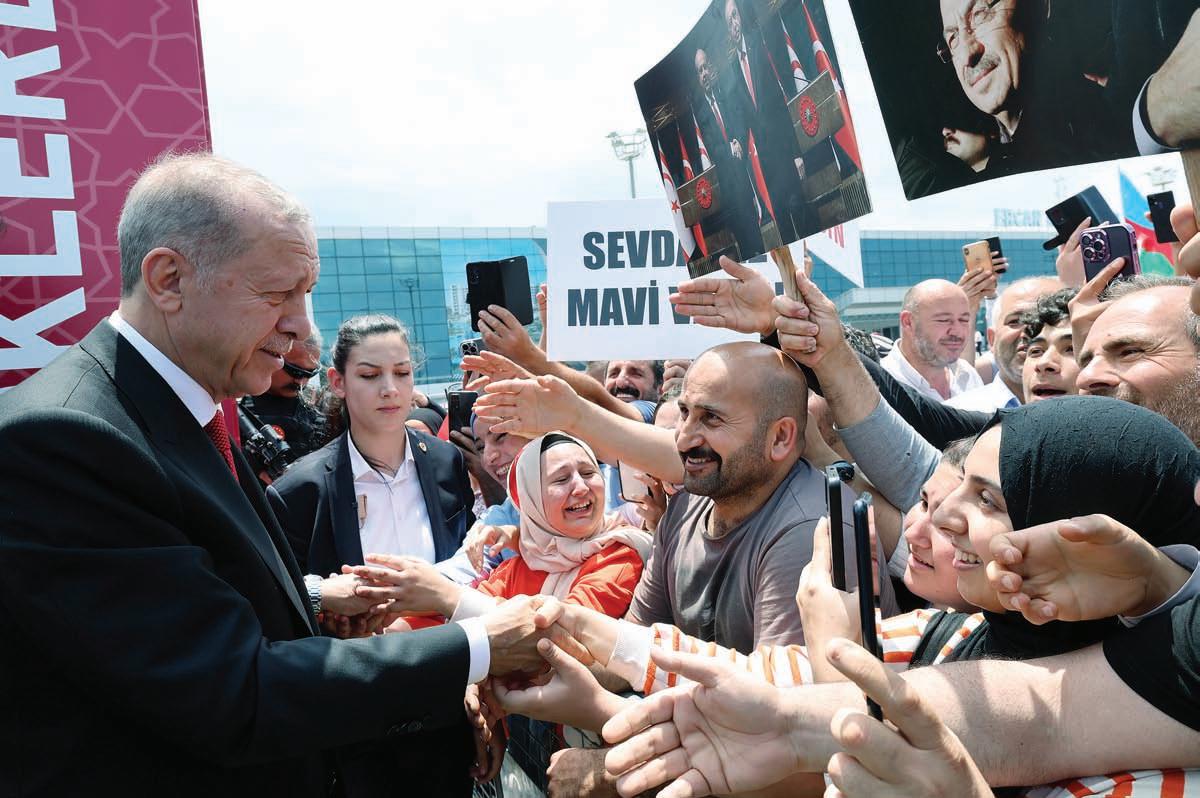
After a second round of voting, the 69-year-old Turkish leader was re-elected on May 28 for a remarkable third term. At the same time, his Justice and Development Party (AKP)-dominated coalition, the People’s Alliance, also returned to hold the majority of seats in parliament.
It was an extraordinary victory, full of political symbolism, as 2023 marks the centennial of the establishment of the Turkish Republic. May 29—the day after Erdogan had won the run-off presidential
ballot—is also the anniversary of the fall of Constantinople, when the Ottoman Empire (a constant reference point for Erdogan) finally conquered what is now Istanbul.
Indeed, as if to demonstrate victory in the country’s culture war as much as in its election, Erdogan and his supporters gathered that day to celebrate their presidential victory in the central symbol of that conquest—the former Cathedral of Hagia Sophia. Turned into a mosque by the victorious Ottomans, centuries later, the secular Turkish Republic’s founder, Mustafa Kemal Ataturk, turned it into a museum. In 2020, Erdogan turned it back into a mosque, despite a chorus of Western objections.
Indeed, a theme running throughout Erdogan’s campaign was that under his leadership, Türkiye has grown so much stronger— powerful enough, indeed, to defy the once-mighty West.
“This is at the core of Erdogan’s message,” Selim Koru, from
People greet Turkish President Recep Tayyip Erdogan as he arrives in Nicosia, Northern Cyprus on June 12, 2023, for his first trip abroad after his re‐election. PHOTO BY TUR PRESIDENCY / MURAT CETINMUHURDARthe Economic Policy Research Foundation of Türkiye (TEPAV), told the Washington Report, “a reactionary movement against Western hegemony —of Türkiye becoming its own axis and not part of a broader Western alliance, but independent from it. Everything, in this view, can be reduced to that.”
The People’s Alliance campaign featured a welter of attacks on perceived Western conspiracies, including alleged attempts by Western media to skew the election, and on LGBTQ+ and women’s rights, repeatedly characterized as Western intrusions and threats to the Turkish family.
“They’ve done this again and again in the past,” Koru adds, “but this time it was much more forceful.”
This message was particularly powerful in Türkiye’s conservative rural heartlands, even in those hit badly by February’s devastating earthquakes. There too—as elsewhere—Erdogan’s victory also had much to do with hard dollars and cents.
“Analysis predicting an opposition win before the election had one very important shortcoming,” Toygar Sinan Baykan, Assistant Professor of Politics at Kirklareli University, told the Washington Report. “It missed the widespread relations of patronage and economic dependency that exist within Turkish society.”
Indeed, after more than 20 years of being in office at both the national and, in many cases, local level, the AKP and its allies have established a wide-ranging network of jobs, money and power.
This is reflected in the comparative sizes of the political parties. In January 2023, the AKP had some 11.2 million members— more than all the other Turkish political parties combined. The largest opposition party, the left-of-center Republican People’s Party (CHP) had 1.36 million members.
Construction has been a key piece of the power nexus, with government contracts to AKP-friendly contractors reciprocated with jobs for AKP supporters.
Public sector jobs, too, have been increasingly dominated by the ruling party
and its allies, including the military and police. Centralization of power in Ankara and at the Presidential Palace in particular, has also given Erdogan and his party much more direct control over regional and local projects and programs.
At the same time, with per capita incomes falling across the country since 2013—and rampant inflation destroying many people’s savings and purchasing power—any economic aid on offer is widely welcomed.
Thus, a few days before the first round of voting on May 12, Erdogan said he would raise the salaries of some 700,000 public sector workers by 45 percent.
At the same time, a major effort was undertaken by the central bank—which has been criticized for its lack of independence in recent years—to prop up the rapidly devaluing Turkish currency, the lira, and thus bring down imported inflation. While price hikes had been running around 80 percent at the end of 2022, they fell to a mere 43 percent in April as the central bank bought lira and emptied its hard currency coffers.
Erdogan also promised a colossal rebuilding program for the south-eastern provinces hit by February’s earthquakes. The government housing authority has promised some 300,000 new homes will be built within a year in the devastated regions. Few doubt what it will take to get your name up to the top of the list for a new apartment.
And to top it off, Erdogan himself was then filmed before the second round ballot handing out YTL 200 notes (about $8) to supporters at the polling stations.
“Large parts of the population involved in the ‘survival networks’ of the AKP simply couldn’t afford to change their votes,” Baykan stated.
The opposition parties are now undertaking a major soul searching—and internal struggle—as they try to come to grips with another failure.
That defeat came on a very un-level playing field—Erdogan and his allies control
almost all domestic media, while repressive laws have greatly curtailed public criticism. Yet there were clearly major problems within the opposition camp, too.
The opposition Nation Alliance contained six parties, which ran from the CHP to the right-wing nationalist Iyi Party (meaning “Good”) and the Islamist Felicity Party.
While these groups were united behind a “not Erdogan” message, “it was then very difficult for them to bring out a positive vision of what they were for,” said Koru.
Disputes broke out over the nomination of a presidential candidate, with CHP leader Kemal Kilicdaroglu eventually put forward over the initial objections of Iyi Party Leader Meral Aksener.
Iyi Party members also had issues with any electoral deal being done with the main ethnic Kurdish party—a natural source of opposition votes.
In the first round of presidential voting, perhaps unsurprisingly, the Iyi Party failed to deliver right-wing votes, prompting Kilicdaroglu himself to lurch to the right for the second round.
He took a hard line against the presence of some four million Syrian refugees in the country, a major political issue largely ignored by the opposition during the first round. He also supported the removal from office of certain elected ethnic Kurdish mayors who have been accused of links to armed Kurdish groups.
While the rightward shift lost him the active support of some on the left—who were already losing motivation after failing to win the first round—the latter move lost him many ethnic Kurds.
The next electoral test will be nationwide local elections in a year. For those, “The opposition needs a strategy now,” Can Selcuki, managing director of Istanbul Economics Research, told the Washington Report. “There’s going to be a lot of reorganizing, but they have to be ready.”
Meanwhile, with a three-term limit to presidential elections likely to rule Erdogan out of any future race, he will probably never be defeated by the electorate—a major achievement in itself for a remarkable Turkish leader. ■
Anyone visiting Paris from now until November 19 should include the excellent exhibition “Ce Que La Palestine Apporte Au Monde” (“What Palestine Brings the World”) at the Institut Du Monde Arabe.
The exhibition provides a look at Palestine, its people, art and culture. The exhibit challenges viewers to consider the Palestinian experience by exposing artists’ personal histories and experiences working both in Palestine and in the diaspora.
The exhibition is divided into several thematic sections, beginning with artwork and moving on to photography.
Among the works are a series of contemporary photographs titled “Un métro à Gaza” by Gazan photographer Mohamed Abusal, who envisions the ubiquitous Parisian “M” Metro signs superimposed on images of Gaza and Jerusalem. His tongue-in-cheek concept suggests that since besieged Gazans are great at tunneling, one day it could be possible to connect Palestine and Paris via a transit system.

Another series, “GH0809” (“Gaza House 2008-2009”) by Taysir Batniji, depicts 20 Gazan properties destroyed by Israel as if they were being listed by a Parisian real estate agent. Each listing conveys information such as how many people inhabited the building. One can only speculate how many of those inhabitants were killed in the building’s destruction.
In one room, a literary space is dedicated solely to Mahmoud Darwish, where there is a moving multimedia experience inspired by his poem “In Praise of the High Shadow.” The poem describes the 1982 Sabra and Shatila massacre in Lebanon, when several thousand unarmed defenseless people were killed by Israeli-trained Lebanese Phalange forces.
Another room honors French activist/ writer Jean Genet. While in Lebanon with his friend Leila Shahid in 1982, the Sabra and Shatila massacre occurred. Genet was one of the first outsiders to enter the area and witness first-hand the horrific scene.
His experience resulted in a powerful funeral eulogy and testimony contained in his “Quatre Heures à Chatila” (“Four
in Shatila”).
Only two weeks before his death in 1986, Genet gave the two suitcases he brought to Lebanon to his attorney, Roland Dumas, who discovered a treasure trove of personal effects on which Genet had scribbled notes and comments for his book Prisoner of Love, which was published one month after his death. The museum duly notes that it is “the most important book ever written by a Western artist about the Palestinian struggle.”
Phil PasquiniThe American-Arab Anti-Discrimination Committee (ADC) held its national convention at the Crystal Gateway Marriott in Arlington, VA on June 16-18. The annual event included discussions about Palestine, civil rights and U.S. foreign policy, as well as cultural celebrations, a souq and multiple award ceremonies.
The conference began with a June 16 evening cultural celebration emceed by comedian Amer Zahr.
The June 17 Civil Rights Luncheon was keynoted by attorney Ben Crump, who received the Courage of Justice Award. Known for his staunch advocacy for civil rights and legal defense of Black victims of racism, Crump said his grandmother told him to always “speak truth to power,” even when it’s uncomfortable and inconvenient. “When we embrace the struggle, when we celebrate the struggle for truth, what we’re really doing is giving all of our children an equal opportunity at the American promise of life, liberty and the pursuit of happiness,” he said. “The only way we will win this war against the enemies of equality is to make sure that our children are more intelligent than those who seek to oppress them,” he added.
The evening gala on June 17 began with a moving homage to ADC founder Sen. James Abourezk (D-SD), who died in February. His daughter, Alya Abourezk, said it was an honor to be speaking in the Washington, DC metro area just two days after her father’s signature piece of legislation, the 1978 Indian Child Welfare Act, was upheld by the Supreme Court. “My dad had this beautiful gift of encouraging people to stand up for what’s right and empowering people not only to become advocates, but become leaders for change and for good,” she said. ADC has launched the
James Abourezk Public Affairs Scholarship in his honor.
The conference concluded with an emotional Palestine luncheon on June 18. The Distinguished Public Health Service Award was given to the Mariam Foundation, which provides cancer care to Palestinian children. Mohammad Hamed, who founded the non-profit after his sister Mariam died of leukemia, accepted the award. A video showing the multi-faceted and essential work of the organization had most attendees in tears. Hamed, who said he “doesn’t believe in coincidences,” concluded his remarks by revealing that he was accepting the award on Mariam’s birthday. (See the November/December 2021 Washington Report to learn more about the Mariam Foundation.)
Emotions in the ballroom remained high as Said Arikat was given the Shireen Abu Akleh Courage in Journalism Award. Preceding his acceptance, a powerful video recalling Abu Akleh’s work and horrific assassination by an Israeli army sniper was played. The video again left most attendees in tears, with many simply unable to watch as footage of her killing was replayed.
Arikat, known for challenging State Department spokespersons at daily press briefings, said his job is difficult but necessary. As a member of a group chat of Pales-
tinian journalists, he noted that every morning he wakes up to devastating news from the ground: children killed, land stolen, journalists targeted, homes raided and so on. As Israel’s largest supporter, officials in Washington must be constantly challenged as to the daily injustices faced by Palestinians, Arikat said.
Other awards given out throughout the weekend included: the Lifetime Achievement Award to Dr. Mohammad Ghosheh, the Hala Maksoud Award to Dean Reem Bahdi, the Excellence in Legal Advocacy Award to Palestine Legal, the Exemplary

Achievement Award to the State of Qatar and the Distinguished Public Service Award to Virginia State Delegate Sam Rasoul (D). Dale
Sprusansky
“Culture moves before politics does,” Jasmine Hawamdeh, manager of communications at the American-Arab Anti-Discrimination Committee (ADC), said during the “Remixing the Script: Telling the Arab American Story” panel on June 17. The discussion, held as part of ADC’s convention, evaluated how Arab Americans are represented in the entertainment industry.
For the panelists, “remixing the script” is about countering stereotypes presented in the media, while also having the space to create freely from an Arab or Muslim perspective. From the outset, Arabs and Muslims are facing decades of negative stereotypes in the media, filmmaker Ziad Foty explained. “What’s very important for us as filmmakers is to first off, counter hegemonic representations,” he said.
Serena Rasoul, the founder of MA Casting, added that creators need to ask themselves: “Who put these stereotypes onto us? And then are we perpetuating those because we think that’s what [audiences] want to see?” To overcome simplistic and stereotypical framings of minority communities, artists need to emphasize the individual human experience and recognize
that no community is a monolith, she said.
“No one’s history is the same as the other and everybody brings valuable perspectives,” said Zahra Wakilzada, an AfghanAmerican poet. Fleeing Afghanistan and moving to the U.S. in 2015, she noted the complexity of her American identity, and hopes to see similarly complex characters reflected in the media.
Rasoul emphasized looking beyond casting to representation in all aspects of the industry, especially the business side. “If you want to see systemic change, we have to also work within these systems,” she said. “They make the decisions about where the money goes, where they invest.”
While there have been breakaway successes like the show “Ramy,” there is still a lack of female representation in the industry. Even when women are included, they are often misrepresented, Rasoul explained. Her organization, MA Casting, alongside the Geena Davis Institute on Gender in Media, found that 76 percent of the time Muslim women are depicted on screen it is in the context of a man, as a love interest or as a mother, and in a domestic setting. “The next phase is having women tell our own stories from our own perspectives,” Rasoul said.
“denying the Jewish people their right to self-determination, e.g., by claiming that the existence of a state of Israel is a racist endeavor.”
Jenny JacobyThe International Holocaust Remembrance Alliance (IHRA) definition of anti-Semitism has become a direct legal threat to Palestinian activism, as governments and other institutions have used the definition to intimidate and penalize critics of Israel. The impact of the IHRA definition on freedom of speech was discussed on June 17 at the American-Arab Anti-Discrimination Committee’s (ADC) convention.
The IHRA states that “anti-Semitism is a certain perception of Jews, which may be expressed as hatred toward Jews. Rhetorical and physical manifestations of antiSemitism are directed toward Jewish or non-Jewish individuals and/or their property, toward Jewish community institutions and religious facilities.” The definition also includes several examples. Political analyst Omar Baddar noted that one example is,

“We’re basically looking at a definition in which Palestinians speaking honestly about their history becomes an example of antiSemitism,” he said. Baddar pointed out that even the creator of the definition, Kenneth Stern, is against its current implementation, as he intended for it to be used for data collection purposes, not as a legal definition.
In recent years, the definition has spread through federal, state and municipal levels of government, explained Dima Khalidi, the founder and director of Palestine Legal. In the U.S. it has been adopted by the State Department as a working definition and was codified when former President Donald Trump signed an Executive Order that “requires executive agencies to consider IHRA in discrimination complaints.” Its implementation can lead to “enhanced sentencing” and is “being pushed as a tool to identify so-called indicators of extremism,” Khalidi noted.
The academic field may be the most at risk for targeted use of this definition. The IHRA is being pushed at universities and within student governments across the country, Khalidi said. Two clients of the ADC were recently accused of anti-Semitism and were featured on the panel.
Dr. Lara Sheehi, an assistant professor of clinical psychology at George Washington University (GW), was accused of singling out Jewish students in her class and demonizing Israel. The pro-Israel group StandWithUs subsequently filed a complaint with the Department of Education against GW, citing the IHRA. This “mobilized fear” within GW, Sheehi noted.
The matter was met with a third party investigation that proved Sheehi’s innocence. However, through the process Sheehi received death, rape and forced deportation threats. “The idea is to make an example of somebody. It’s to say, ‘if you dare speak about Palestine, then we will come down hard on you,’” she said of the threats.
Huwaida Arraf, the co-founder of the International Solidarity Movement, was recently asked to speak about diversity at a Michigan high school. She discussed her life and work with Palestinian human rights, and remembered saying “Palestinians are oppressed” to the students. Later that day the principal was forced to send out an email apologizing for those offended by her presentation. The Jewish Community Relations Council (JCRC) published a statement condemning the school and district for allowing her “incendiary rhetoric” and later pushed for the resignation of both the principal and superintendent, both of whom have since retired or resigned their posts.
“This is not acceptable. This is not an isolated incident. This happens around the country and it’s about silencing the Palestinian narrative,” Arraf said. “It’s not because I said anything anti-Semitic, it’s because I am a Palestinian and I spoke about my experience, that is what made them uncomfortable.”
Sheehi noted that this definition has required Palestinian activists and supporters to often begin their statements by stating their opposition to anti-Semitism. “The way that the IHRA positions itself is, that by precondition, as an Arab and especially as those who fight for Palestinian liberation, we…[have to] prove we are not anti-Semitic before we even say anything,” she said.
Jenny JacobyOn a perfect spring day during Memorial Day weekend, about 300 Arab Americans flocked to Lake Accotink Park in Springfield, VA to attend Growing Palestine’s annual heritage picnic. Once again, oud player Muath Idriss provided the music that got picnickers to their feet; he was assisted in that mission by Malikat al-Dabke, a female dance troupe whose graceful moves reminded the crowd that dabke is in their bloodstream.
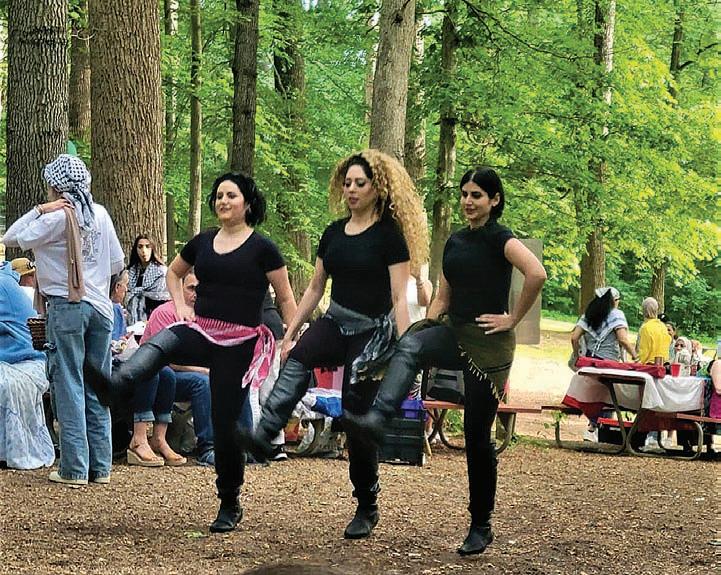
Like last year, attendees brought their own picnic lunches while Growing Palestine provided the coffee, watermelon and malateet cookies for dessert. (But breaking from traditional picnic lunches, participants could enjoy hot knafeh, courtesy of Jenin Pastry, which did a brisk business.)
Volunteers from the Palestinian Youth Movement provided essential assistance in setting up (and later dismantling) the site, circulating with trays of dessert and coffee, sitting at information tables and providing the face painting and henna artistry that remained in demand for the four-hour picnic.
The annual picnic has become a muchanticipated event on the community calendar. Organizers were gratified to see that not only is the attendance growing from year to year, but also the attendees are diverse in age. For an organization that believes in the importance of honoring the
Palestinian agrarian heritage, a picnic is a great way to make that belief visible: it brings the community together in the act of sharing food, listening to familiar tunes and celebrating the earth’s bounty through dance. To drive the message home, information flyers on each picnic table identified features of the traditional Palestinian approach to farming that make it sustainable and healthy—good for the land and good for the body.
Tunisia is on the path to overtake Libya as the top departure point for migrants attempting to reach Europe by sea. “The number of migrants attempting to reach Europe through Tunisia has skyrocketed in recent months,” noted Sharan Grewal, a nonresident fellow at the Brookings Institution, while speaking on a June 5 webinar hosted by Refugees International and the Center for Middle East Policy at Brookings.
“To put it in perspective, in March of 2021 and March of 2022 about 800 migrants were stopped at sea attempting to reach Europe from Tunisia, but in March of this year almost 8,000 migrants were stopped.”
The North African nation is riddled with
internal struggles, including a drought, democratic backsliding, economic collapse and an increase of discriminatory rhetoric and violence directed toward Black individuals. These challenges have prompted several thousand Tunisians to abandon the country in hopes of a more fruitful life elsewhere. Simultaneously, EU measures to dispel sea-based migration routes through Libya have turned refugees and migrants from other countries toward Tunisia as an alternative launching point to reach Europe.
The new wave of racially motivated attacks targeting Black Tunisians and subSaharan migrants began on Feb. 21, 2023, after President Kais Saied told his National Security Council that the waves of immigration through Tunisia were an attempt to make the country “purely African” and strip it of its Arab and Islamic character. Black Tunisians make up approximately a tenth of Tunisia’s 12 million residents, while sub-Saharan immigrants number around 21,000 individuals, according to the Tunisian Forum for Economic and Social Rights.
Salsabil Chellali, the Tunisia director at Human Rights Watch, referred to Saied’s speech as “the trigger” that unmasked preexisting latent racism in the country. “These remarks could be considered incitement to hatred and in a way legitimize violence and impunity,” she said. In the weeks following
Saied’s comments, Human Rights Watch documented an increase in physical and verbal attacks, robberies, evictions and layoffs targeting Black residents and migrants in Tunisia. “Some people didn’t leave their homes for weeks out of fear,” Chellali noted.
Saied is using migrants and minorities as political scapegoats as he navigates crises, said Reva Dhingra, a post-doctoral research fellow at Brookings. “The rhetoric of security threats and a crisis politicizes and drives policies of fear toward migrants and asylum seekers,” she said. “The real crisis that we’re facing is the growing number of deaths, and migrants and asylum seekers facing abuse in Tunisia.”
Romdhane Ben Amor, a spokesman for the Tunisian Forum for Economic and Social Rights, said 534 migrants departing via Tunisia have been pronounced missing or dead this year, as of May 31. In mid-April there were 210 bodies recovered by the Tunisian Coast Guard in just 10 days.
“The international community more generally has returned to viewing migration once again as a security threat for Europe and not also as a humanitarian issue for migrants,” Grewal said.
Tunisia and the EU announced a partnership at the end of April to enforce border security, repatriation efforts and anti-smuggling initiatives, Dhingra noted. “We know
from previous agreements and policy documents such as the EU Pact on Migration and Asylum that what this likely will mean is more financial assistance to some of the same state forces that are committing abuses against migrants or engaging in some of the anti-migrant and refugee political rhetoric,” she said.
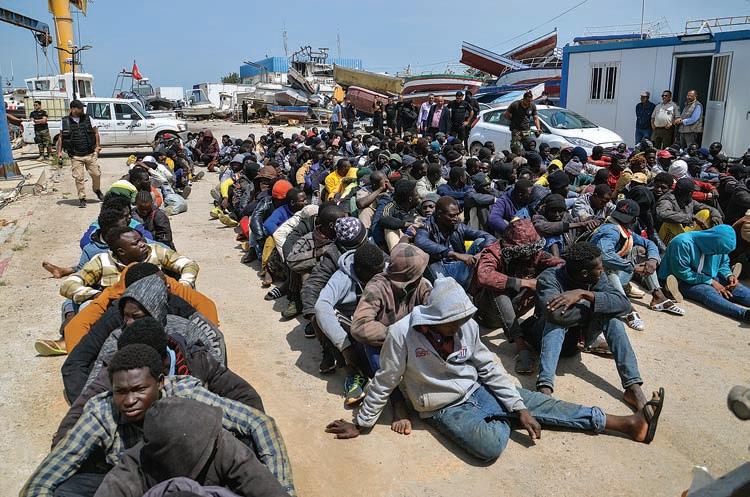
Sahar Aziz, director of the Center for Security, Race and Rights at Rutgers University, began her panel with an analysis of how the U.S. reverts from its Enlightenment standards when an ally commits a human rights violation, but “takes on the mantle of global human rights defender” when dealing with enemies.
Human rights offenses by allied nations are, at most, typically met with “mild condemnations” and “temporary halts on a tiny fraction of foreign aid,” Aziz noted. As one example, the U.S. continues to “conduct business as usual” with Egypt, despite the tens of thousands of political prisoners in the country, she noted. Yet, the U.S. upholds multiple human rights sanctions against Iran and other adversaries for similar offenses.
“These glaring inconsistencies” make human rights laws “merely a tool in the geopolitical toolkit as opposed to an international set of norms to which all countries must be held accountable,” Aziz said.
Jenny JacobyItaly in particular has been a “main advocate of cooperating with abusive governments” to prevent migration flows, Dhingra explained. She expects that Rome will push for policies in Tunisia similar to those utilized in Libya that return migrants to the country, despite the documented abuse they face upon return.
“We need to accept that the subordination of human rights to national security interests is the rule, not the exception,” human rights attorney Bruce Fein said in the opening panel of the National Interest Foundation’s “Human Rights and U.S. Foreign Policy” conference.
The event, held May 17 on Capitol Hill, featured three panels tasked with explaining the failure of human rights standards in U.S. foreign policy and what needs to be done to correct them in the future.
Much of the United States’ human rights policy failures in the Middle East can be attributed to Israel’s influence over Washington, according to former Rep. Jim Moran (D-VA), who currently runs a lobbying firm whose clients include the Qatari government. “Why did we go into a country [Iraq] that had nothing to do with 9/11, that didn’t have weapons of mass destruction?” he asked. Because “the Bush 43 administration thought it would be in Israel’s interest.” Moran also noted how the U.S.’ “Israel-centric” policy prevents the country from supporting human rights in Palestine and elsewhere in the region.
Moran has faced condemnation in the past from pro-Israel groups, but argued that criticizing Israeli human rights violations aligns with American values. “That’s not being anti-Semitic, in fact it’s not being anti-Israel,” he said. “It’s being pro-American values.”
Doug Bandow, a senior fellow at the Cato Institute, also weighed in on the control that lobbies exert in Washington. “Lobbyists work very hard to convince you, ‘please pay no attention, move along here, forget the bodies that you see along the way,’” he said, specifically citing Saudi Arabia’s lobbying efforts.
Riyadh is reported to have spent millions on hiring lobby agents and funding think tanks in the United States, Bandow noted. Their sway over U.S. policy was brought into the spotlight after President Joe Biden did not seriously punish Crown Prince Mohammed bin Salman for reportedly approving the murder of journalist Jamal Khashoggi.
Looking forward, Bandow believes that citizens need to be more aware of the influence of special interests in undermining human rights in foreign policy. “It’s important to pay attention and understand how special interests” operate, he said. “Ultimately, Washington will reflect them.”
Radwan Masmoudi, president of the Center for the Study of Islam and Democracy, sees democracy as the only true solution to resolving human rights violations in the Middle East. “Dictatorship gives you the impression of stability, but it's not real,” he said. Washington has long supported allied strongmen under the notion that they promote stability by fighting terrorism, ensuring steady oil flows, not threatening Israel and upholding other U.S. interests in the region.
Combating human rights violations is a “cat and mouse game” that can’t ultimately be resolved as long as countries remain under autocratic rule, Masmoudi said.
Jenny JacobyOn May 16, the Carnegie Endowment for International Peace held an event at its Washington, DC office to assess how the increased presence of Russia and China in the Middle East impacts U.S. policy in the region.
“The United States is no longer a major player in the region, out of its own choosing,” commented Marwan Muasher, vice president for studies at the Carnegie Endowment. “I never thought I would say this: the great power competition in the region today does not involve the United States.”
In addition to the rise of outside powers such as Russia and China in the region, the Arab Gulf states have also begun to act more autonomously, rather than largely aligning with Washington. These countries are “not listening to the United States as much as they used to,” Muasher said, and are instead “hedging their bets” by engaging a range of regional and global actors.
Jennifer Kavanagh, a senior fellow at the Carnegie Endowment, believes the muchdiscussed U.S. withdrawal from the region is overstated. She noted that the regional U.S. troop presence and levels of security assistance are “really pretty consistent with
what you had around 2003 before the invasion [of Iraq] started.” Meanwhile, U.S. arms sales to the region have grown, and major initiatives such as the Abraham Accords have been implemented via U.S. mediation. “The U.S. is actually fairly active” in the region, she said.
China does have a growing security presence in the region, Kavanagh acknowledged, but Beijing is responsible for less than five percent of arms sales to the Middle East (mostly to U.S. adversaries) and maintains a small military base in Djibouti, with plans to reportedly establish another small outpost in the UAE. Russia, meanwhile, will likely maintain interest in region, but she believes Ukraine will continue to occupy much of Moscow’s attention for the foreseeable future.
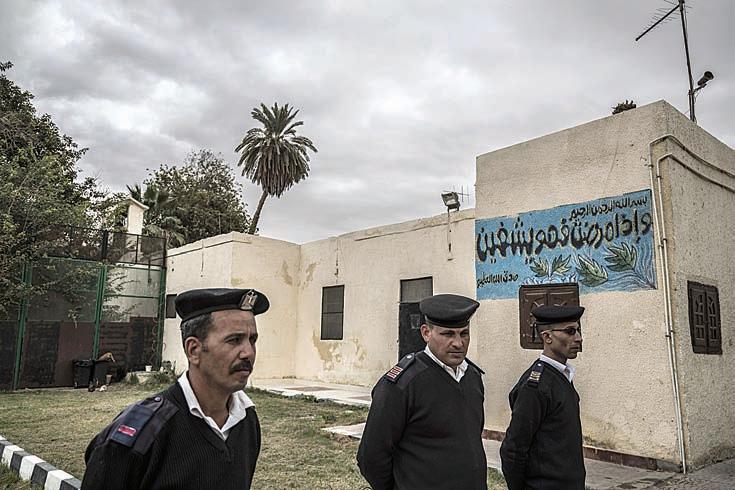
Kavanagh encouraged U.S. policymakers to view the region’s engagement with a broad range of nations as a strategic opportunity, rather than a threat to U.S. interests. “My sense is that countries in the region are going to keep hedging because it works for them, and they’re going to do that whether the U.S. sends more troops and more capabilities or if the U.S. pulls back slightly,” she said. “I think that gives U.S. policymakers the flexibility to make the decisions that fit best with U.S. interests without having to make reactive decisions to what China and Russia are doing in the region.”
Amr Hamzawy, a senior fellow at the Carnegie Endowment, noted that China is now the number one trading partner of Saudi Arabia and Iran, and has developed strong technology ties to Israel. On the other hand, U.S. trade with the region has been on the decline. “Chinese investments come with no economic, financial or political strings attached, which makes them a welcomed tool for different Arab governments,” he said. Across the region, China is seen as “a power for peace,” he added, noting Beijing’s recent mediation between Riyadh and Tehran.
Fred Wehrey, a senior fellow at the Carnegie Endowment, is skeptical China can maintain its positive image in the region. “It’s not clear to me that China can really play the role of mediator in this region
better than any other outside power,” he said, positing that as the country becomes more involved in the Middle East, the odds of it becoming entangled in disputes and developing partisan alignments increases.
He pointed to China’s sale of drones to the UAE, which Abu Dhabi subsequently deployed to Libya, as “an example of China’s so-called peaceful approach to the region” not living up to reality. The sale “enabled a very autocratic, meddlesome Arab power to project power in a way that violated an arms embargo and had a devastating effect for civilians on the ground in Libya,” he noted.
Wehrey believes the current environment provides an opportunity for “the U.S. to rethink its heavily securitized approach to the region.” Given that this approach has not won loyalty or goodwill from regional governments, he believes Washington should instead focus on issues such as economic development and poverty that “pose a far greater threat to the region than any encroachment from China or Russia.”
Dale Sprusansky

In November 2011, former President Barack Obama announced a “pivot to Asia,” a new policy to refocus U.S. policy toward the East. Twelve years later, this
pivot has not taken place, according to Jon Alterman, senior vice president at the Center for Strategic and International Studies (CSIS).
“The United States was deeply engaged in the Middle East before it pivoted and it will remain deeply engaged. There is no pivot,” Alterman stated during a conference hosted by the Arab Center Washington DC on May 18.
The attempted pull away from the Middle East has failed, and will likely continue to fail, largely due to the enduring U.S. military
presence and the region’s sway over oil markets. The Middle East is home to approximately 40,000 U.S. military personnel and several strategic military bases, noted Waleed Hazbun, a professor at the University of Alabama. This presence, coupled with the multibillion-dollar U.S. weapons industry, has made “uprooting” the U.S. presence challenging, he said.
The Middle East produces a third of global oil and has some of the largest reserves in the world. It is also home to the Strait of Hormuz, where 20 million barrels of oil pass through each day, explained Mark Finley, a fellow in energy and global oil at Rice University’s Baker Institute. Despite the U.S. consuming less than five percent of Middle Eastern oil, Washington will remain concerned about the region “as long as the prices at the pump are screamed at you from every street corner in foot high numbers,” Finley said.
The longevity of these oil-centric partnerships is largely dependent on how quickly the world transitions away from fossil fuels, he stated. The U.S. Energy Department is not predicting a major change in oil use in the next 30 years, but other models, like those of the International Energy Agency, see the potential for significant reductions in the same time period. Without oil in the picture, the U.S. and GCC direct economic partnership is miniscule, only accounting for
two percent of U.S. trade, Finley noted. While the U.S. has been reassessing its role in the Middle East, China has taken a growing interest in the region. From 20002007 China experienced rapid economic growth and became more assertive globally, launching the Belt and Road Initiative and expanding its military and diplomatic reach. “The most recent Saudi-Iran peace deal brokered by China is a good reminder for Washington that any withdrawal of the U.S. attention and influence in the region will create space that Beijing will be eager to fill,” Yun Sun, a senior fellow and co-director of the East Asia Program at the Stimson Center, said.
If the U.S. is concerned about Chinese influence in the region, it ought to more tangibly display its commitment to its allies and partners, Alterman said. He believes the U.S. government “settles for crafting the right words to describe its intentions rather than developing robust policies,” making it difficult for countries to trust Washington’s words. “I fear we’ve relied too much on messaging to assure our Middle East partners we’re not abandoning them.”
If the intention remains to pivot from the region, however, the U.S. will have to augment the role of diplomacy and abandon its traditional military-first approach to the region, Hazbun suggested. “Any sustained reduction in the U.S military posture in the Middle East would likely require a broader demilitarization of U.S policy,” he said.
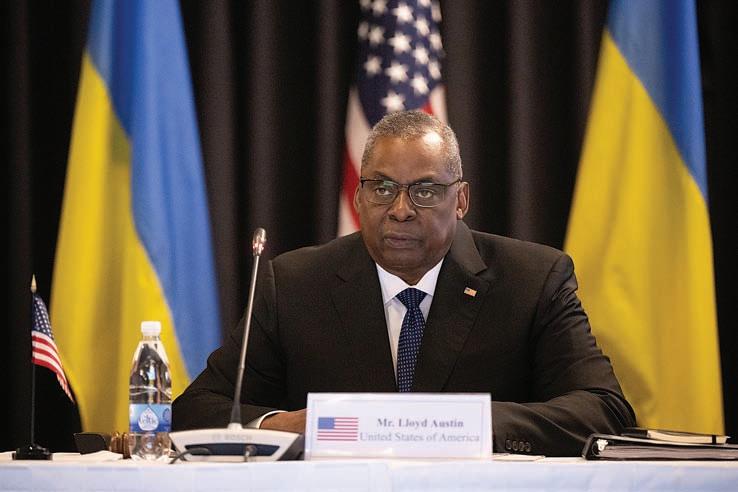 Jenny Jacoby
Jenny Jacoby
Mounting concerns about dark money influence over U.S. foreign policy “have emerged across all branches of government,” declared Eli Clifton, an investigative journalist at Responsible Statecraft and moderator of an April 24 webinar sponsored by the Quincy Institute.
The role of dark money—political contributions designed to influence policy but whose donors are typically undisclosed or obscured—focuses on allies as well as perceived adversaries. John Hudson, a national security reporter for the Washington Post, pointed out that the National Intelli-
gence Council—the “premier analytic hub of the U.S. intelligence community,” which normally focuses on familiar adversaries such as Russia, China and Iran—recently compiled an “extremely unique” classified report on a key U.S. strategic ally, the United Arab Emirates.
The report found that the UAE was using lobbyists and other methods to “manipulate the U.S. political system” to facilitate purchases of sophisticated weaponry, including powerful drones and F-35 combat aircraft. Hudson explained that the UAE conducted “very effective influence operations in the U.S., or they wouldn’t be getting sign-off on some of these very powerful jewels of the crown of the U.S. arsenal.”
The UAE is one of many countries that take advantage of loopholes and lax enforcement of the Foreign Agents Registration Act (FARA) and other disclosure requirements, but it is difficult to grasp the full extent of the problem. “There is no comprehensive database in the same way you have with political filings,” explained Anna Massoglia, investigations manager of Open Secrets. “So much more really should be done” to expose the actions and impact of foreign lobbies, she added. Brett Heinz, a political researcher who focuses on “the military-industrial-think tank complex,” noted, “Every time there is a comprehensive overhaul, within 10 years there are
seemingly 30,000 new ways to get around the comprehensive overhaul.”
Think tanks also often obscure their donors and lobbying efforts, actions that have spurred the introduction of House and Senate companion bills—a proposed “Think Tank Transparency Act.” The legislation would impose more substantive reporting requirements on money from foreign countries or foreign individuals.
The American Israel Public Affairs Committee (AIPAC), the principal Israel lobby organization, presumably would be little affected by such legislation, as it is not a think tank and its donors are believed to be overwhelmingly wealthy American Jews as opposed to foreign contributors. AIPAC, which spawned the influential pro-Israeli think tank, the Washington Institute for Near East Policy, has served as a model for other lobbies to emulate. AIPAC’s clout in Washington poses a “thorny question,” said Hudson, declining to elaborate on the Israel lobby’s overall influence.
“Defense” and “national security” firms, as well as think tanks, are often used to propel U.S. foreign policy toward militarism and intervention. “These decisions are being made based on corporate profit incentive and not on matters of public policy making and public interest,” Heinz declared.
Another critical issue is the role of prominent individuals who cycle in and out be-
tween government service and “defense” industry lobbies and think tanks. “We cannot understate the influence of major defense contractors and a new wave of military startups who are all very closely linked to current and former policymakers,” noted Jonathan Guyer, a senior foreign policy analyst at Vox
Lower-level officials as well as those as highly placed as Secretary of State Antony Blinken and Defense Secretary Lloyd Austin have served on the boards and as consultants for major arms manufacturing and “national security” entities prior to rotating into their policymaking positions. “Very few people have shined a torch on an ongoing basis on how clients of various consulting firms are benefitting from their close contacts with former well-known consultants who are now in government,” Guyer observed. Defense industries and foreign governments sometimes even employ the same lobbyists.
The nexus between policy and defense contractors was palpable this past December when the Ukrainian Embassy hosted a holiday party in which the logos of arms manufacturing giants Lockheed Martin, Raytheon and Northrop Grumman were printed on the formal invitations, Guyer noted. The United States has provided billions of dollars of military assistance to Ukraine, funding that generates substantial corporate profits for the manufacturers of weapons systems earmarked for deployment in the Russia-Ukraine war.
Walter L. HixsonWashington, DC’s Quincy Institute (QI) hosted a virtual program on June 2 to discuss U.S. policy toward Syria in light of the Arab League’s recent decision to re-admit the country into the organization. The U.S. opposes the normalization of ties, and the House of Representatives recently introduced a bill to double-down on preventing American investment in Syria’s rebuilding.
QI senior research analyst Steven Simon moderated the panel, which included James Jeffrey, former U.S. ambassador to Iraq, Turkey and Albania; Mara
Revkin, associate professor at Duke University School of Law; William Roebuck, executive vice president at the Arab Gulf States Institute; and Joshua Landis, director of the Center for Middle East Studies at the University of Oklahoma.
Jeffrey said there is hope for Syria if ISIS, the Iranian presence and the reportedly abundant drug production by the Assad regime are eliminated. Turkish security concerns and the 12 million Syrian refugees and internally displaced persons also need to be addressed. “Fix these problems and the country will be able to be fixed,” he opined. “Otherwise, this thing will stay a frozen conflict.”
The plan of Saudi Arabia, the United Arab Emirates, Jordan and Egypt to rebuild Syria and end the civil war, Jeffrey said, is the “only game in town right now,” and a way to get “hundreds of billions of dollars to flow into that country.”

According to Roebuck, U.S. policy on Syria “has a sort of cobbled together feel to it.” The basic pillars are countering ISIS in northeastern Syria, which is bolstered by the U.S. military presence in the region. There is also support for a political solution under U.N. Security Council Resolution 2254, and concern about the regime’s accountability for war crimes and crimes against humanity.
Maintaining the U.S. troops in northeastern Syria is important as they have a vital impact on countering ISIS, according to Roebuck. “I think that effort is continuing, and they are working successfully with our local partners, the SDF [Syrian Democratic Forces],” he stated.
Revkin said that despite the undeniable harm that U.S. military operations have caused in Syria, most Syrians feel that some continued U.S. military presence is essential to maintaining security and filling a vacuum that would otherwise be occupied by bad actors. “The continuing presence of around 900 U.S. troops in northeast Syria with limited support from our local partners, the Syrian Democratic Forces, I consider to be very critical for maintaining security in northeast Syria,” she said.
It is premature to write off sanctions as being totally ineffective, Revkin argued. “It would be a real mistake to give up on the idea of sanctions. What message would that send to Putin and any resurgence of authoritarianism around the world?”
Landis disagreed, as he believes sanctions hurt the average Syrian. “If the Arabs are saying the sanctions are a real problem, we are going to get into deep difficulty with our allies in the Middle East
if we continue this sanctions regime,” he said. “I don’t think we should be at loggerheads and fighting the Arab world over sanctions. Arab countries have asked that sanctions be lifted so that they can rebuild, and Syrians can rebuild their own lives.”
Landis added that Washington needs to imagine how Syria can move forward. “The Kurds can work with the government in Damascus,” Landis believes, given their prior cooperation. “It’s a minoritarian regime, it needs the Kurds in order to rule the northeast of Syria and only by repairing those relationships is Syria going to get back on its feet and rebuild,” he insisted. “That’s what the Arab governments have all come to a decision on in this effort to re-normalize and they are trying to turn a new page.”
Elaine PasquiniNational Iranian American Council president Jamal Abdi moderated a virtual panel on May 17 that discussed the shortcomings of sanctions, the impact of the Iranian Women, Life, Freedom movement and the continued progression of Iran’s nuclear program.
For five years, Iran has been the subject of a “maximum pressure” campaign to compel the country to rein in its nuclear program. Abdi argued that this strategy— initiated by the Trump administration and largely continued by the Biden administration—has been a failure. He noted that under the nuclear deal exited by Trump, Iran’s uranium enrichment levels were capped at 3.67 percent, but the International Atomic Energy Agency is now reporting enrichment at 83.7 percent, just shy of the 90 percent threshold required for weapons-grade uranium. Iran has long maintained its nuclear program is for peaceful purposes.
Joel Rubin, former deputy assistant secretary of state and current president of the Washington Strategy Group, agreed that Iran nearing the ability to manufacture a nuclear weapon represents a failure of U.S. policy and risks a whole host of negative regional out-
comes. “This is in many ways what we’ve been trying to, for 15 plus years, deal with—which is to not have Iran and Israel have a war and to not have Iran obtain a nuclear weapon and potentially open Pandora’s Box to cascading proliferation in the Gulf and elsewhere,” he said. Rubin added that Washington will need to play a major role in making sure Israel’s threats of taking overt military action against Iran are not actualized. Israel is currently the only nuclear-armed country in the region.
The failures of the “maximum pressure” campaign raise questions as to the effectiveness of sanctions. Dr. Shirin Saeidi, a professor at the University of Arkansas, said the progression of the nuclear program shows that sanctions are not a viable way to change Tehran’s thinking. “When sanctions go on for over 40 years and have no effect, the statistics and the science tell us it is very unlikely that sanctions are going to dramatically transform the approaches and policies of the Islamic Republic,” she said.
Dr. Behrooz Ghamari-Tabrizi, a professor at Princeton University, said there is often a discrepancy between the stated and real outcomes of sanctions. Instead of forcing Iran to negotiate, the sanctions have “created a lack of transparency,” made Tehran feel under attack and “empowered the most militant factions in the
government,” he stated.
Rubin argued that sanctions do hold value, particularly as a means of penalizing “bad actors” for committing human rights offenses or violating international law. However, he believes that a “one-size-fits-all policy,” in which sanctions are treated as a panacea, is foolish. “If you don’t have a diplomatic process that functions [alongside] sanctions…then they’re just punishment,” he said.
As far as human rights are concerned, Ghamari-Tabrizi emphasized not placing too much importance on how quickly the Women, Life, Freedom movement, which began last year, achieves change. “Revolutions unleash a form of consciousness, a form of connection to the world that takes time, sometimes generations, to be realized,” he stated.
That being said, there is a feeling that the movement has moved the needle forward in a tangible way. In the months following the outbreak of protests, Supreme Leader Ali Khamenei has continued to insist that failing to wear a hijab is haram, or forbidden, both religiously and civilly. Yet, women have continued to forego the mandatory wear. “Women have not only gained autonomy over their bodies, but they have also fundamentally challenged the political contract between society and the state,” Saeidi said.—Jenny
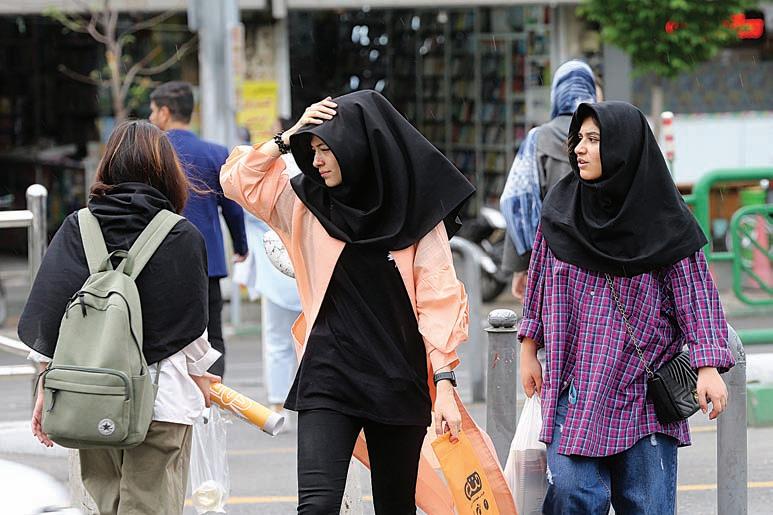 Jacoby
Jacoby
Facing a growing national debt, high inflation and the dramatic devaluation of its currency, Egypt is desperate to address its financial crisis. To discuss how Cairo is responding to its fiscal emergency, the Tahrir Institute for Middle East Policy (TIMEP) held a webinar on May 18.
Ishac Diwan, director of research at the Finance for Development Lab, noted that Egypt has long neglected the development of its private sector in favor of expanding state-owned businesses, particularly those controlled by the country’s powerful military. Additionally, President Abdel Fattah el-Sisi has commissioned several large construction projects, such as the creation of a new administrative capital, which have put a strain on the country’s financial resources and forced it to borrow large amounts of money from the IMF, World Bank and Gulf states.
“Sooner or later this house of cards had to fall, and it fell,” Diwan said of the state’s lack of economic reform and heavy reliance on loans. If the country does not take steps to change the status quo, “we start to move toward a situation of insolvency, the Lebanon route,” he warned. “How to stop this descent is now central.”
To quickly raise much needed capital, Egypt announced in February plans to sell minority stakes in 32 state-owned businesses in sectors including banking, finance, real estate, tourism, logistics and electricity generation. The decision to offer private rather than public shares has led many to believe investors from the Gulf are the most likely to purchase positions in the companies.
However, panelists noted that after years of providing aid and investment to Egypt, many Gulf leaders have grown weary of Egypt’s inability to right its economic course. “They’ve increasingly vocalized to the press the fact that they’re done writing blank checks for the Egyptian government,” noted Timothy Kaldas, deputy director of TIMEP.
The UAE and Saudi Arabia “are incredibly angry at how Egypt has ended up in this situation,” resulting in a “complete break-
down in trust,” said Hafsa Halawa, a nonresident scholar at the Middle East Institute. After seeing years of stalled or muted reforms, “the Gulf states no longer believe there is political will within [Egyptian] leadership to change anything,” she added.
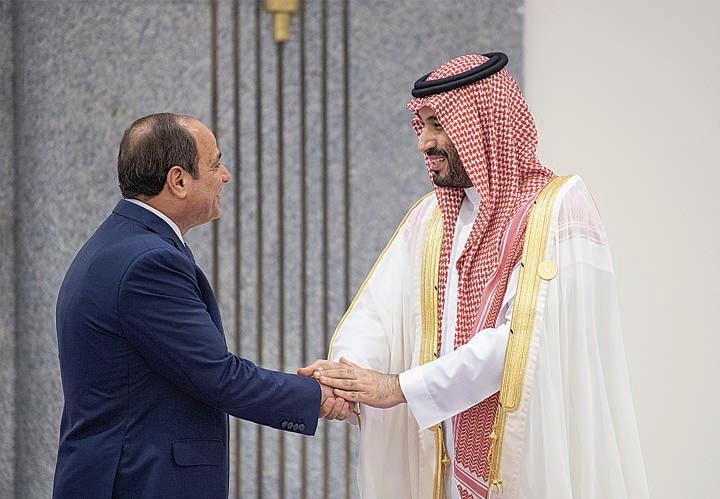
Gulf leaders don’t believe the Egyptian plan to sell shares of state-owned companies represents a major policy shift, nor are they necessarily interested in being minority owners of these businesses. They want “the ability to control the outcomes and the trajectories of these companies, and they want a sign of genuine state divestment that shows that Egypt is on a pathway and not just trying to...kick the can down the road even further,” Halawa said.
Robert Springborg, a research fellow at the Italian Institute of International Affairs, believes Egypt has little leverage in dealing with the Gulf. “Egypt’s feet are going to be held to the fire by the Gulf, and there doesn’t seem to be any way around it now,” he said.
While the Gulf does not want to see Egypt fail, Springborg cautioned that shifting regional priorities mean there are limits to which the Gulf will assist Egypt. “It’s remarkably similar to Lebanon,” he observed. “The GCC was supporting the Lebanese deficit for years and then finally decided it was no longer worth the game to be played. It did so in part because of a
structural change in the GCC states, namely that they’re sort of following an Israeli strategy of leapfrogging out of the Middle East and North Africa. They are developing themselves and see that they can relate to the world, they don’t really need the Middle East.”
Yezid Sayigh, a senior fellow at the Carnegie Middle East Center, noted that just two of the 32 businesses slated to be partly divested are run by the military. This is further evidence that the country is not particularly serious about reducing state control over the economy, he said. In fact, many believe the companies were merely included to placate IMF demands that the military—which controls up to half of the country’s economy according to some estimates—be included in divestment efforts. Sayigh also doubts Egypt will rein in its spending. “Sisi is so committed to massive investment and doing things in a rush and doing them without proper cost-benefit analysis, without feasibility studies,” he said. “What we get therefore is a lot of wasteful investment.”—
Dale SprusanskyThe town of Huwara, Palestine was set ablaze on Feb. 26, 2023 when several hundred Israeli settlers stormed through the streets throwing stones and setting fire to
Palestinian stores, homes and cars in retaliation for the reported killing of two settlers by a Palestinian earlier that day.
Ahmed Abofoul, the legal research and advocacy officer at Al-Haq, told the Middle East Institute on June 14 that the Huwara attack was not an isolated incident. “Terrorizing the Palestinian indigenous population is not a casual or accidental phenomenon,” he said. “Rather, it is part and parcel of Israel’s racist, settler colonial, exclusivist, exceptionalist and expansionist ideology: Zionism.”
He argued that over the past several decades, there has been little deviation from Israel’s violence toward Palestinians. “In a bad [political] situation, the only escape for Israeli politicians is to launch war on Gaza,” Abofoul said. “The victimization and the oppression of the Palestinians is often the solution for Israelis.”
Sarit Michaeli, the international advocacy officer for B’Tselem, said continued illegal settlement is a win for settlers seeking to appropriate land and for those who rely on their votes. “When you actually stand to gain quite a lot through removing Palestinians, expelling them from land, you’re not at risk at all…why wouldn’t this expand and happen?” she said. Settlers receive “the green light” from the Israeli government and often face no risk of trial or serious punish-
ment for their actions, Michaeli added. Another key factor to the success of settlements is external funding. Part of this comes from the Israeli government itself, as it sets aside resources for projects and organizations that support the settlements, Michaeli explained. Another surplus of money comes from a network of Americanbased nonprofits and donors that fundraise tax-exempt funds for Israeli settlements.
Alex Kane, a senior reporter for Jewish Currents, cited a 2015 Haaretz study that found $220 million was funneled to West Bank settlements by U.S. donors from 2009 to 2013. “I would venture to guess that virtually every single settlement in the West Bank has been helped in some way or the other by U.S donors,” he said.
Restricting this money supply is essential to preventing more settlements, but cases brought before U.S. judges claiming the nonprofits are funding violence against Palestinians are often dismissed because they “involve political questions of foreign policy that are not suitable for the judicial system,” Kane explained. New tactics are being explored, such as New York State Assembly member Zohran Mamdani’s proposed legislation to stop New York-based groups from providing material support to illegal settlements. This effort, like many others, has been “met with immense push-
back,” but Kane hopes it can get the critical conversation started.—Jenny
Jacoby“We are at the end of an era,” Hanan Ashrawi, the first woman appointed to the Executive Committee of the Palestine Liberation Organization, told the Carnegie Endowment for International Peace on June 12. The negotiations and agreements of the “peace process” have failed, fascism in Israel is on the rise and the practicality of a two-state solution is rapidly diminishing, she explained.
Last year was one of the deadliest of the Israel-Palestine conflict—and this intensification has continued into 2023. “The current situation is untenable and cannot last,” Ashrawi said. “I’m sure it’s going to run its course, and to run its course means that we are undergoing a serious, painful and destabilizing transition.”

Palestine is entering a new phase in which it increasingly understands that a two-state agreement is no longer possible, Ashrawi believes. All previous agreements “have not only not been honored [by Israel], but they have been used in order to exacerbate the conflict,” she said.
Ashrawi specifically called out the 1993 Oslo Accords for criticism. “The flawed logic and discourse of negotiations on that basis is what led to this situation,” she said. “Along with, of course, the Israeli lack of compliance, lack of respect for international law and attempts to use that agreement to maintain control and power.”
The shift of Israeli politics to the extreme right under Prime Minister Binyamin Netanyahu’s latest coalition also marks a change in the conflict, exposing “weaknesses and flaws” in the justifications of Israel’s actions, Ashrawi said. “Israel has become clearly what we’ve been saying all along. It has become openly, if you will, a fascist state,” she stated. Having settlers and ideological fundamentalists in government has created an ethnocentric and theocratic system that she believes will “come back to haunt Israel.”
Finding a path forward will, in part, depend on Palestine’s ability to look inward,
Ashrawi said. The lack of elections and civil participation in Palestine is a major issue. The 2021 elections were delayed by Palestinian Authority President Mahmoud Abbas, marking now 17 years without a legislative election. “This possessiveness of holding on to power is increasing not just the depression, but also the corruption,” Ashrawi said. “It has led to a disenchantment among the young.”
However, Ashrawi emphasized that the fate of Palestine is in many ways in the hands of the U.S., which has supported and funded Israel for decades, and is now actively promoting normalization of the country within the Arab world. “Everyone knows getting a few leaders to recognize Israel is not going to solve any problem,” Ashrawi said. Regardless of the policies of Arab leaders, Arab citizens are committed to the Palestinian cause because they know what is happening on the ground, she explained. Normalization only “sets the people off against their own leadership” instead of creating meaningful progress.
Jenny JacobyPalestinian American photojournalist and human rights advocate Jamal Najjab has a cousin in Palestine who, at age 15, was accused of throwing stones and sentenced by an Israeli military court to two
years in prison, where he was tortured. After being released, he was terrified of going outdoors for fear he’d be detained and imprisoned again.
“In many ways he was broken,” Najjab related during a June 18 Online Film Salon conducted by Voices From the Holy Land. “This is systematic,” he said. “It’s a system to break down the people so they won’t resist the occupation.”
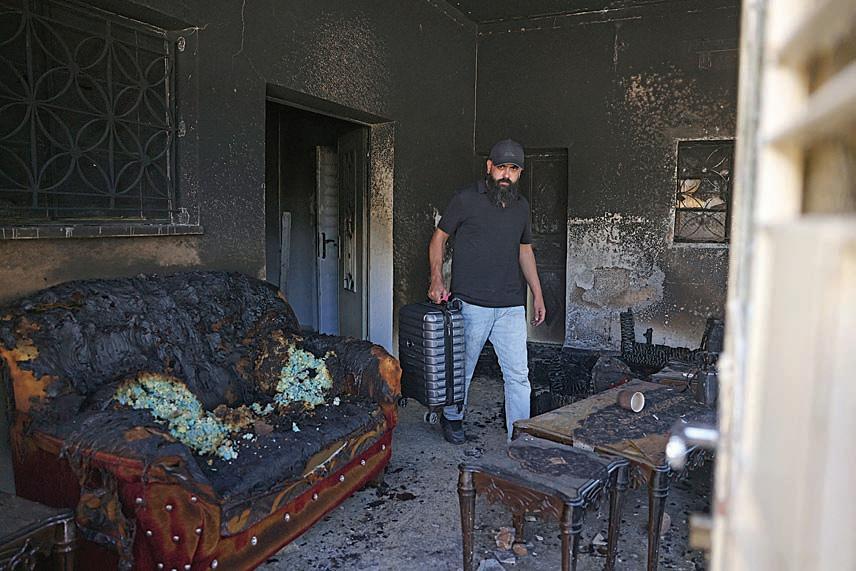
Najjab and the other panelists discussed the deliberate methodology undergirding Israel’s takeover of Palestine, as documented in “The First 54 Years: An Abbreviated Manual for Military Occupa-
tion.” Filmmaker Avi Mograbi anchors his 2021 film with clinical descriptions of the tools by which Israel has orchestrated its occupation. He also includes historical film clips and videotaped testimonies from the archives of Breaking the Silence, which since 2004 has recorded statements from more than 1,400 Israeli soldiers.
On the panel, Mograbi explained that in constructing the documentary he excerpted from the soldiers’ testimonies only those statements that described actions, procedures and mechanisms of control, and omitted all reflections. This contributed to the quasi-objective format of the documentary, but it obscured the impact of occupation on the soldiers themselves.
Typically, soldiers do not begin reflecting on their actions until well after their service is over, according to Joel Carmel, who served in the civil administration of the Israel Defense Forces (IDF).
He was not ready to testify until four years after leaving the military. Israelis are instructed from a young age that Palestinians are threats and potential terrorists, he noted. “After that upbringing, you are given a uniform, a rifle and instructions. You have all of these preconceptions, and you have power. What you do is often the result of a whole process of justification.”

And yet, Carmel said, there were moments while serving when he began to “think differently.” The first such moment for him occurred when he volunteered to go on a mapping mission—an IDF euphemism for a night raid. He found himself entering a Palestinian village in the middle of the night with a group of fully armed soldiers, banging on doors, waking up families and questioning them at gunpoint.
“I just remember seeing these really young kids and thinking that they’re so afraid of us, and we’re not here to hurt them, we’re just doing our job,” he said. “I thought maybe I’ll try to communicate that through my body language. I smiled, and they didn’t smile back….I think that was the moment when I started to unpack what all this meant.”
James Zogby, president of the Arab American Institute, focused not on the occupation’s impact on soldiers, but rather on the young Palestinians depicted in the film. “I saw those faces and I wondered, what happens to them? These are kids who’ve experienced trauma for decades. What is the net impact?” He believes it creates a culture of anger and depression.
“And a culture of mistrust,” added Najjab. As the film points out, a key strategy of the occupation is to coerce occupied people into collaboration. He shared the story of another cousin who was denied a permit to visit his dying brother in Jordan. The cousin was informed that he could get a permit only if he spied for Israel. He refused, and his brother died without him being able to say goodbye.
Panelists addressed how people outside of Palestine can help combat the occupation. Zogby urged them to resist Israel’s application to be added to the U.S. Visa Waiver Program, because of the lack of reciprocity for Americans of Arab descent seeking to enter Palestine-Israel.
Mograbi encouraged allies to talk to their elected leaders. Najjab noted the impor-
tance of thanking representatives who have taken the right stand on issues and visiting representatives who sympathize with Zionism but whose staff might be receptive. He also encouraged people to bring religious and other leaders to Palestine to witness the situation personally.
Mograbi concurred. “They should go on
a Breaking the Silence tour of Hebron,” he said. “They will have their minds blown.” He also encouraged activists to arrange their own viewings of “The First 54 Years” as a catalyst to education and action. Visit <www.avimograbi.org> to learn more.
Nonviolence International and Veterans for Peace cosponsored the June 18 event.
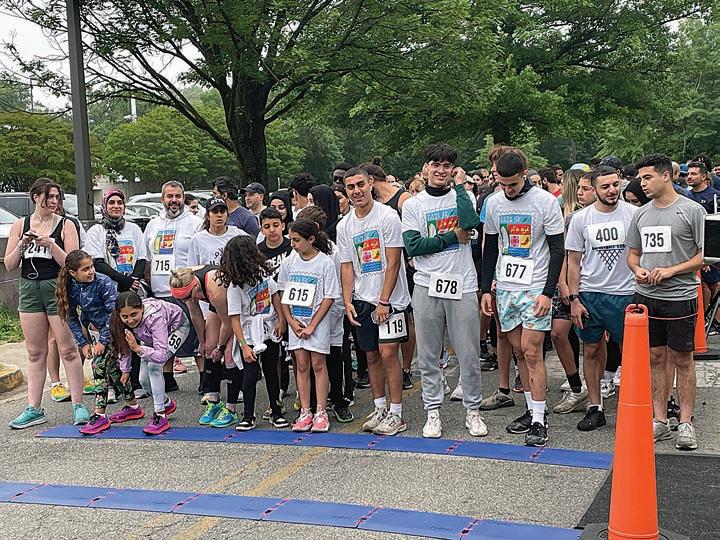 Catherine Baker
Catherine Baker
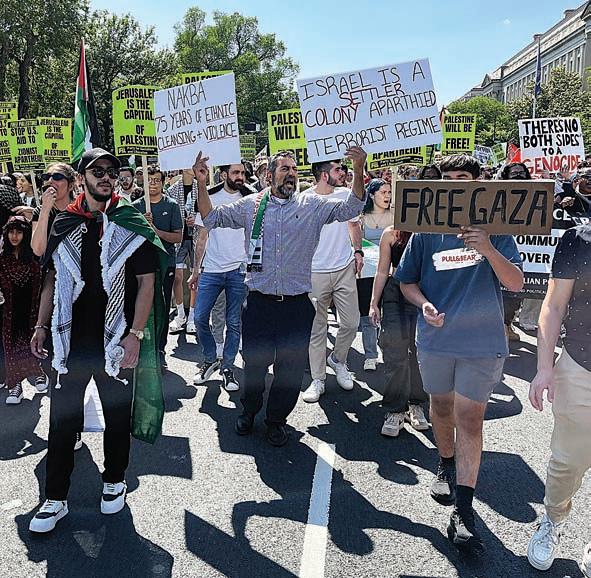
About 400 Palestinians and their supporters gathered in front of the Washington Monument on May 14 to observe the Nakba in a rally cosponsored by American Muslims for Palestine, the Palestinian Youth Movement, the Palestinian Christian Alliance for Peace, the U.S. Campaign for Palestinian Rights, Jewish Voice for Peace and MD 2 Palestine.
Speakers described Israel’s attempted erasure of the Palestinian people, but their focus was on the determination of Palestini-
ans to thwart Israel’s colonial project and to create a state in which everyone can thrive.
People then took to the streets in an orderly procession to the U.S. Capitol. Music, leaflets, Palestinian flags and signs ensured that people enjoying a beautiful spring day out on the National Mall heard the message that Israel’s creation was a violent act of dispossession for the indigenous population, and that it has been met for 75 years with resilience, defiance and a determination to return.
The demonstration was one of many actions held across the world that weekend to draw attention to the events that have occurred in Palestine since 1948.
Ida AudehDr. Ghada Karmi on Death of TwoState Solution: “Face the Facts”
Palestine Deep Dive hosted esteemed Palestinian author Dr. Ghada Karmi at the Frontline Club in London on June 5 to celebrate the launch of her latest book, One State: The Only Democratic Future for Palestine-Israel
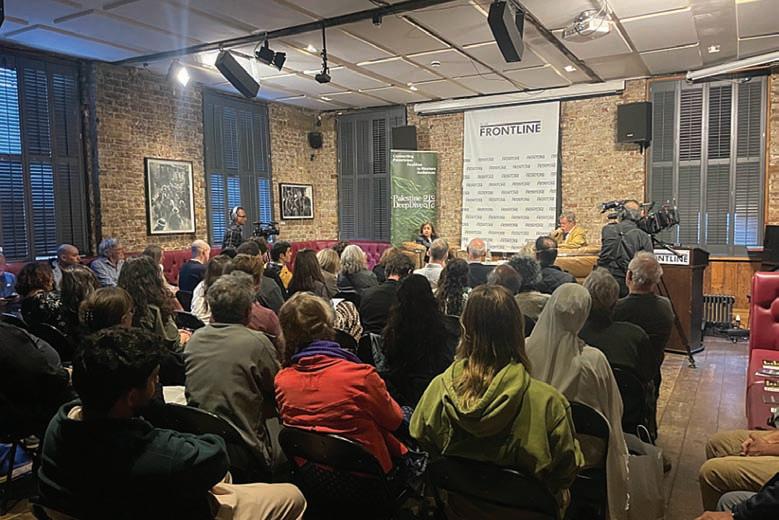
Karmi began by explaining why she no longer considers the two-state solution a serious proposition. “It’s been this mantra that people repeat over and over again,” she said. “When you examine it, what you realize is that what it’s all about is preserving Israel,” often to the detriment of Palestinians.
In addition to depriving Palestinians of much of their historic land, Karmi noted that any two-state solution would likely do little to protect the rights of refugees. “What is omitted even in the best variation of the twostate solution are the refugees,” she explained. “I’m talking about the people sitting in camps, who’ve been in camps since 1948. Well, where are they going? Not a mention of these people. How is it acceptable to leave them rotting in camps supported by the U.N. with no end in sight, with no promise of a future?”
Karmi also argued that it’s become counterproductive to support a Palestinian
state. “As people know, 138 member states of the U.N., that’s a majority of member states, have recognized this thing called Palestine. What is the Palestine they’ve recognized? They’ve recognized a state which is to be constructed. It doesn’t exist now in the 1967 territories, a lot of which are already taken over by Israeli settlements. What are these U.N. states thinking? What are they recognizing?” Promoting Palestinian statehood “is effectively putting a spanner in the work of people who really want a just solution,” she added. “That’s the problem with it.”
With Israel already ruling over a onestate reality, Karmi believes focus ought to be on pressuring Israel into ending its apartheid system. “If you actually look at geography, what you see is that the territory between the Jordan River and the Mediterranean Sea, one territory ruled by Israel, is composed demographically of roughly half and half Palestinian Arabs and Israeli Jews,” she observed. “It seems to be very clear that we have a situation of one state already. But the problem with that one state is it’s ruled by one apartheid regime, which deals with half the population in a manner that no civilized society can accept; they have no rights, they have no citizenship.”
Karmi is under no illusion that a single democratic state is a popular proposition among Palestinians or Israelis, but she considers it the only realistic solution for achieving justice. “I feel very strongly that people have to face the facts,” she said. “I can bet you most Palestinians will say no thank you [to one state], because they don’t want to live with their usurpers, with the people who’ve treated them so badly.” Israelis, meanwhile, “would be horrified, because for them Arabs…are a despised people, and the last thing they would want is equal citizenship with people they despise. Furthermore, they have loads of privileges at the moment, the privileges of a colonial society they don’t want to give up.”
The West’s unwavering support for Israel is yet another impediment to a onestate solution, Karmi argued. “The West is fixated on the idea of Israel,” she said. “They can’t give it up. One of the reasons why the one-state idea, with all the sense that it makes, doesn’t get anywhere at an official level in Western circles…is the fact that they understand that if you have one democratic state, that’s the end of Israel as you know it. It’s not [that] Israelis [will] be killed, it’s that the state structure of Israel will end.”
Omar Aziz
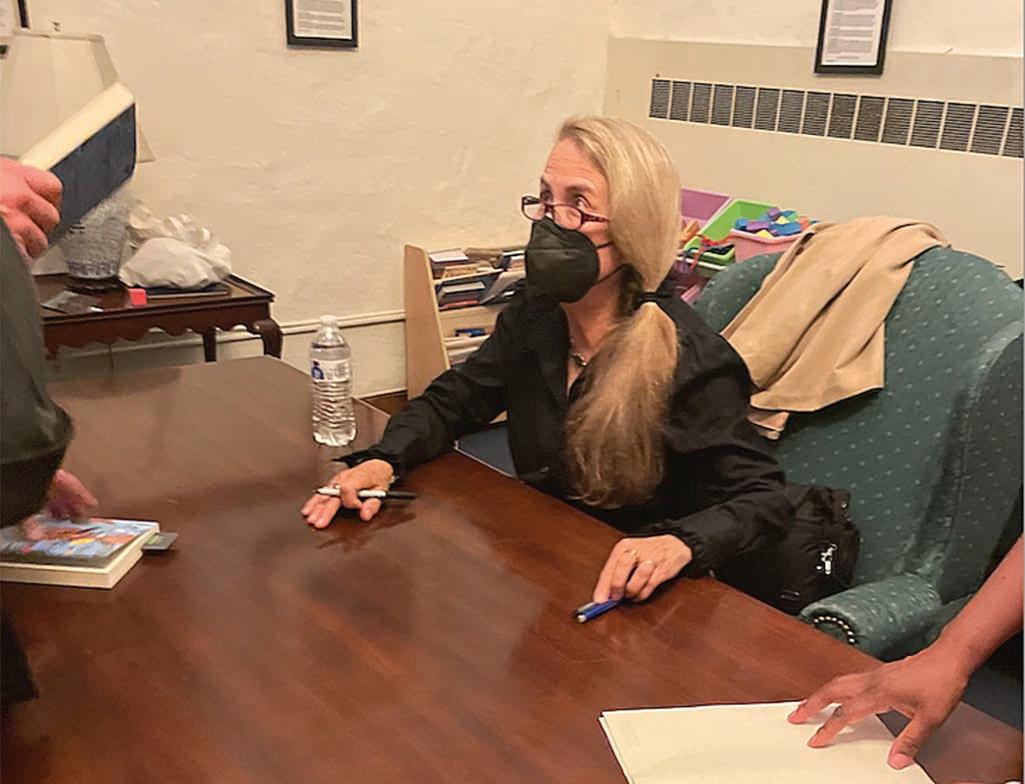
Washington DC’s Folger Shakespeare Library may be closed for renovations, but that hasn’t stopped it from hosting exceptional performances. Standing in line outside the Lutheran Church of the Reformation for the season’s final Folger Poetry Board Reading by Naomi Shihab Nye on May 10, I heard an excited audience member gush, “I just love Shakespeare. I can’t wait for this reading!” One of us is going to be very surprised, I thought.
Award-winning Palestinian American poet, writer, anthologist and educator Naomi Shihab Nye is the author and/or editor of more than 30 books. She also teaches creative writing at Texas State University. For decades Nye has worked with students around the U.S. and internationally, teaching and conducting workshops in schools. Nye read her own poetry and shared her favorite poems from other poets, many of them children. The poems and Nye’s vignettes about the children who wrote them electrified the church audience.
Who can forget her story about a little boy who raised his hand to share his poem, and the looks exchanged by his astounded teachers who had never before heard his voice? Or two Washington, DC youths, known as troublemakers, whose poetry got everyone’s attention. Or the principal who told her he loved poetry and wished there was time in the school day for poems. Nye said, “don’t you have daily announcements on the intercom?” Sure enough, he began sneaking in a poem a day, and the students soaked them up.
Somehow, effortlessly, Nye moved into poetry with a universal message as well as a focus on Palestine, her beloved father’s homeland, where she spent time as an adolescent. The poem “For Mohammed Zeid of Gaza, Age 15” looks at gun violence, and criticizes the words we use to downplay brutality. When a “stray” bullet kills a kid, “There is no stray bullet, sirs, no bullet like a worried cat crouching under a bush...So don’t gentle it please...this bullet had no innocence, did not wish anyone well, you can’t tell us otherwise by naming
it mildly, this bullet was never the friend of life, should not be granted immunity by soft saying—friendly fire...”
“Before You Can,” compares Nye’s Jewish and Arab friends, both “kind and gentle. Not one of them would harm another person...My Jewish friends have never taken my house, my land, herded me into a cell, tortured me, cut down my tree, never once. My Arab friends have never built a bomb. We respect each other as equals. We look somewhat alike. We laugh similarly. We have never said the other should not exist. So where is the problem exactly? Let’s be specific. Who and where and what is the problem exactly? You have to know before you can fix it.”
“Before I Was a Gazan” is another gut punch. It’s about a boy who shows his uncle his math homework. He couldn’t wait to “make my teacher happy, make her say my name to the whole class, before everything got subtracted in a minute, even my uncle, even my teacher, even the best math student and his baby sister who couldn’t talk yet. And now I would do anything for a problem I could solve.”
Poetry can’t solve everything but just a few words can take a reader into someone else’s life. It’s also therapy that may help a poet weather unimaginable grief. When the Nyes lost their cherished son, the poet found she couldn’t do anything, especially write—something she had loved to do since she was six. One day she decided to tackle piles of ironing and suddenly she recalled her son saying he loved the hiss of her iron and the smell of the clothes. Somehow she found the words to capture that memory, and many more.
In her book, Everything Comes Next, which has many of these moving poems, Nye sees a rainbow mural in a school hall proclaiming: “WE ARE ALL WONDERS.” She writes, “such simple words. I could have stood there weeping, invisible among kids, till the whole place emptied.” That’s the way she left her Folger’s audience, forever changed, weeping and wanting to use words to change our world.
—Delinda C. HanleyAll books featured in this section are available from Middle East Books and More, the nation’s preeminent bookstore on the Middle East and U.S. foreign policy. www.MiddleEastBooks.com • (202) 939-6050 ext. 1101
 By Vincent Lemire, translated by Jane Kuntz, Stanford University Press, 2023, paperback, 400 pp. MEB $32
By Vincent Lemire, translated by Jane Kuntz, Stanford University Press, 2023, paperback, 400 pp. MEB $32
On June 10, 1967, under cover of darkness, Israeli bulldozers entered the Maghrebi Quarter of Jerusalem, which abutted the Western Wall. The neighborhood had been home for more than 800 years to people from the Maghreb (North Africa) and, after the fall of Granada in 1492, Al-Andalusians (Iberian Muslims).
About 138 Maghrebi homes were flattened, thereby permanently dispersing this close-knit community of roughly 650 Jerusalemites. Grabbing only essential documents, they rushed out under military order—a flagrant violation of the Article 53 of the 1949 Fourth Geneva Convention on Civilians.
Most modern visitors to the Western Wall (known to Jews as Kotel Maaravi and to Muslims as al-Buraq) are ignorant of the life and death of the Maghrebi Quarter.
Now, Vincent Lemire, in his richly documented book, In the Shadow of the Wall, lifts the shroud over the Maghrebi Quarter,

Maryvelma Smith O’Neil is the founder and director of the Alliance to Restore Cultural Heritage in the Holy City of Jerusalem (ARCH) and project director of the Mughrabi Quarter Virtual Archive. She is also the founder and co-director of the Webster University MENA Center for Peace and Development in Geneva, Switzerland.
revealing its complex history and the geopolitical events that culminated in the calculated plot to destroy it. Building on the previous scholarship of Dr. Adnan Abdel Razak and Dr. Nazmi al-Jubeh and other researchers, he brings to light the collective memories of countless Maghrebi inhabitants and pious pilgrims who left their traces on the quarter over the longue durée of eight centuries.
Lemire scoured archives in Israel, Palestine, Switzerland, Turkey, the Maghreb and France as he worked on this book. His diligent research is clear: he lays out facts like a prosecutor, quoting diplomatic letters, ministerial reports, handwritten petitions, maps, photos, account ledgers, receipts and objects uncovered during digs of the perimeter of the quarter since 2005.
Lemire’s study is densely comprehensive and copiously footnoted. He underscores the crucial importance of the pious and inalienable endowment known as the Waqf Abu Madyan, established in 1320 to support the quarter. The waqf included revenue from Ein Karem, an historic village located in a fertile, spring-fed valley west of
Jerusalem, which was the main source of income that sustained the daily life of the quarter, continuing through centuries of Ottoman rule.
He provides a painstakingly recorded economic history of the quarter, including extensive renovation and restoration projects in the early 19th century and geopolitical events during the interwar period that gradually fractured the financial, institutional and political bases of the once lucrative waqf.
In the late 19th century, the quarter faced a grave existential crisis: Zionists advanced numerous plans to purchase it because of the political and religious significance of the Western Wall. Tensions spilled over in the deadly “Western Wall Riots” of 1929: 133 Jews and 116 Palestinians were killed.
After the 1948 armistice agreements signed by Israel, Jordan, Egypt and other Arab states, the Green Line was established to demarcate the boundaries between the countries. Ein Karem, once the quarter’s economic lifeline, ended up within Israel. At this time, the French colonial government in North Africa stepped in to assume partial financial responsibility for the sustenance of Moroccans, Algerians and Tunisians in Jerusalem, disbursed by the consulate general in the city. After Algerian independence, however, the Maghrebi of Jerusalem were deprived of financial, judicial and diplomatic protection.
The reader feels the clock ticking: the Maghrebi Quarter was living on borrowed time.
In Chapter 5, the chronology of the catastrophe is solidly reconstructed. Lemire definitively demonstrates that the destruction of the Maghrebi Quarter resulted from a deliberately planned and scheduled operation by the Israeli state that began in 1963. It involved a carefully spun web of collusion between individuals at the highest levels of the Israeli army, municipality and national government.
Extraordinary images taken by French photojournalist Gilles Caron just after the quarter was destroyed record, in black and white, the experience of frightened inhabitants evicted hours after the ceasefire formally concluding the Six-Day War was signed. He captures the gaping space left
in the wake of the demolition, punctured by faces of desolation.
Lemire cogently argues for acknowledging the complicity of state and non-state parties in leaving the Maghrebi Quarter so vulnerable to destruction. But it is to the state of Israel that he addresses his desiderata: a) full written recognition of the documented facts, including breaches of both international law and international humanitarian law and b) restorative justice. While the sheer density of incontrovertible evidence laid out by Lemire is powerful and essential, one hopes that he will also tell the story in an abridged edition (with full documentation in an appendix) for the general public and politicians.
Finally, the recovered histories of the demolished neighborhood leave the reader to concur with Lemire that it would be fitting to insert a multilingual place name plaque: Maghrebi Quarter c. 1187-1967 (in Hebrew, Arabic and French) onto the Wall. This would be a highly symbolic way to revive the presences that were made invisible on June 10, 1967, and to give the quarter historic continuity.
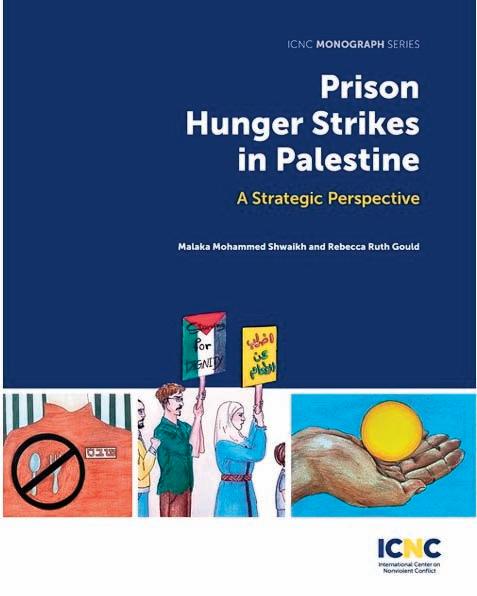
and thirst. Malaka Mohammed Shwaikh and Rebecca Ruth Gould explain how hunger strikers watch their bodies get weaker and their organs decay, but their need for freedom makes these life-threatening changes less relevant, turning their bodies into “a formidable weapon at their disposal.”
of Shireen and Samer, two siblings who went on hunger strike in Israeli jails, which reveals the generational aspect of Israel’s prolonged military occupation of Palestine. Hana Shalabi was one of the first Palestinian women to go on an individual hunger strike to protest her administrative detention. She was eventually deported to Gaza in 2012 after 44 days of hunger strike.
Shwaikh and Gould explain the differences and motivations behind individual and mass hunger strikes by Palestinians in Israeli prisons, outlining their successes and failures. The demands of individual hunger strikes include ending administrative detention, while the demands of mass hunger strikes center on family visits, access to education, ending solitary confinement for prisoners, having access to family calls, medical treatment and better living conditions inside the prisons.
By
MalakaMohammed Shwaikh and Rebecca Ruth Gould, International Center on Nonviolent Conflict Press, 2023, paperback, 116 pp. MEB $20
Reviewed by Yousef M. Aljamal
Prison Hunger Strikes in Palestine provides a unique window into the “culture” of hunger striking, as the two authors describe it, among Palestinian prisoners in Israeli jails.
The introduction of the book points out that starvation as a form of protest is a welldocumented practice aimed to achieve justice that dates back to medieval Ireland. The authors note that when it comes to hunger strikes, the need for dignity and freedom outweighs the feelings of hunger
Pulling from recent events, the story of late Palestinian hunger striker Khader Adnan is mentioned at the beginning of the book. Adnan had staged a new phase in the individual struggle of Palestinian prisoners in Israeli jails by going on six hunger strikes while serving eight years in total in Israeli jails, losing his life on May 2, 2023, after an 87-day hunger strike. Israel currently holds his body.
The book quotes Pat Sheehan, a former Irish Republican hunger striker, as saying: “We were not going on hunger strike to die. We were going on hunger strike to show the world that an injustice had been done on us.” Sheehan and Adnan published their stories in a book titled A Shared Struggle (co-authored by this reviewer). Following the death of Adnan, the Bobby Sands Trust in Ireland published a statement which read, “Khader, who was 45, had been cruelly interned by Israel 12 times under administrative detention.”
Prison Hunger Strikes in Palestine also addresses the cases of Palestinian hunger strikers Awni al-Sheikh, Etaf Elian, Mona Qa’dan, Hana Shalabi, Shireen Issawi and Samer Issawi, “who carried out the lengthiest hunger strike in the Palestinian prisoners’ movement history that lasted 277 days.” Each story is unique, including that
The third chapter of the book explores how hunger strikes are staged from start to finish, which includes coordination and planning across different prisons, a process that might last months and could face challenges such as a lack of unity regarding the decision to go on a mass hunger strike due to internal politics and differences among the leadership. In some cases, mass hunger strikes were called off due to the ability of the prisoners’ movement to achieve their demands through negotiations with the prison administration.
During hunger strikes, the book explains, it is crucial to have an effective communication strategy, both with the prison administration as well as with the outside world (e.g. writing letters). In some cases, hunger strikes failed because of a lack of publicity and public support, two factors that impact the Israel Prison Service’s (IPS) decision to meet the demands of hunger strikers. As “the first day is the hardest” in a hunger strike, it is important to keep the momentum and participation level, with some prisoners and prisons joining the strike later, and others excluded due to health issues or inability.
Shwaikh and Gould outline how the prison administration engages in a campaign of intimidation after prisoners go on hunger strike by using repression and threats, solitary confinement and banning communication with the outside world. The
prisoners, on their part, respond to the IPS’ repression—which does not stop with the end of hunger strikes—by showing patience and persistence, by “sticking rigorously to the strike.”
Prison Hunger Strikes in Palestine concludes by stating that the success and failure of hunger strikes is measured by a number of factors, giving the example of the favorable international environment in the case of mass hunger strikes in South Africa and Ireland, which Palestinians do not enjoy. The authors conclude that having their demands met is not the only factor to determine the success of hunger strikes, as the prison administration might reverse its concessions, noting that long-term achievements such as global solidarity should also be considered.
Shwaikh and Gould’s book provides indepth knowledge as to why and how Palestinian prisoners go on a hunger strike, both individually and en masse, while drawing on other examples from British India, South Africa, Ireland and elsewhere. It is one of few manuscripts that outlines the experiences of Palestinian hunger strikers by having direct interviews with them, linking their experiences to Ireland in particular. This is not new, as Palestinian prisoners sent a letter out of Nafha Prison in solidarity with Republican Irish hunger strikers in 1981, including the late Bobby Sands, who said: “Our revenge will be the laughter of our children.”
Will Palestinian prisoners have the same joy one day? Only time will tell.
By Hil Aked, Verso, 2023, paperback, 304 pp. MEB $29.95
Reviewed by Alex Bustos
Hil Aked’s Friends of Israel: The Backlash Against Palestine Solidarity is an informative and welcome study on a topic which is often avoided as taboo—and when it is discussed, is greatly misunderstood: the role of the Zionist movement in Britain.

Aked grounds Friends of Israel in an anti-racist analysis, which applies a holistic and transnational approach to understanding the pro-Israel movement in the UK and its efforts to counter the growing solidarity with Palestinians. The author shows how the Israeli government, including its embassy in London, works to mobilize, coordinate and enhance cooperation with Zionist civil society groups across state-private networks, and even to manufacture them in some cases. Drawing on the work of new public diplomacy theorists, Aked illustrates how the Israeli state engages in such tactics in an effort to hide (or at least minimize) its own hand in undermining the Palestine solidarity movement, most importantly the campaign for Boycott, Divestment and Sanctions (BDS).
Despite having a historic and fairly robust alliance with Britain and the United States, by the 1990s and early 2000s, global public opinion of Israel began declining. Growing awareness of its brutal oppression of Palestinians and the public outcries following bloody military offensives in Lebanon—and more recently in Gaza—helped garner support for Palestinians across the world. In response, successive Israeli governments, working in partnership with their allies, sought to counter the effects of this and to target the BDS movement directly.
What makes Friends of Israel a refreshing read is that rather than using sweeping generalizations or imprecise characterizations of the groups which make up the Zionist movement (or Israel lobby) in
the UK, Aked goes into great detail as to the differences between the various organizations. The author also goes to pains to show both the influence and successes of their efforts, but also the clear limitations of the British Zionist movement’s power. The book demonstrates that while these organizations’ longstanding policy of “insulating” Parliament by building strong ties with the British political elite has produced some clear successes in helping to ensure a pro-Israel consensus is maintained in Parliament, the pro-Israel movement in Britain has struggled to achieve similar results within civil society as a whole. Instead, it has had to resort to astroturf campaigns and, increasingly, the use of repressive measures such as legal threats and pushing for anti-BDS legislation in the UK.
This approach allows the reader to understand that the British establishment is a partner to the Israeli government and the Zionist movement in repressing opposition to Israeli apartheid, and that the workings of the pro-Israel movement in the UK need to be understood within the wider context of unaccountable power within British politics. Aked does a fantastic job of showing how the divisions between support for Palestinians at the popular level and support for Israeli apartheid among the political elite are mirrored across different sectors of society, which this book explores. Within academia, the media and the cultural sphere, this divergence is played out repeatedly and tells us much about the broader struggles between popular liberatory movements and anti-democratic elite forces in society, within which the British Zionist movement is able to operate.
Despite the challenges the Palestinian liberation movement faces today and the blatant attempts to repress it by Israel’s friends, Aked’s book communicates a much more hopeful message, namely that the growing backlash is a sign of the success of Palestinians and their supporters in campaigning for justice and, therefore, intersectional solidarity is the answer. Friends of Israel, through its careful analysis, is a welcome contribution to this effort and deserves to be read widely.
on
The Palestine Laboratory: How Israel Exports the Technology of Occupation Around the World by Antony Loewenstein, Verso, 2023, hardcover, 304 pp. MEB $29.95
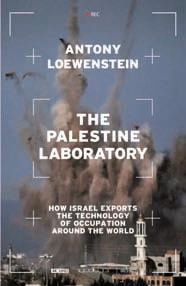
For more than 50 years, the occupation of the West Bank and Gaza Strip has given the Israeli state invaluable experience in controlling an “enemy” Palestinian population, allowing them to perfect the architecture of control. Best-selling journalist Antony Loewenstein uncovers this largely hidden world in a global investigation that includes secret documents, revealing interviews and on-the-ground reporting. This book shows in-depth, for the first time, how Palestine has become the perfect laboratory for the Israeli militarytechno complex: surveillance, home demolitions, indefinite incarceration and brutality. From the Pegasus software that hacked Jeff Bezos’ and Jamal Khashoggi’s phones, to the weapons the Myanmar army used to murder thousands of Rohingyas, to the drones used by the European Union to monitor refugees in the Mediterranean who are left to drown, readers can clearly see the global ramifications of Israeli technology.
In a world riddled with inequality and oppression, where the marginalized cry out for justice, liberation theology offers a prophetic voice by challenging traditional notions of faith and urging us to critically engage with ideas that fuel the struggle for liberation.
In Justice on the Cross, Kathleen Christison provides the reader with a helpful survey and analysis of liberation theologies that emerged in Latin America, South Africa and among African Americans in the United States, and elsewhere in the world, before delving into the details of Palestinian liberation theology. She addresses the impact of liberation theologians, intellectuals and activists for justice, such as Jürgen Moltmann, Gustavo Gutiérrez, James H. Cone, Angela Davis, Desmond Tutu, Martin Luther King, Jr. and others on the development of Palestinian liberation theology.
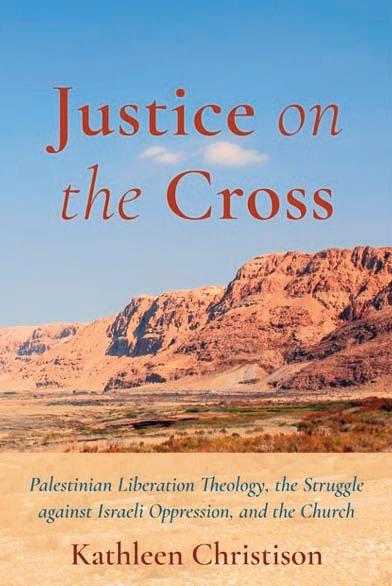
Rev. Dr. Alex Awad is a retired United Methodist Missionary. He and his wife, Brenda, served in Jerusalem and in Bethlehem for more than 25 years. Rev. Awad served as pastor of East Jerusalem Baptist Church, dean of students at Bethlehem Bible College and director of the Shepherd Society. Rev. Awad has written two books, Through the Eyes of the Victims and Palestinian Memories. He is a member of the Palestinian Christian Alliance for Peace.
Muzoon: A Syrian Refugee Speaks Out by Muzoon Almellehan, Knopf, 2023, hardcover, 288 pp. MEB $17.99

This eye-opening memoir tells the story of a young girl’s life in Syria, her family’s wrenching decision to leave their home and the upheaval of life in a refugee camp. Though Muzoon’s life had utterly changed, one thing remained the same: she knew that education was the key to a better future both for herself and her country. Thus, she went from tent to tent in the camp, trying to convince other kids, especially girls, to come to school. And her passion and dedication soon had people calling her the “Malala of Syria.” Muzoon has grown into an internationally recognized advocate for refugees, for education and for the rights of girls and women, and is now a UNICEF goodwill ambassador, the first refugee to play that role. Muzoon’s story is absolutely riveting and will inspire young readers to use their own voices and stand up for what they believe in.
The Return of the Taliban: Afghanistan After the Americans Left by Hassan Abbas, Yale University Press, 2023, hardcover, 320 pp. MEB $26
Since the fall of Kabul in 2021, the Taliban have had effective control over Afghanistan, a scenario few Western commentators anticipated. But after a 20-year-long bitter war against the post-invasion Republic of Afghanistan, reestablishing control is a complex procedure. What is the Taliban’s strategy now that they’ve returned to power? In this groundbreaking new account, Hassan Abbas examines the resurgent Taliban, as ruptures between moderates and the hardliners in power continue to widen. The group is now facing debilitating threats—from humanitarian crises to the Islamic State in Khorasan— but also engaging on the world stage, particularly with China and Central Asian states. Making considerable use of sources and contacts in the region, and offering profiles of major Taliban leaders, Return of the Taliban is the essential account of the movement as it develops and consolidates its grasp on Afghanistan.
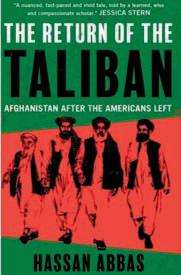
Christison also presents evidence that all liberation theologies originate where there are grave injustices against the poor and the marginalized. She further observes that these theologies do not evolve from the elite downwards, but rather initiate among the poor classes and challenge the authority of the ruling classes, church hierarchy and big business. This results in liberation theologians often being misrepresented, misunderstood, falsely mischaracterized and sometimes outright persecuted by the state and church leaders.
Christison makes clear that the overarching purpose of liberation theologians is to draw answers from the wealth of their spiritual traditions, including their sacred scriptures, and use them to address the question of injustice. These answers often bring hope, comfort and courage to the oppressed, but discomfort, denial and retaliation from the oppressors. Hence, liberation theology’s task is to serve the cause of justice and to stand in solidarity with the poor, while simultaneously proclaiming a prophetic message to the oppressors and demanding an end to the culture of injustice.
While in many ways an emulation of other liberation theologies, Christison observes that Palestinian liberation theology is unique in that it was born in the very land where Jesus, who preached the good news of God’s justice to the poor, was born. She describes Rev. Dr. Naim Ateek as “the principal formulator of Palestinian liberation theology” and explains that he and other Palestinian Christian theologians, including Rev. Dr. Mitri Raheb, had one eye on the suffering of their people and the other eye on the cross. They saw a striking parallel between the cross of Jesus and the suffering of Palestinians.
No discussion of Palestinian liberation theology would be complete without telling the story of Palestinian suffering during the past 100 years. Christison highlights the ethnic cleansing of Palestine during the 1948 Nakba and describes the ongoing nightmare of the Palestinian people over the ensuing decades.
Justice on the Cross also gives space for the story of the oppressors of Palestine. Christison discusses the European antiSemitism that led to the Holocaust, which
gave power to the Zionist movement and pushed forward its goal to create a Jewish state in Palestine. She also writes about the development of Christian Zionism and its alliance and collaboration with secular Zionism to replace the Arab population with European Jews. The author then shows how the church in the West, burdened heavily with the guilt of the Holocaust, developed a theology aimed at supporting the Jewish people by developing and sustaining Israel, while totally ignoring the rights of Palestinians.
The last few chapters of Justice on the Cross demonstrate that despite all the efforts of liberation theologians and others who advocated for Palestine, little or no difference has been achieved in the day-today life of the average Palestinian. This is due to the imbalance of power between Israelis and Palestinians and the huge financial, military and political support the U.S. lavishes on Israel.
However, the author ends the book on a hopeful note. This hope, Christison explains, is encapsulated in the fact that “Palestinians refuse to disappear.” Moreover, Palestinians continue to resist. “Resistance is built on hope, and hope generates continuing hope in turn,” she writes. This hope is also built on understanding the character of God. Quoting Ateek, Christison writes, “The one God in whom we believe is the God of justice, peace, love, mercy and compassion.”
Regardless of what happens to the Palestinian people in the future, Justice on the Cross will continue to be a monumental record and an essential source of information on the many activists and theologians who have stood side by side with Palestinians, with justice and with the Crucified.

By Reem Kassis, illustrated by Noha Eilouti, Crocodile Books, 2023, hardcover, 112 pp. MEB $19.95
Reviewed by Ida Audeh
Anyone who is raising Palestinian children in the diaspora owes Reem Kassis a huge
Ida Audeh is a contributing editor of the Washington Report
debt of gratitude. The acclaimed cookbook author decided to write a children’s book, she tells us in the introduction to We Are Palestinian, because she wanted to show her young daughters and all young readers “how beautiful their culture is and that they can take part in it and be proud of it no matter where they are in the world.”
Kassis accomplishes this—and more. This wonderful book is really a love letter to Palestine itself, describing what it is that makes Palestinians an identifiable Arab nation and imparts to children the reasons they can take pride in their culture. That foundational understanding will stand them in good stead as they grow up in what can often feel like a hostile environment.
The text is arranged into seven chapters, each describing a different component of Palestine: geography, cultural symbols, specific people who make a difference, agriculture, cuisine, song and dance, and history and religion. Written for young readers ages nine years and older, every chapter includes a “Did You Know?” and “Fun Fact” blurb that is designed to inform, engage and inspire. Adults can learn a thing or two from them, too. The text is beautifully illustrated by Noha Eilouti, a Canadian-Palestinian visual artist whose drawings complement the text and make every single page a visual treat.
Appropriately, the book begins with geography: the cities, towns and villages in which Palestinians have lived their lives over the centuries. People are rooted in specific places, and few people have had their connection to a specific geography come under sustained and relentless attack as have
Palestinians. Kassis selects 11 cities and presents distinctive features of each.
I was glad to see that Kassis devoted a chapter to agriculture, a tribute to Palestinian agrarian heritage. The text encourages young readers to give some thought to the richness of that tradition, which evolved over centuries of intentionally tending the land.
Children need role models, and Kassis chose internationally known writers and poets such as Edward Said and Mahmoud Darwish, but also singers, artists, oud players and novelists whose names are less familiar but who have contributed substantially to Arab culture, such as novelist Sahar Khalifeh and Arab Idol singer Mohammed Assaf.
Shireen Abu Akleh, a long-time Al Jazeera journalist, made international headlines when she was killed by the Israeli military in May 2022, but here Kassis’ focus is on what made Abu Akleh a role model for young girls and beloved throughout the Arab world: her determination to tell the stories of ordinary people, a purpose that overrode every other consideration. Palestine produced Abu Akleh as it did the people, places and cultural expressions celebrated in this book, and Palestinian parents now have a book to give their children that will help them appreciate their rich heritage.
Put the Washington Report on Middle East Affairs to work for you!
Have you thought about advertising your company, charity, book, craft, skills or personal service with us—but have never gotten around to it? For information on prices and deadlines, please visit https://www.wrmea.org/u9r3 or e-mail advertising@wrmea.org or call (202) 939-6050 ext. 1105. We will help make your advertising effective. (We offer a 30 percent discount on combinations of print and online banner advertising!)
Ramesses the Great: Egypt’s King of Kings by Toby Wilkinson, Yale University Press, 2023, hardcover, 240 pp. MEB $26
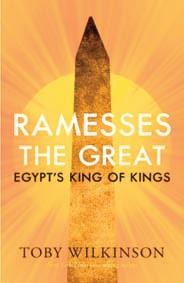
Ramesses II ruled the Nile Valley and the wider Egyptian empire from 1279-1213 BCE, one of the longest reigns in pharaonic history. He was a cultural innovator, a relentless self-promoter and an astute diplomat; the peace treaty signed after the Battle of Kadesh was the first in recorded history. He outbuilt every other Egyptian pharaoh, leaving behind the temples of Abu Simbel, the great hypostyle hall of Karnak, the tomb for his wife Nefertari and his own memorial, the Ramesseum. His reputation eclipsed that of all other pharaohs as well: he was decried in the Bible as a despot, famed in literature as Ozymandias and lauded by early antiquarians as the Younger Memnon. His rule coincided with the peak of ancient Egypt’s power and prosperity, the New Kingdom (1539-1069 BCE). In this authoritative biography, Toby Wilkinson considers Ramesses’ preoccupations and preferences, uncovering the methods and motivations of a megalomaniac ruler, with lessons for our own time.
Is This How You Eat a Watermelon? by Zein El-Amine, Radix Media, 2022, paperback, 200 pp. MEB $19.95

This collection of short stories is sure to captivate readers. A dozen boarding school students find themselves stranded at the beginning of the Lebanese Civil War. A young man, a young woman and a mistreated monkey unite in a bid to survive. Even Israel’s war on Lebanon cannot stop an old woman from getting her fix of nicotine. A young Lebanese student on a visit to Bahrain is wrongly implicated as a terrorist and placed in a prison with other political prisoners where light and hope is absconding. Fresh snow compels a sacrilegious undertaking from a father much to the shock of his children. Shared trauma takes the shape of spectral phantoms. And in the titular story, a hedonistic man eats himself to an early death with the desecration of the city of Beirut forming the backdrop.
Salamati: Hamed’s Persian Kitchen: Recipes and Stories from Iran to the Other Side of the World by Hamed Allahyari and Dani Valent, Interlink, 2022, hardcover, 224 pp. MEB $35
Hamed Allahyari cooks to connect—for that joyful moment you can say “salamati” (Farsi for “health” and “cheers”) around the table. The food of his native Tehran is a resonant and delicious gift, and a way of staying bonded to a country he hasn’t returned to for a decade. Allahyari’s food is anchored in tradition but accessible to all. The recipes are simple, celebratory, appealing, flexible and full of flavor. As well as working as a chef and caterer, Allahyari has road-tested his dishes at hundreds of cooking classes. He melds Persian culinary culture and an understanding of Western palates to create recipes that are truly his, and now ours, to share. Beyond the recipes, Salamati is a gateway to Persia. “It’s sharing my culture,” he says. “It’s my dream that everyone tries Persian food. And with my food, they come into my family. They are sitting with me, with my grandparents, parents and cousins, talking, sharing and enjoying the feeling of being together.”

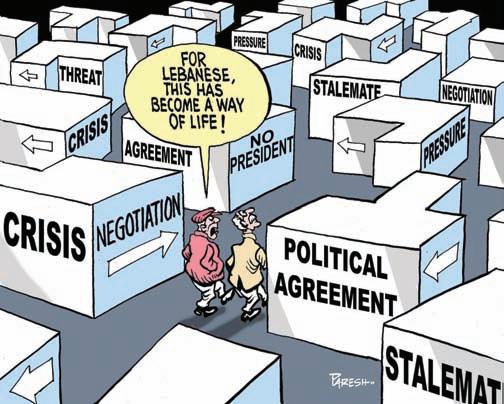
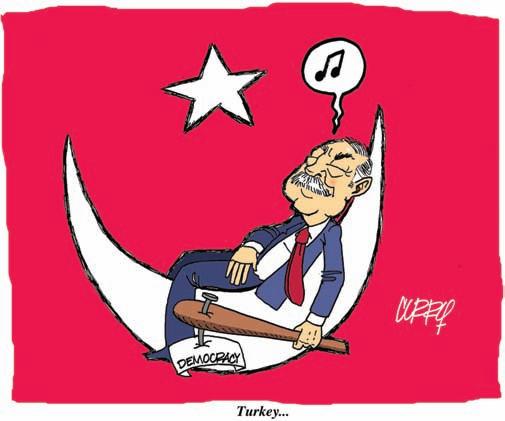

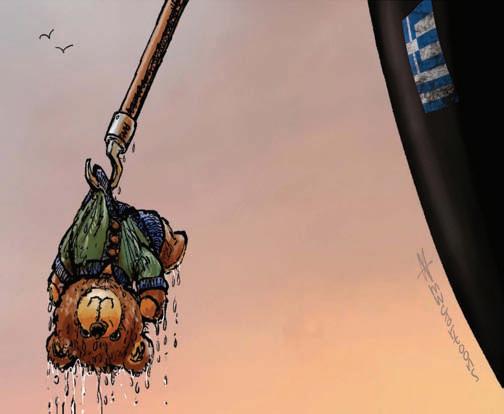

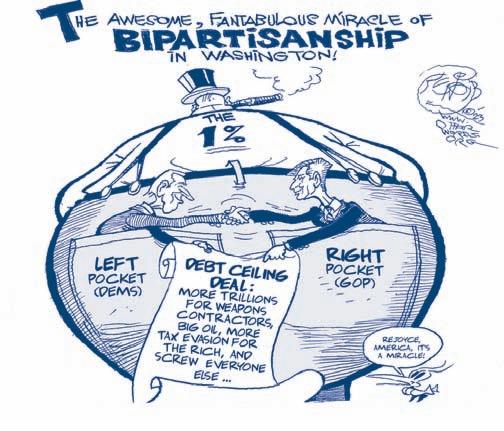
DANIEL GORDIS, an American-born academic who now lives in Jerusalem, has made a career of writing books glorifying Israel. Impossible Takes Longer: 75 Years After Its Creation, Has Israel Fulfilled Its Founders’ Dreams? is more of the same. It takes only a couple of pages to learn that Israel “is without question the most astoundingly successful example of a national liberation movement” in world history.
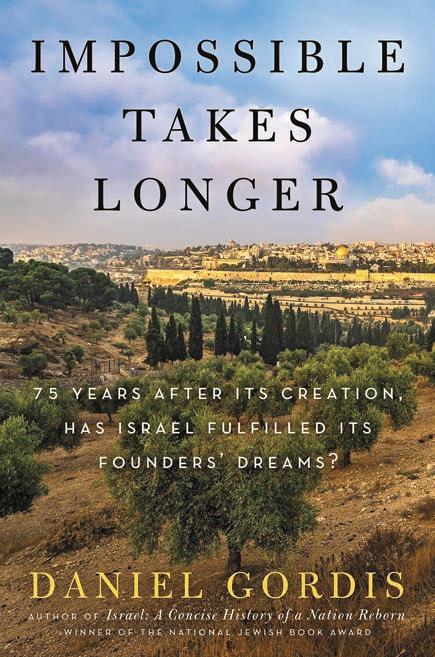
The theme of Israeli exceptionalism carries on throughout the book. Like Prime Minister Binyamin Netanyahu and other right-wing Israelis, Gordis argues unapologetically that Israel is an ethnic Jewish state legitimated by God and the Hebrew prophets. Any questioning of this narrative is dismissed as wrongheaded or an attempt to delegitimize Israel.
Gordis also deploys the history of the Nazi genocide to legitimize what is a settler-colonial project. Indeed, viewed purely from the perspective of the long and sordid history of anti-Semitism, culminating in the Nazi genocide, it is easy to celebrate the rise and endurance of the state of Israel. “Israel was meant, first and foremost,” Gordis writes, “to reset the existential condition of the Jewish people. Has it done that? It has.”
As for the Palestinians living under occupation, Gordis declares, “They deserve better lives than they have.” However, he conveniently dismisses their suffering as the fault of their own extremism, as exemplified by the two intifadas, terror attacks and the irrationality of their own leaders. To the extent that Israel bears some responsibility for “the conflict,” Gordis argues that no state is perfect, yet “Israel has been singled out for opprobrium that is directed at no other country.” Here again, the author
Contributing editor Walter L. Hixson is the author of Architects of Repression: How Israel and Its Lobby Put Racism, Violence and Injustice at the Center of US Middle East Policy and Israel’s Armor: The Israel Lobby and the First Generation of the Palestine Conflict (available from Middle East Books and More), along with several other books and journal articles. He was a professor of history for 36 years, achieving the rank of distinguished professor.
By Walter L. Hixsonreflexively uses hackneyed defenses of Israel.
Gordis, a distinguished fellow at Shalem College in Jerusalem, is a poor historian. He crosses the line from scholarship to faith by treating the Old Testament as a legitimate source of historical truth (including direct quotes from God), as opposed to a rich collection of religious and cultural artifacts. Gordis also sharply downplays Israeli responsibility for the Nakba. He blames Arabs for the June 1967 war, which the Israelis launched even as Arab leaders pleaded with the United States to hold them back. He also glosses over illegal Jewish settlements and extremism in the occupied territories.
The book is clearly written, well-illustrated and nicely produced by a major publisher, which is typical for books that praise Israel, as opposed to some that do not toe the pro-Israel line. The book is divided into four sections, each with three chapters, with a focus on a variety of topics including economic growth, tech accomplishments, tolerance for minorities and relations with the global Jewish diaspora.
While Gordis, whose previous books include a laudatory biography of former Prime Minister Menachem Begin (who was a leader of the Irgun, one of the militias that played a significant role in the 1948 ethnic cleansing), praises Israel’s right-wing leaders, he condemns liberal Jews, especially those in the United States. Many diaspora Jews fail to understand that Israel is first and foremost a Jewish state and “was never meant to be a liberal democracy,” he writes. Gordis even rebukes New York Times columnist Thomas Friedman—a longtime supporter and often apologist for Israeli actions—for criticizing Israel’s failure to honestly pursue a two-state solution.
Although he avers that the Israel-Palestine “conflict needs to end,” he argues, “how to bring that about is entirely unclear. For now, tragically, it may also be impossible.” Gordis thus personifies Netanyahu-era Israel and its exaltation of an ethnic Jewish state— an apartheid state—in which the ongoing brutal repression of Palestinians is shrugged off as an unfortunate fact of life. ■
To the Chico Enterprise-Record, June 13, 2023
You can’t have it both ways. We heard this from our elders when we wanted freedom without responsibility. As adults, we still often try to manage contradictory claims, by rationalizing or looking the other way.
This letter is about Israel (and) Palestine, and wanting to have it both ways. Israel wants a democracy but also a Jewish state that privileges Jewish people. Israel wants to claim the whole of Palestine but not to be seen as a colonizer. Israel wants to deny it is an apartheid state but is intensifying exactly the policies that human rights organizations now explicitly acknowledge as apartheid.
Our country wants to stand for freedom and equality but wants to also support Israel regardless of its polices. We give billions yearly in foreign aid to Israel, and that money funds oppressive policies there that we would never allow in our country. We veto every U.N. Security Council measure that calls Israel to account but are ready to criticize any other country’s violation of international law.
Israeli leaders now speak openly about denying non-Jews citizenship, absorbing the occupied West Bank and Gaza Strip into Israel and expelling Arabs. Can’t we wake up to this and stand up for what we say we believe in? The world sees that our claimed ideals don’t match our actions, yet we aspire to global leadership. We can’t have it both ways.
Jim Anderson, Chico, CATELL
PRESIDENT JOE BIDENVICE
1600
PRESIDENT KAMALA HARRIS PENNSYLVANIA AVE. NWWASHINGTON, DC 20500
COMMENT LINE: (202) 456-1111
WWW.WHITEHOUSE.GOV/CONTACT
ANY MEMBER: U.S. HOUSE OF REPRESENTATIVES
WASHINGTON, DC 20515
(202) 225-3121
To The Baltimore Sun, June 26, 2023
The recent letter to the editor, “Israel is not an apartheid state” (June 17), falsely claims that only pro-Palestinian groups accuse Israel of apartheid when, in fact, Human Rights Watch, Amnesty International and the leading Israeli peace group B’Tselem all have documented that Israel is a racist, apartheid nation. Israel’s own nation-state law clearly states that only Jews can be first-class citizens while nonJews—Muslims, Christians and Druze alike—are, at best, second-class citizens.
The letter also falsely mentions “disputed territories,” which are, in fact, illegally occupied Palestinian territories. To say that Israel seeks peace is laughable. What Israel wants is to continue stealing more Palestinian land until there is nothing left to negotiate. Finally, Israeli Prime Minister Binyamin Netanyahu has stated publicly that there will never be a separate Palestinian state while he is in office.
Ray Gordon, Bel Air, MD


To The Olympian, July 5, 2023
U.S. Rep. Marilyn Strickland’s (D-WA) response to my request that she co-sponsor H.R. 3103 says that the bill “would block U.S. funds from being used by the government of Israel to support the mistreatment of Palestinian children in military detention, seizure or destruction of Palestinian property, and efforts to advance Israel’s annexation of the West Bank.”
SECRETARY OF STATE ANTONY BLINKEN
U.S. DEPARTMENT OF STATE 2201 C ST. NW
WASHINGTON, DC 20520
PHONE: (202) 647-6575
VISIT WWW.STATE.GOV TO E-MAIL
ANY SENATOR: U.S. SENATE WASHINGTON, DC 20510
(202) 224-3121
This certainly sounds like a bill to support. It has the goal of making sure we’re not funding human rights abuses and war crimes. Unfortunately, our representative’s commitment to support the bill ends with the description of its purpose.
This year alone describes why the bill is necessary. In February, settlers backed by the Israeli army and the Israeli government committed what even Israelis called a “pogrom” against a town of hundreds of Palestinians. In May, the Palestinians in Ein Samia were forced to move from their homes, in violation of international law, by the Israeli government. Israel is currently expanding settlements and annexing Palestinian land. While we celebrated Father’s Day, Israeli settlers “rampaged” (according to the conservative Times of Israel) through Palestinian towns, and Israeli soldiers shot and killed more Palestinian children.
Rep. Strickland says that she’s “concerned about the tragic and ongoing loss of civilian life that has resulted from this conflict. Minimizing civilian casualties, especially those of the children of Israel, Gaza and the West Bank, must be an immediate priority.” I hope she uses more than words and takes the sensible step to co-sponsor H.R. 3103.
Bill Dole, Olympia, WA
To The News & Record, June 28, 2023
Secretary of State Antony Blinken has stated the conflict between Russia and Ukraine is about Ukraine’s land. So is the Israeli-Palestinian conflict. The state of Israel wants the land, but without the
Palestinian people. Palestinians want to live normal lives and move freely without seeking permission from their occupier.

Palestinians wish to control their own resources, but Israel has claimed the fertile areas, confiscated quarries and controls the aquifer beneath Palestinian land. That water is then sold back to Palestinians at a high price, and it typically flows only one or two times a week into rooftop tanks.
Rep. Don Bacon (R-NE) says that Ukraine needs to stand up to Russia, yet our government never suggests that the Palestinians should stand up to Israel! Bacon has called Putin a bully, saying he thinks “might makes right.” And “might makes right” is exactly the way Israel is now acting.
For centuries Palestinians and Jews lived side by side peacefully. Now settlers attack, the army stands by watching and we label the attacked as militants. Children are dragged out of their beds, beaten, tortured and jailed without charges. Courts refuse to recognize valid ownership of land, hoping to force Palestinians off their land. There are separate roads for settlers—and a separate set of laws for them and Palestinians. If it looks like apartheid, maybe it is.
It is time this country opened its eyes to the reality of the situation, stopped blindly rendering military aid to Israel and held it to international law.
Jane Deichler Carter, Greensboro, NCTo The Holland Sentinel, June 29, 2023
Henry Idema identifies several areas of human engagement that are apparently most responsible for intercommunal conflict. This includes religion which, he claims, is responsible for conflict because of competing truth claims.
On the surface, this appears to make sense. But only on the surface, as upon further examination most, if not all, conflicts that appear to be driven by religious fervor are, in fact, initiated and driven by deeper tribalistic urges that use religion as a cover. The conflict in Israel/Palestine, for instance, has far more to do with competing claims to land than religion. The conflict in Northern Ireland was the same, as is the endemic conflict in Nigeria between Christian and Muslim tribal groups.
Muslims and Christians in many parts of the world live in relative harmony (as our family experienced during the 13 years we lived and worked in the Muslimmajority world) despite competing claims about salvation. In fact, the core teaching of each religion, when taken to heart, leads not to hatred, but to mutual respect and love.
Religion is not the culprit here. It’s merely the cover that is sometimes used to live out our darker urges.
John Hubers, Holland, MI ■
Continued from page 43
rently houses more than 600 dogs that had been neglected and abandoned. She also succeeded in getting a law passed in 2017 to protect animals from abuse and mistreatment in Lebanon.
The Lebanese economy has collapsed, and people are barely able to get by, let alone take care of their animals. Dogs are being dumped daily, and Dana struggles to maintain her shelter, which she does with the help of volunteers, vets and donations. Each day she is
unsure if she will have enough food to feed all the dogs. At times she feeds the dogs scraps of bread because that’s all she has.
Dana fights for these abandoned dogs every day but she can’t do this without more financial support. Plus her main long-term goal is to spay or neuter stray dogs all over the country.
Since learning about Dr. Dana’s shelter, I have been contacting companies and organizations in the United States to see if they could help, only to be turned down.
Life in Lebanon is full of challenges, to put it mildly. For Dana’s shelter, the challenges include the miniscule amount of money she is able to withdraw from banks daily and not even being able to open a bank account of her own for transfer of funds. With few available options, I set up a GoFundMe account with my personal account and will deliver funds to the shelter when I go to Lebanon this summer (https://gofund.me/b0b426dc). If you can donate to give these dogs a chance (no amount is too small), please do so.
For more information please visit Dana’s Facebook page for the shelter <https:// www.facebook.com/angelswithpawslb>. ■
(Advertisement)
The following are individuals, organizations, companies and foundations whose help between Jan. 1, 2023 and July 1, 2023 is making possible activities of the tax‐exempt AET Library Endowment (federal ID #52‐1460362) and the American Educational Trust, publisher of the Washington Report on Middle East Affairs. Some Angels will help us co‐sponsor the next IsraelLobbyCon. Others are donating to our “Capital Building Fund,” which will help us expand the Middle East Books and More bookstore. We are deeply honored by your confidence and profoundly grateful for your generosity.
($100 or more)
Fahed Abu-Akel, Atlanta, GA
Miriam Adams, Albuquerque, NM
James Ahlstrom, Stirling, NJ
Rashda Albibi, Panama City Beach, FL
James Bennett, Fayetteville, AR
Essa & Najwah Bishara, Greensboro, NC
Kathleen Brewster, Arlington, VA
John Cornwall, Palm Springs, CA
Raymond Doherty, Houston, TX
Nile El Wardani, San Diego, CA
Nancy Fleischer, Sacramento, CA
Donald Frisco, Wilmington, DE
Marina Gutierrez, Kensington, CA
Dixiane Hallaj, Purcellville, VA
Delinda Hanley, Kensington, MD**, ****
Janis Jibrin, Washington, DC
Akram & Lubna Karam, Charlotte, NC
Mazen Khalidi, Grosse Pointe Farms, MI
Akbar Khan, Princeton, NJ
Eugene Khorey, Homestead, PA
Nabil Khoury, Bloomfield Hills, MI
Edward Kuncar, Coral Gables, FL
Edward Lesoon, Pittsburgh, PA
Marilyn Levin, Ashland, OR
Dr. Moosa Lunat, Stockton, CA*
Erna Lund, Seattle, WA
Mrs. Allen MacDonald, Saratoga Springs, NY
Lucinda Mahmoud, Oceanside, CA
Martha Martin, Kahului, HI
Gwendolyn McEwen, Bellingham, WA
Bill McGrath, Northfield, MN
Sara Najjar-Wilson, Reston, VA
Mounzer Nasr, McLean, VA
Hasan Newash, Detroit, MI
Mary Neznek, Washington, DC
W. Eugene Notz, Charleston, SC
Barry Preisler, Albany, CA
Anis Racy, Canterbury, CT
John Robinson, Somerville, MA
Amb. William Rugh, Hingham, MA
Rafi Salem, Alamo, CA
Ramzy& Janet Salem, Monterey Park, CA
Irmgard Scherer, Fairfax, VA
Yusuf Tamimi, Hilo, HI
Janice Terry & Donald Burke, Marietta, OH
V. Vitolins, Grosse Pointe Farms, MI
Mohammed Ziaullah, Montclair, CA
($250 or more)
George Aldridge, Bissen, Luxembourg
Larry Cooper, Plymouth, MI##
Edwin Lindgren, Overland Park, KS
Darrel Meyers, Burbank,CA
Hertha Poje, New York, NY
John & Peggy Prugh, Tucson, AZ
William Stanley, Saluda, NC
Raymond Totah, Fallbrook, CA
William Walls, Arlington, VA
John Whitbeck, Paris, France
Lawrence Wilkerson, Falls Church, VA
Dr. James Zogby, Washington, DC
($500 or more)
Michael Ameri, Calabasas, CA
Andrew Findlay, Alexandria, VA
Raymond Gordon, Venice, FL
Wasif Hafeez, W. Bloomfield, MI
Erin Hankir, Nepean, Ontario, Canada
Brigitte Jaensch, Sacramento, CA
Gloria Keller, Santa Rosa, CA
Nidal Mahayni, Richmond, VA
John McLees, Chicago, IL
BARITONES & MEZZO SOPRANOS ($1,000 or more)
Asha A. Anand, Bethesda, MD
Lois Aroian, East Jordan, MI
Nabila El Taji, Amman, Jordan
Ronald & Mary Forthofer, Boulder, CO
Judith Howard, Norwood, MA
Ghazy Kader, Shoreline, WA
Jack Love, Kailua Kona, HI
Mary Norton, Austin, TX
Khaled Saffuri, Vienna, VA
Bernice Shaheen, Palm Desert, CA ***
Gretel Smith, Garrett, IN
Imad & Joann Tabry, Fort Lauderdale, FL
Branscomb Family Foundation, La Jolla, CA
($5,000 or more)
Fatimunnisa Begum, Jersey City, NJ
Ida Harlene & George Buchanan Trust, Rockville, MD
Clyde Farris, West Linn, OR**, # Goelet Foundation, New York, NY****
William Lightfoot, Vienna, VA
Benjamin Wade, Saratoga, CA
* In Memory of Farhana (Lunat) Rana
**In Memory of Dick & Donna Curtiss
***In Memory of Dr. Jack G. Shaheen
****In Memory of John Goelet
#In Memory of Andy Killgore
##In Memory of Diane Rose Cooper

By remembering the WashingtonReport in your will, you can:
• Make a significant gift without affecting your current cash flow;
• Direct your bequest to a vital purpose—educating readers about U.S. foreign policy in the Middle East;
• Receive a charitable estate tax deduction & Leave a legacy for future generations.















American Educational Trust
Washington Report on Middle East Affairs
P.O. Box 53062
Washington, DC 20009
August/September 2023
Vol. XLII, No. 5
 People sit along the Saraya Lake outside Tripoli’s Red Castle on June 18, 2023. Libya endured dark days during Italy’s ruthless colonial occupation, but the two countries signed a treaty in 2008 which could be a model for other nations recovering from colonial era crimes (see p. 44).
PHOTO BY MAHMUD TURKIA/AFP VIA GETTY IMAGES)
People sit along the Saraya Lake outside Tripoli’s Red Castle on June 18, 2023. Libya endured dark days during Italy’s ruthless colonial occupation, but the two countries signed a treaty in 2008 which could be a model for other nations recovering from colonial era crimes (see p. 44).
PHOTO BY MAHMUD TURKIA/AFP VIA GETTY IMAGES)